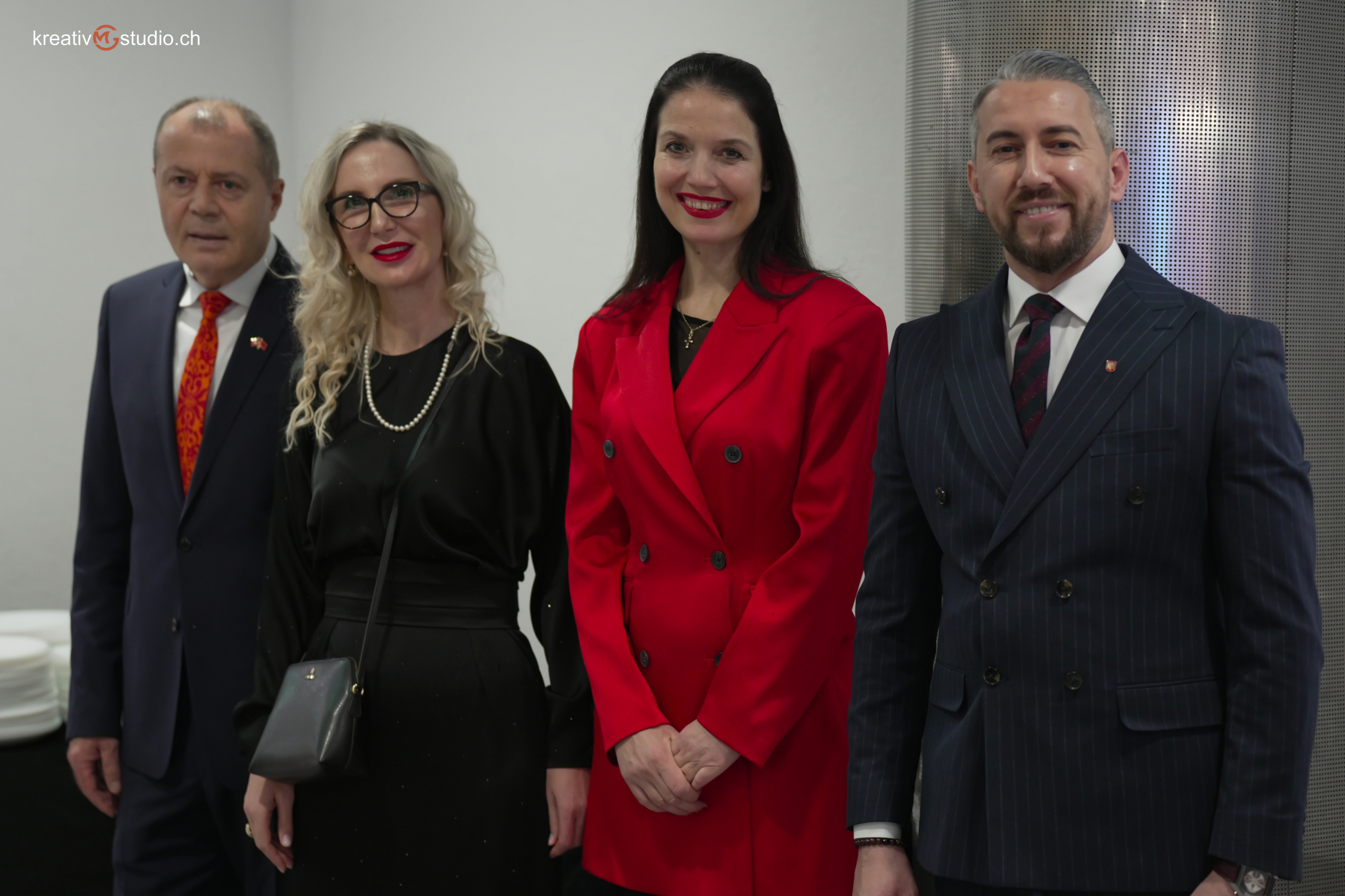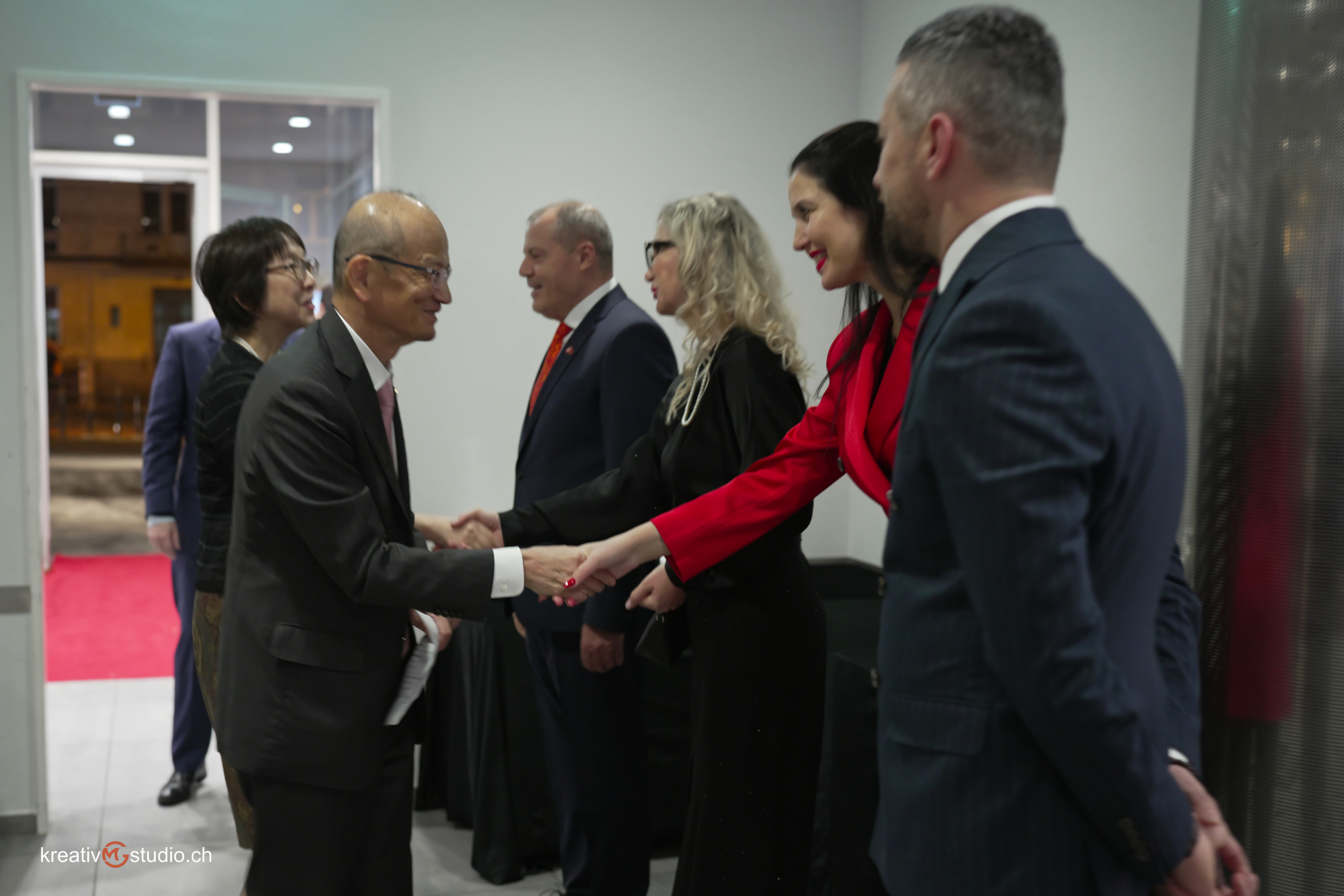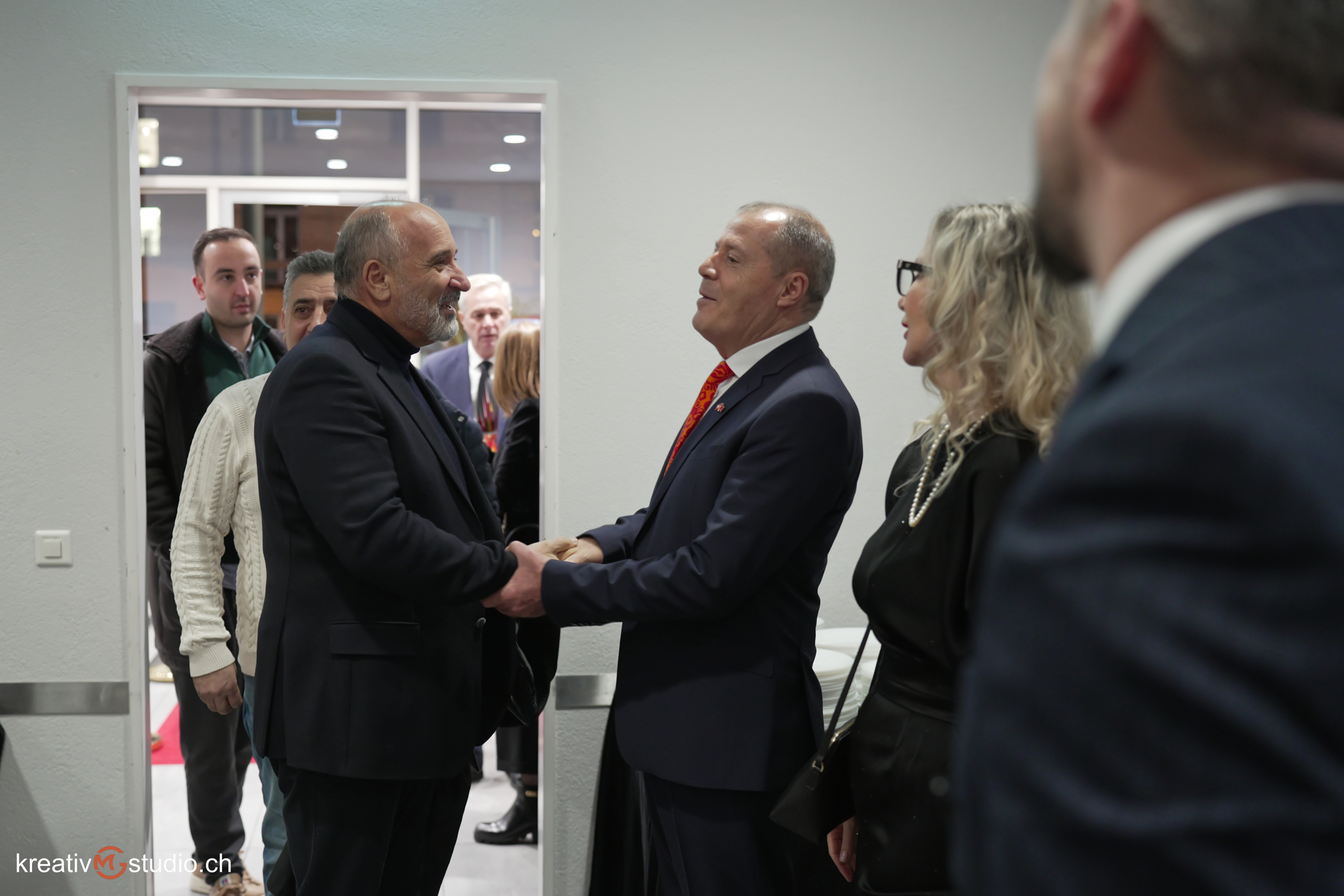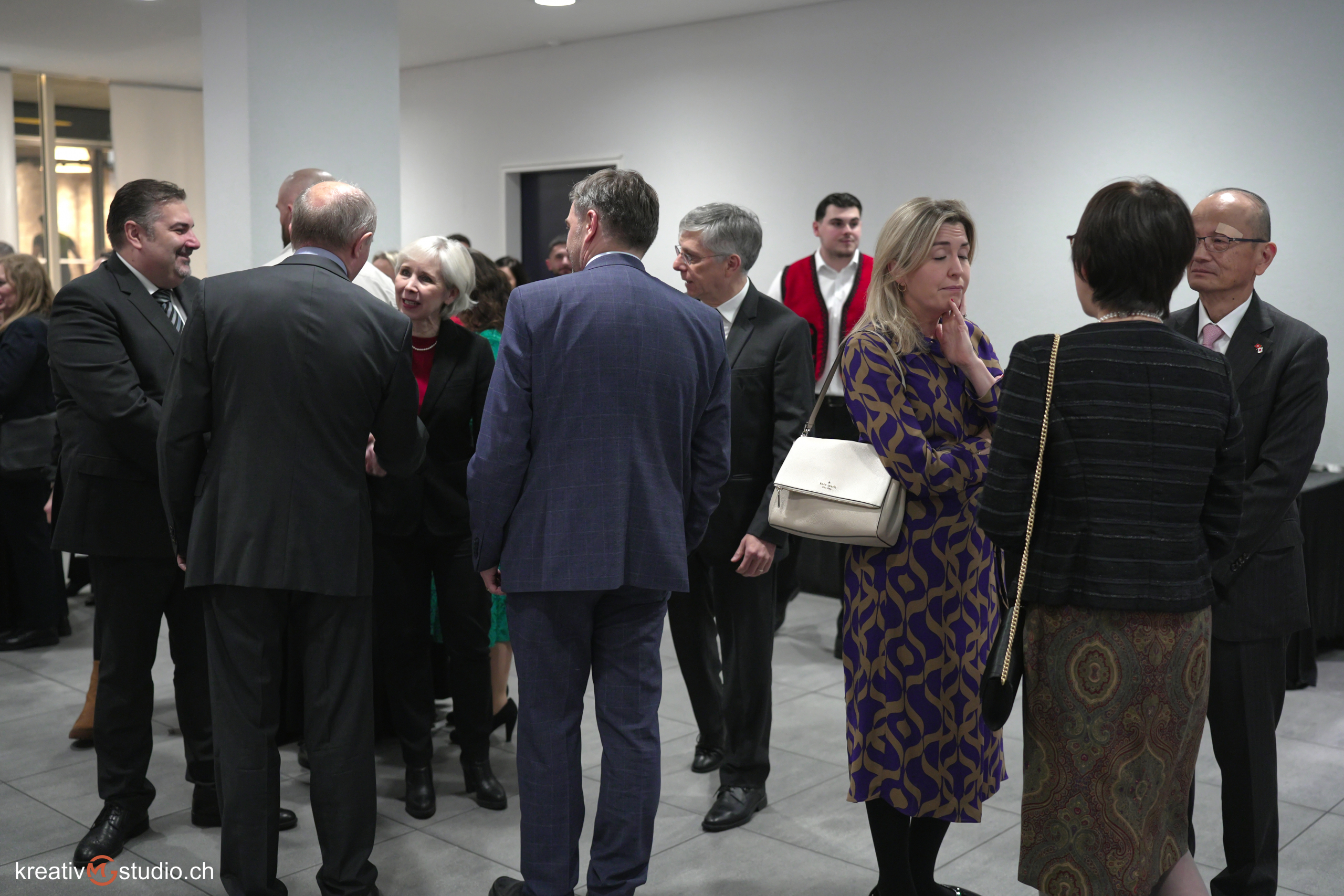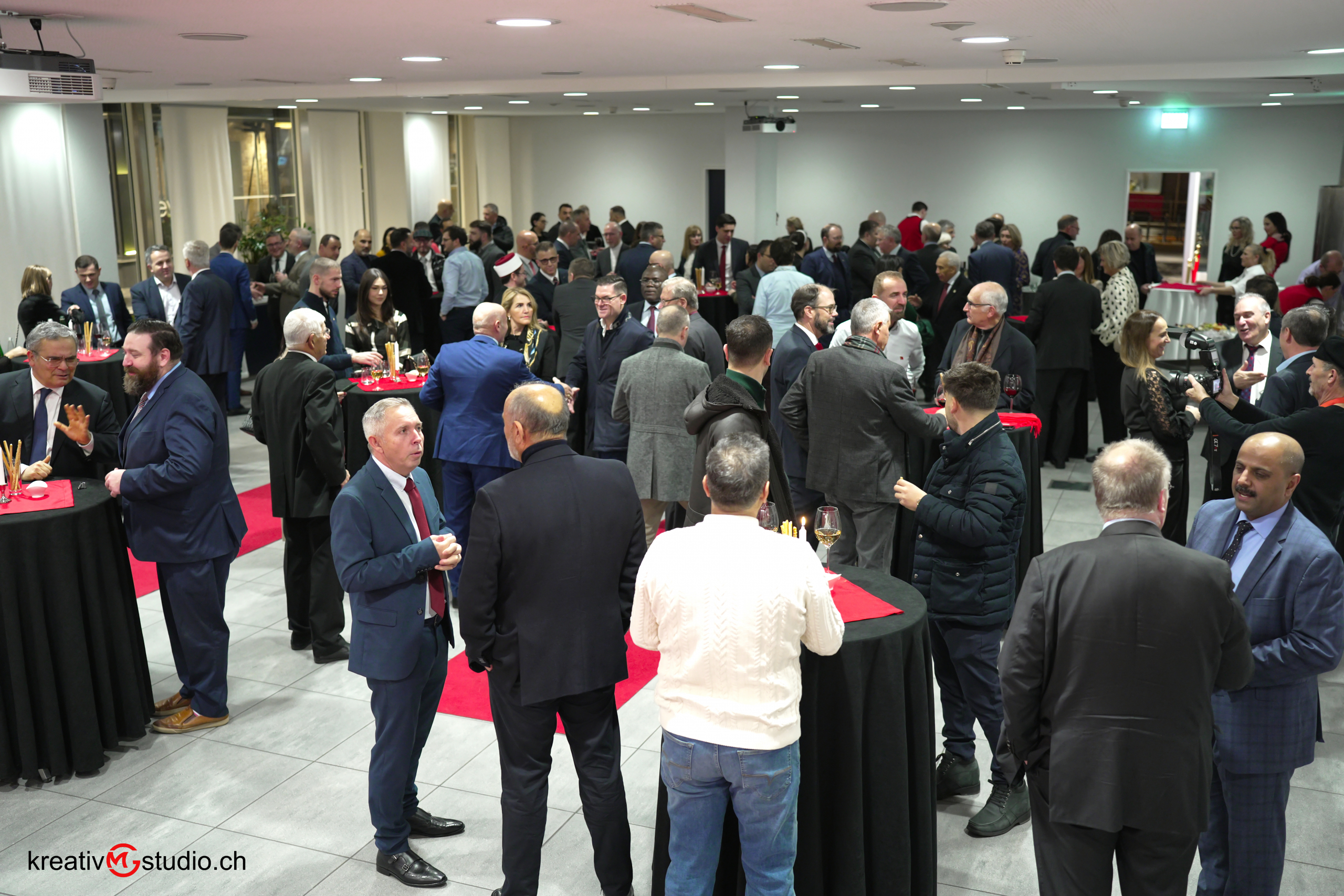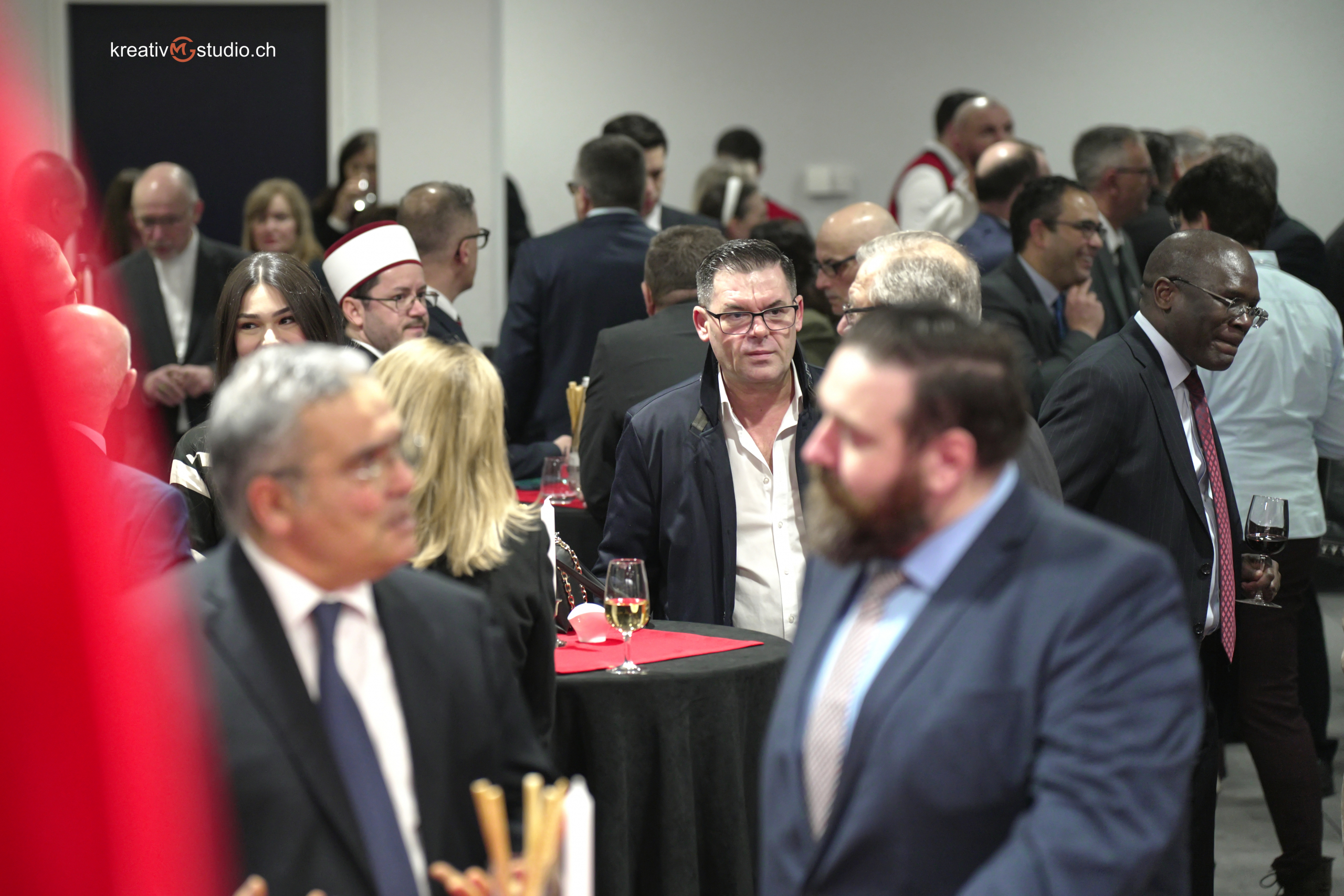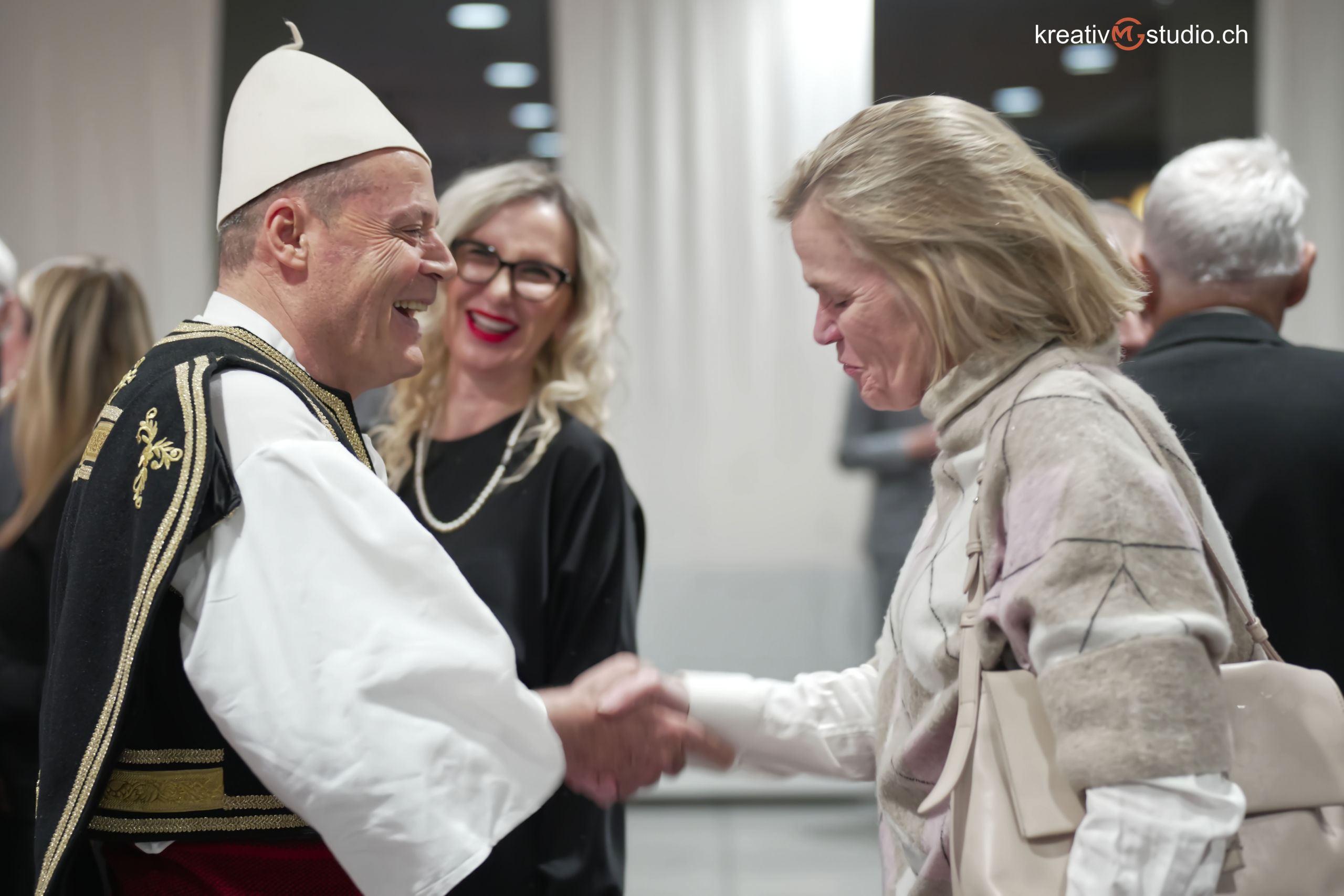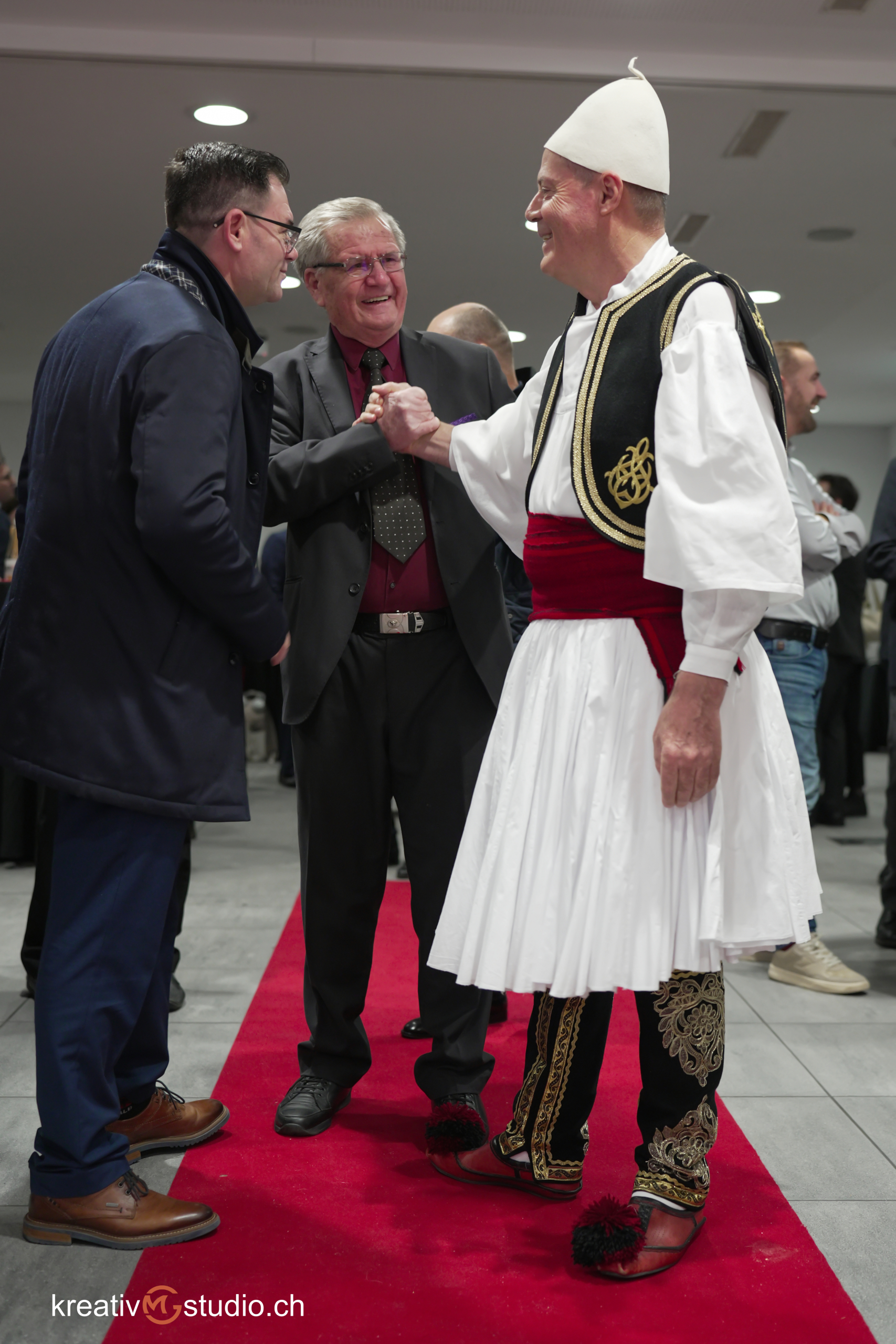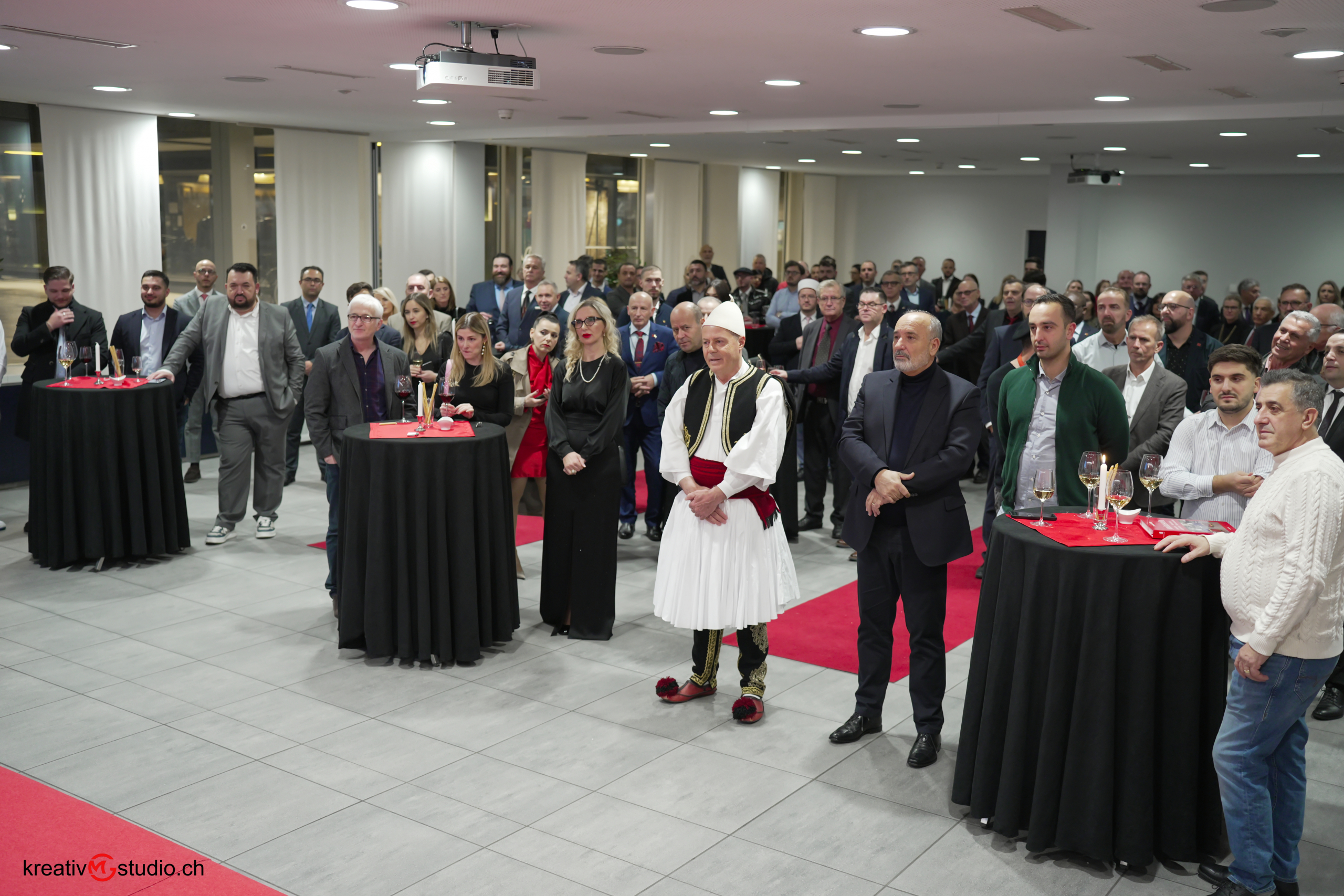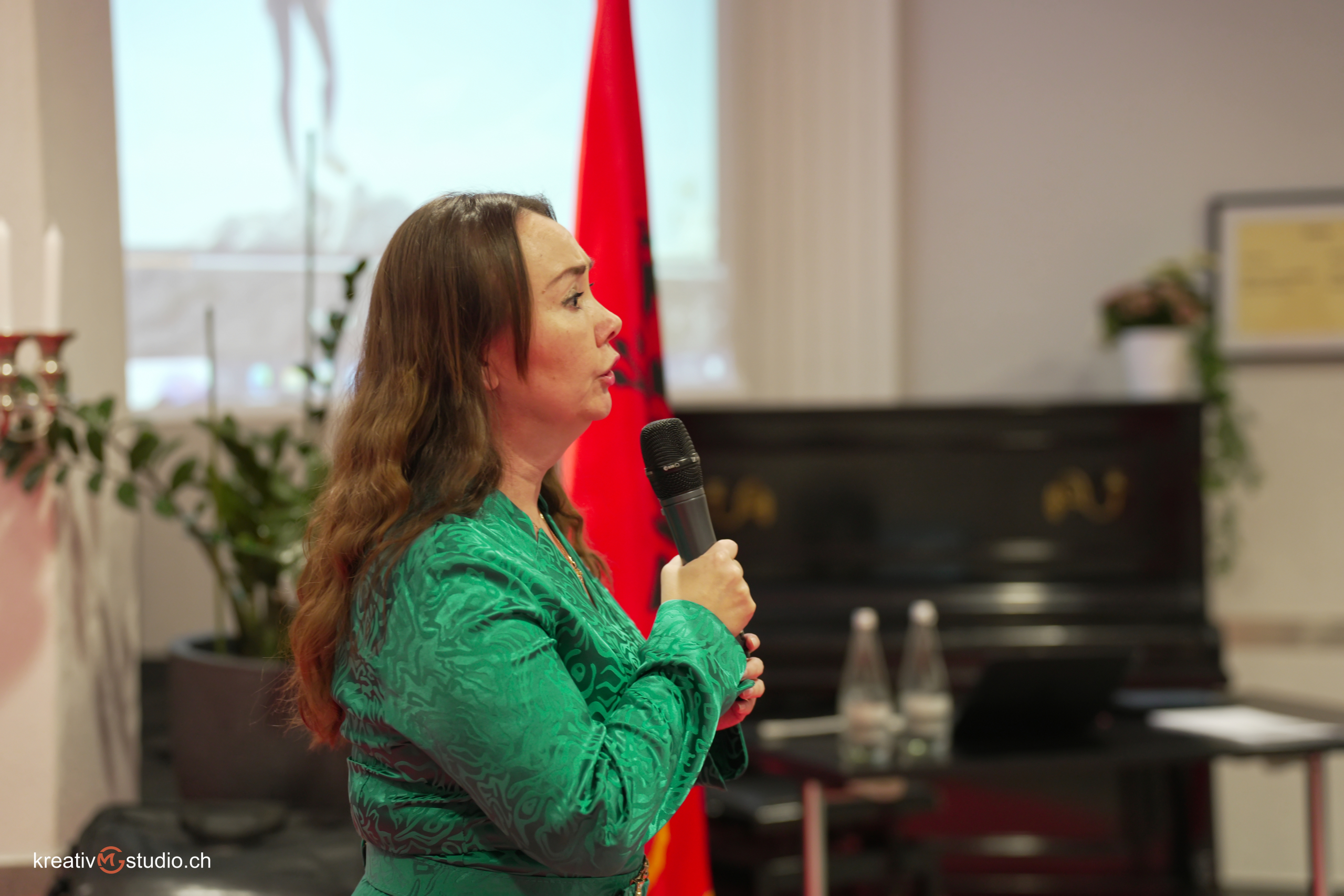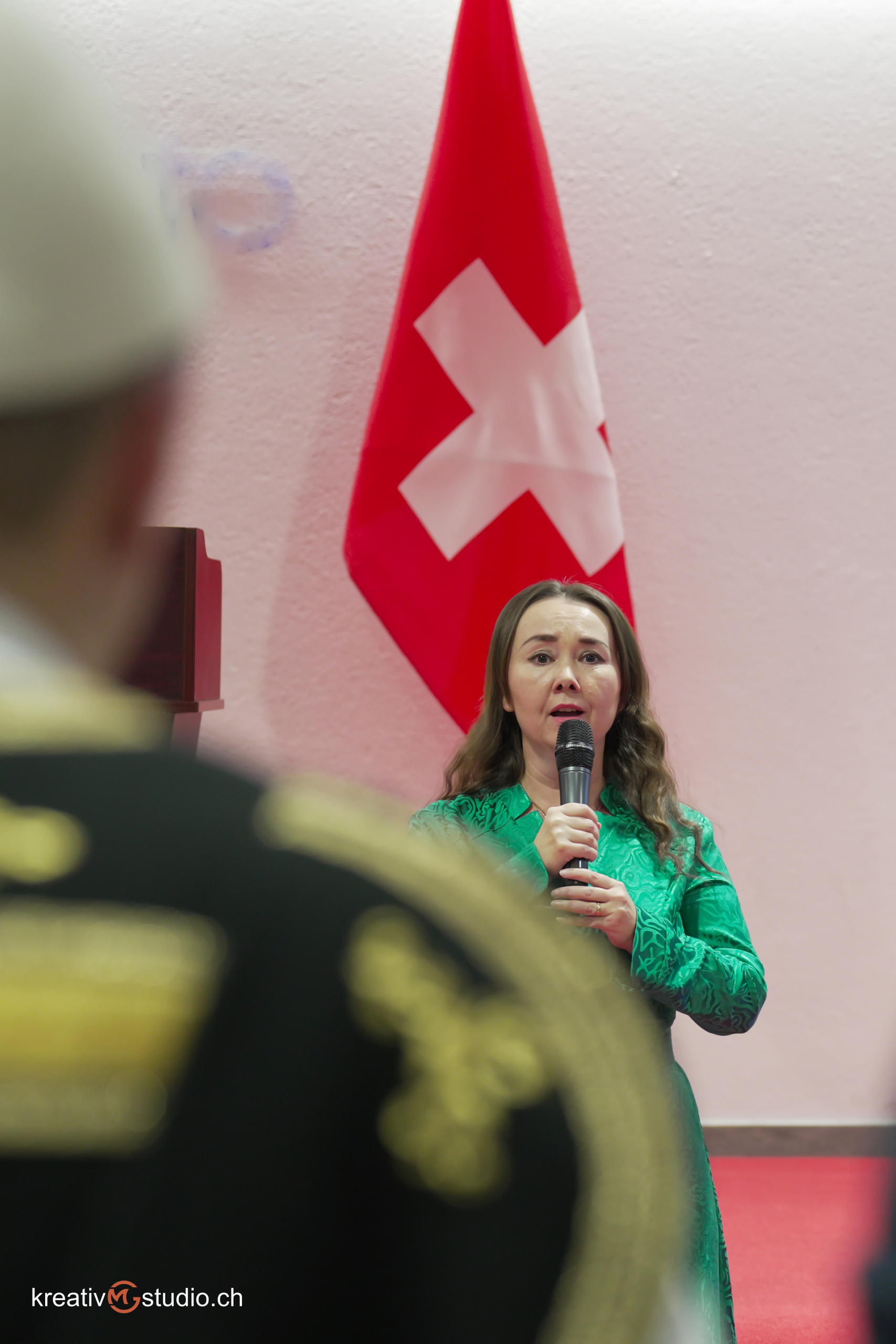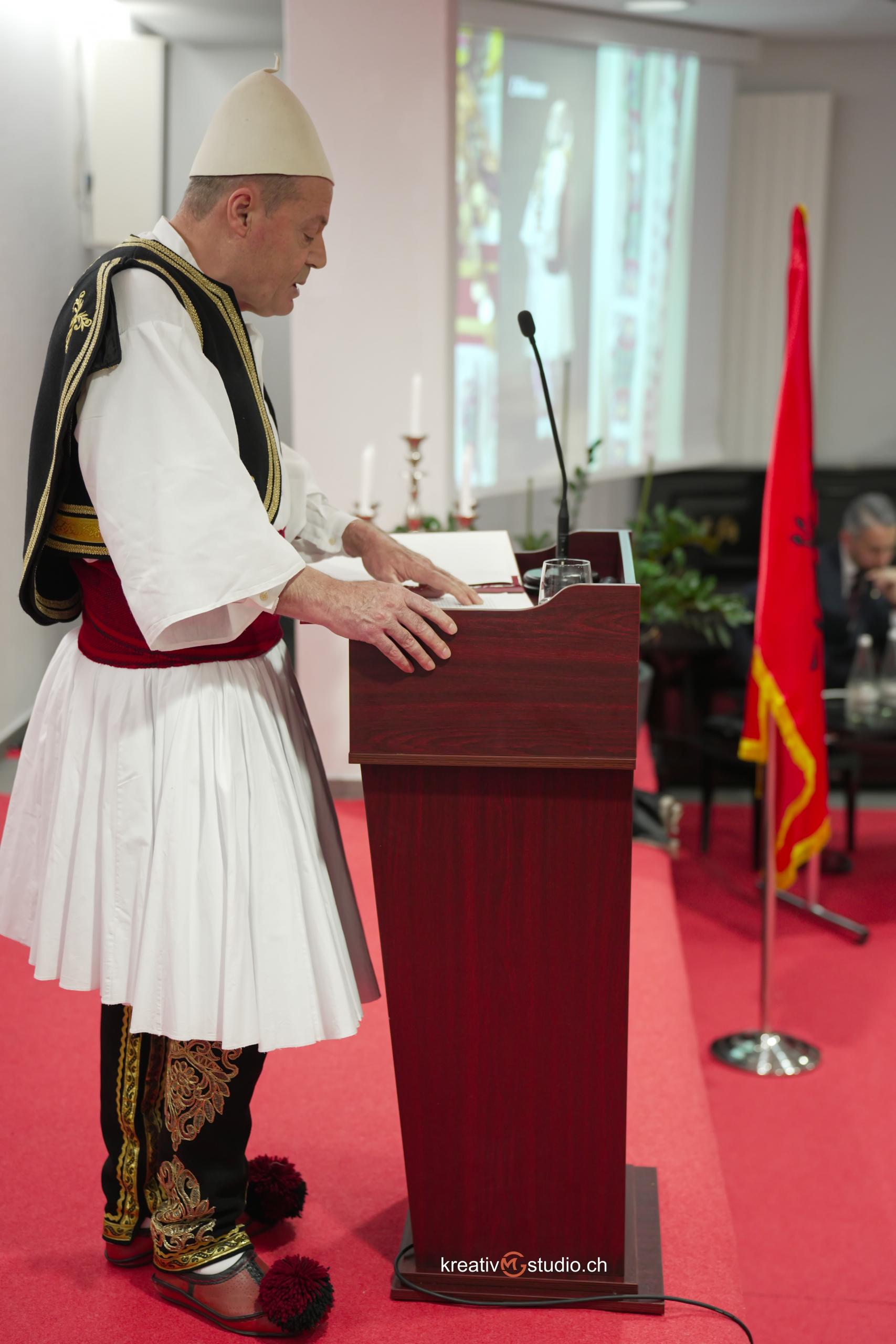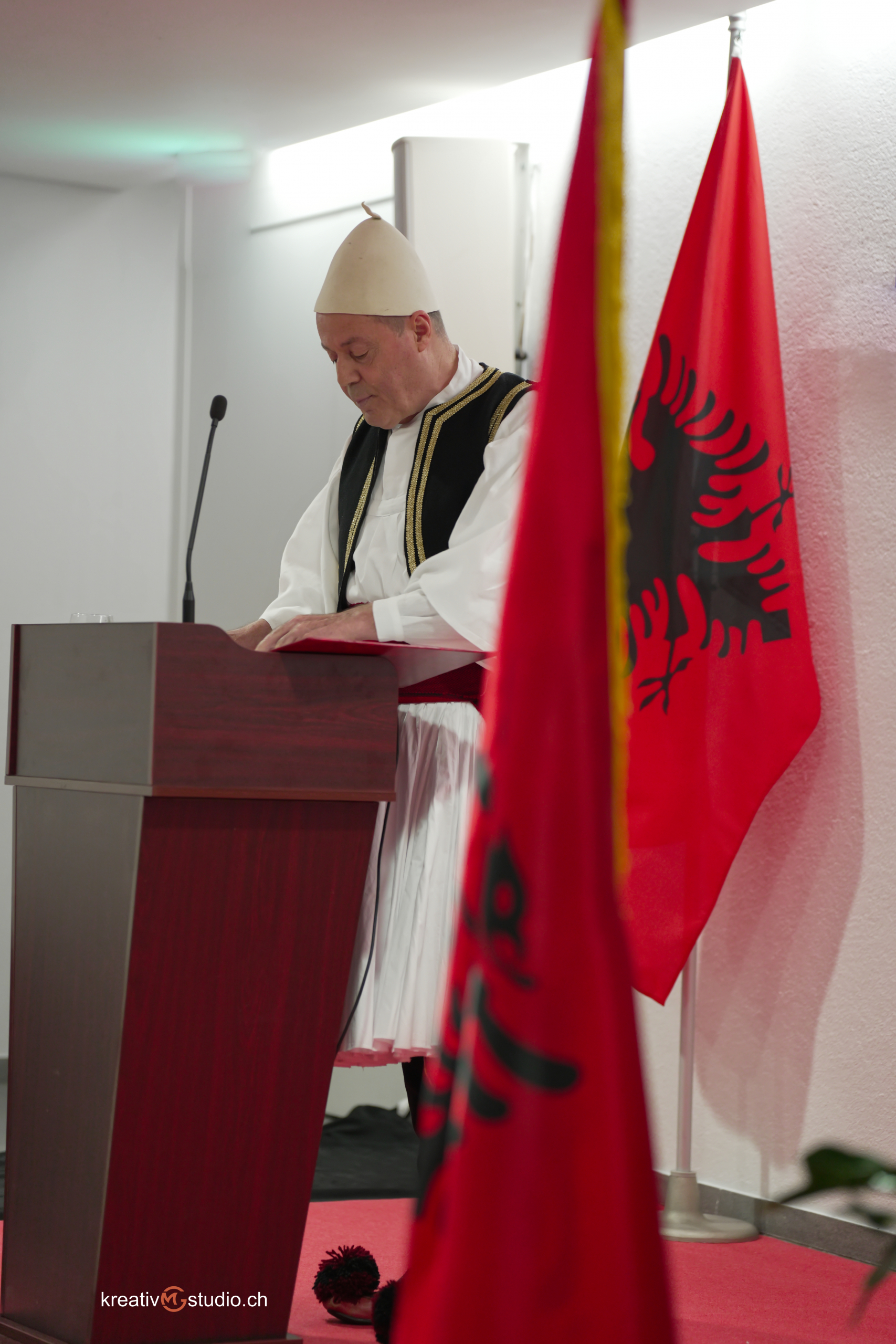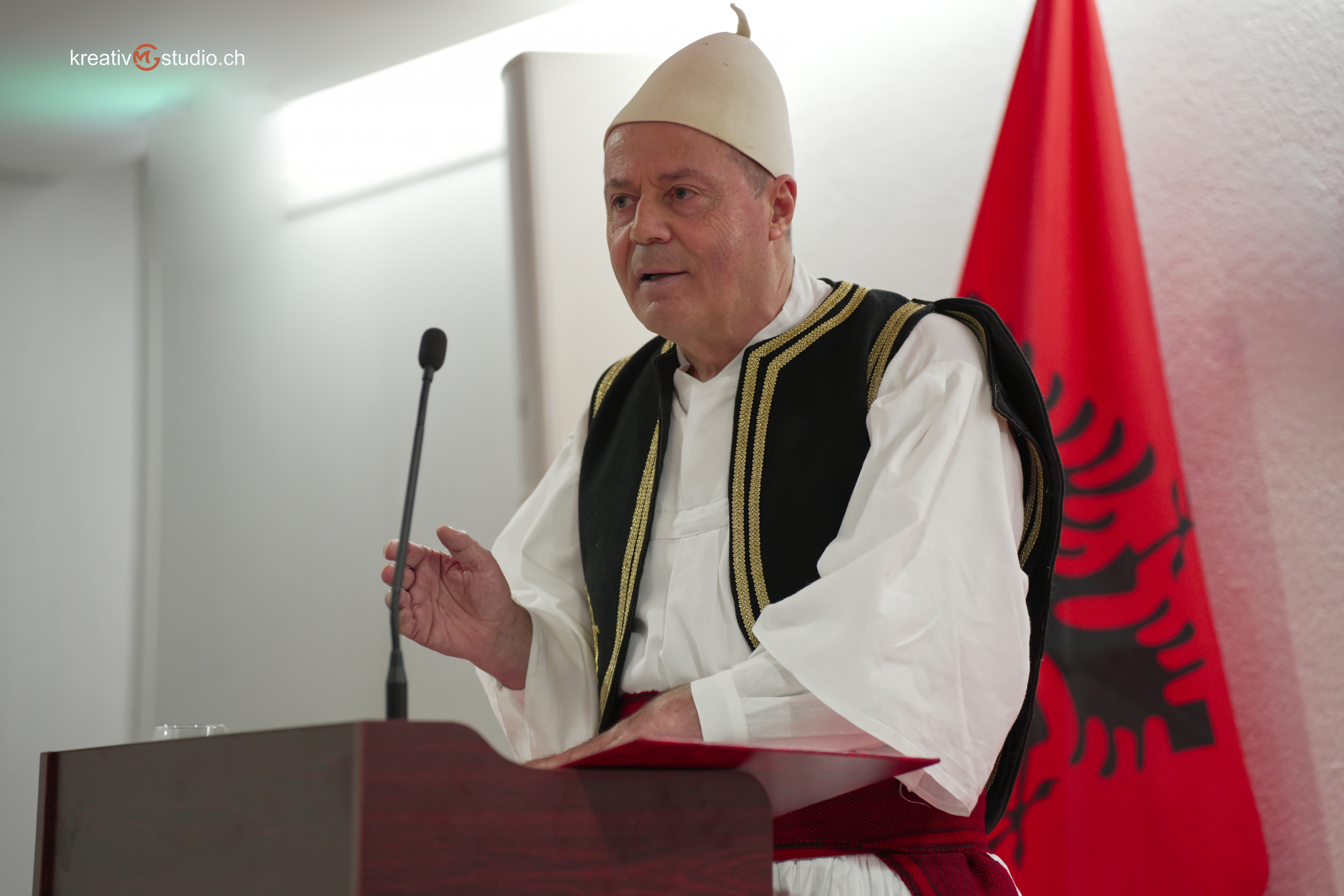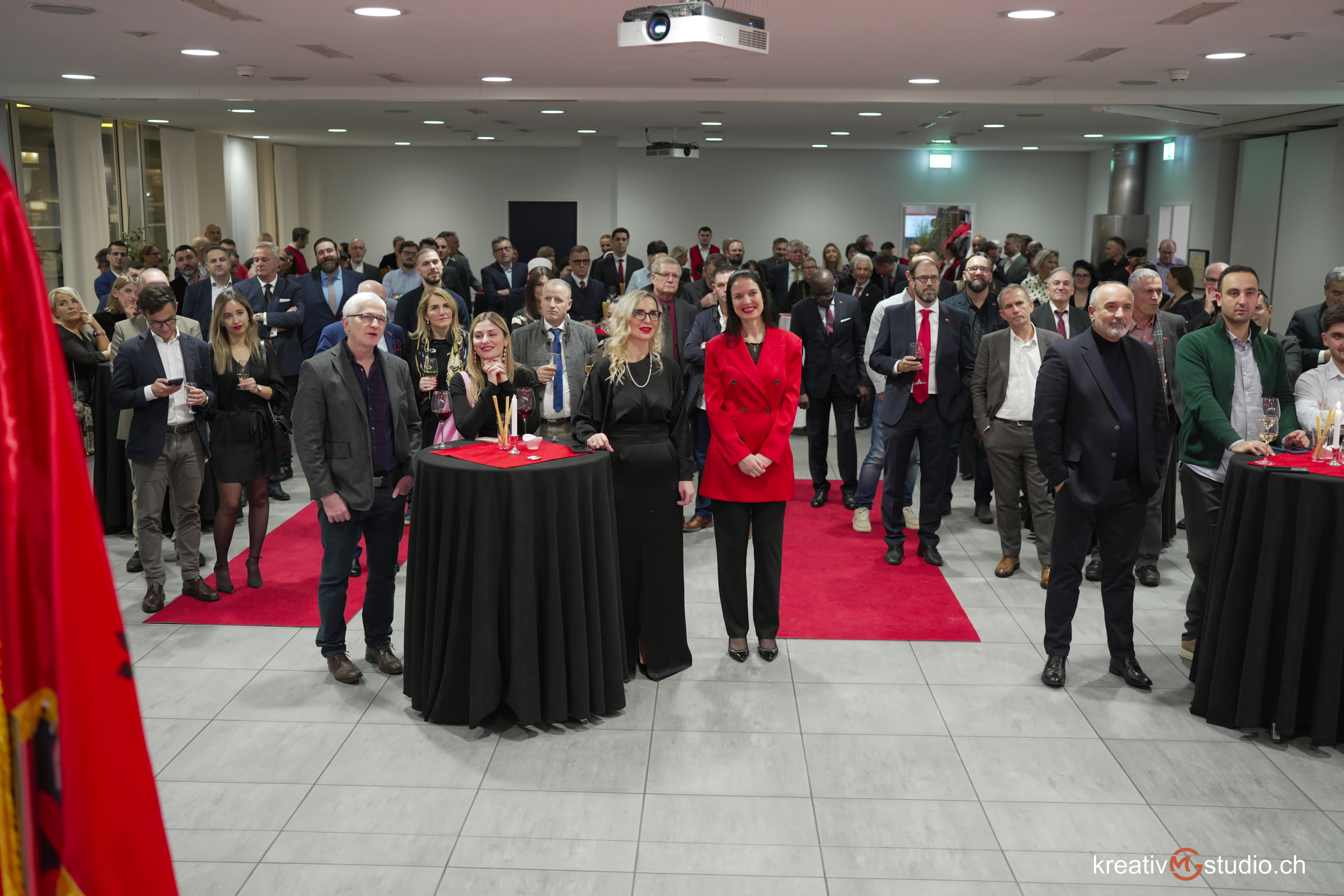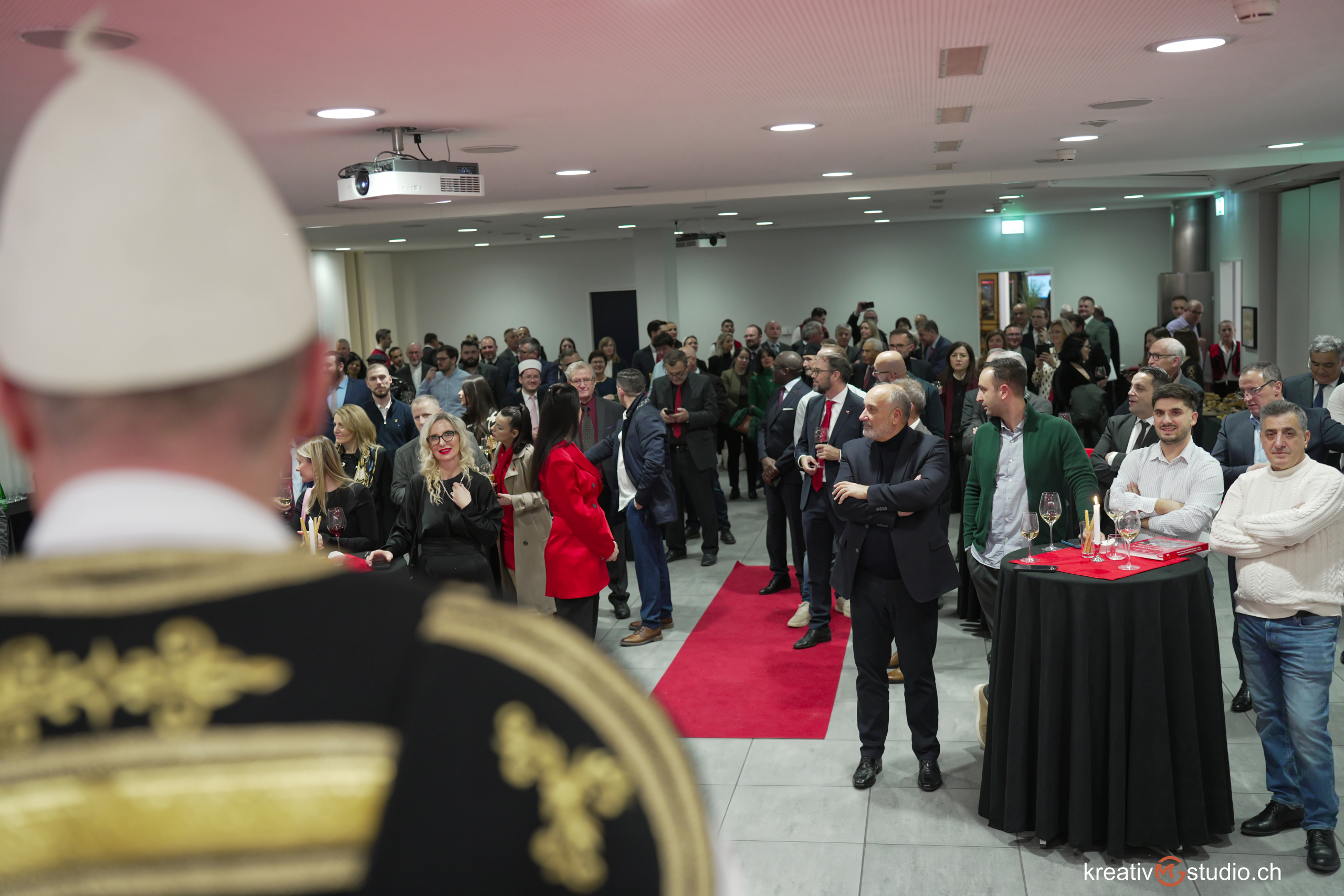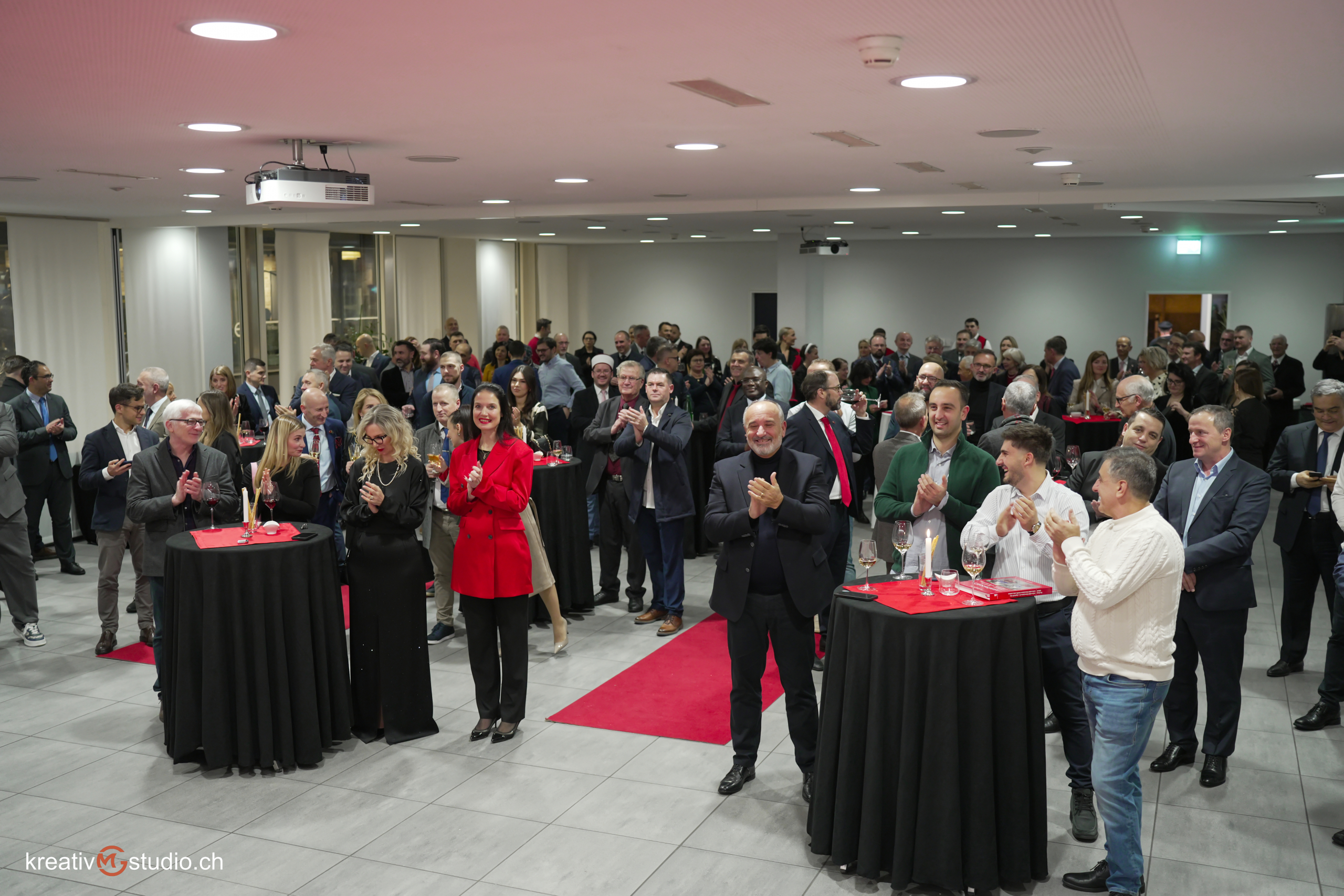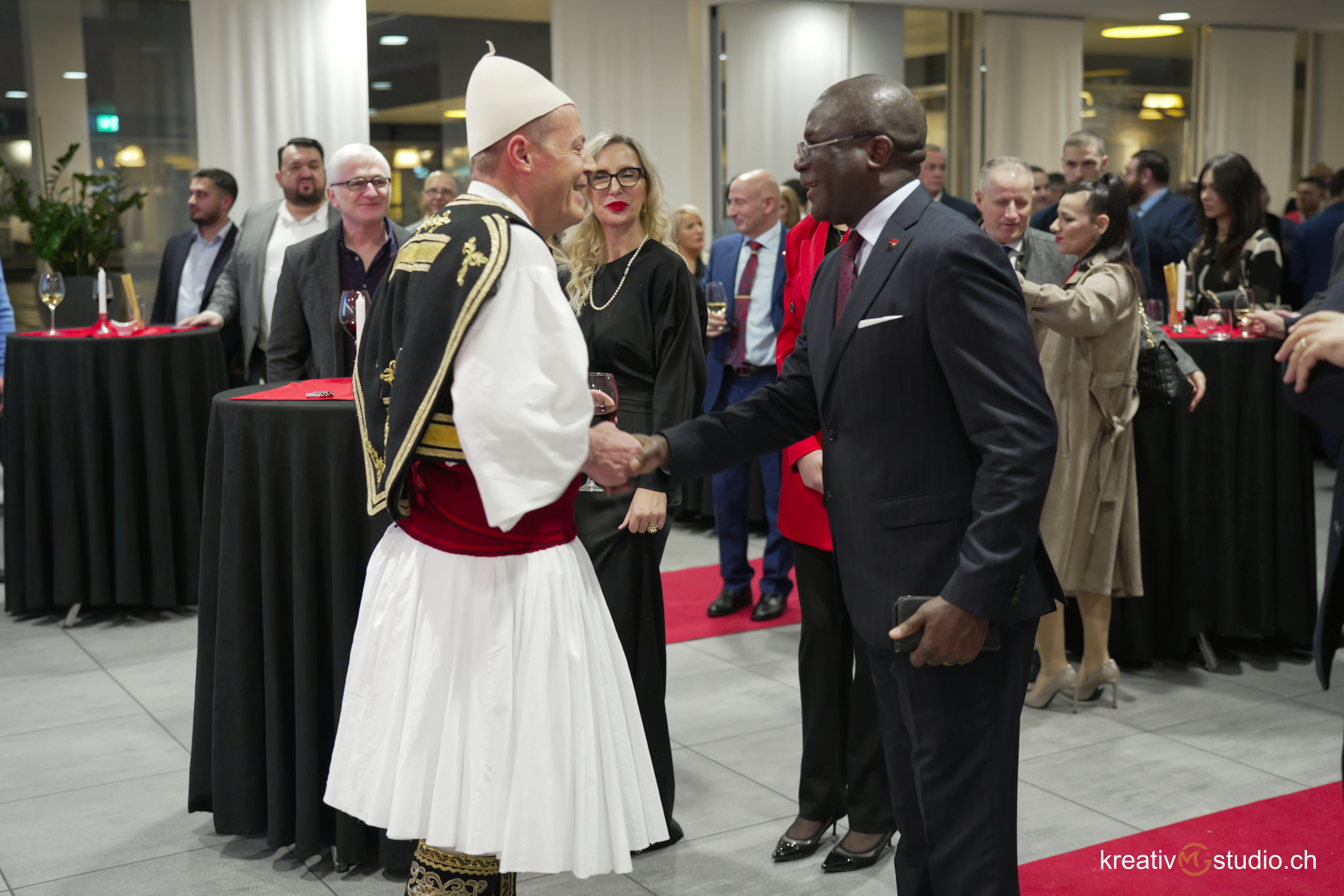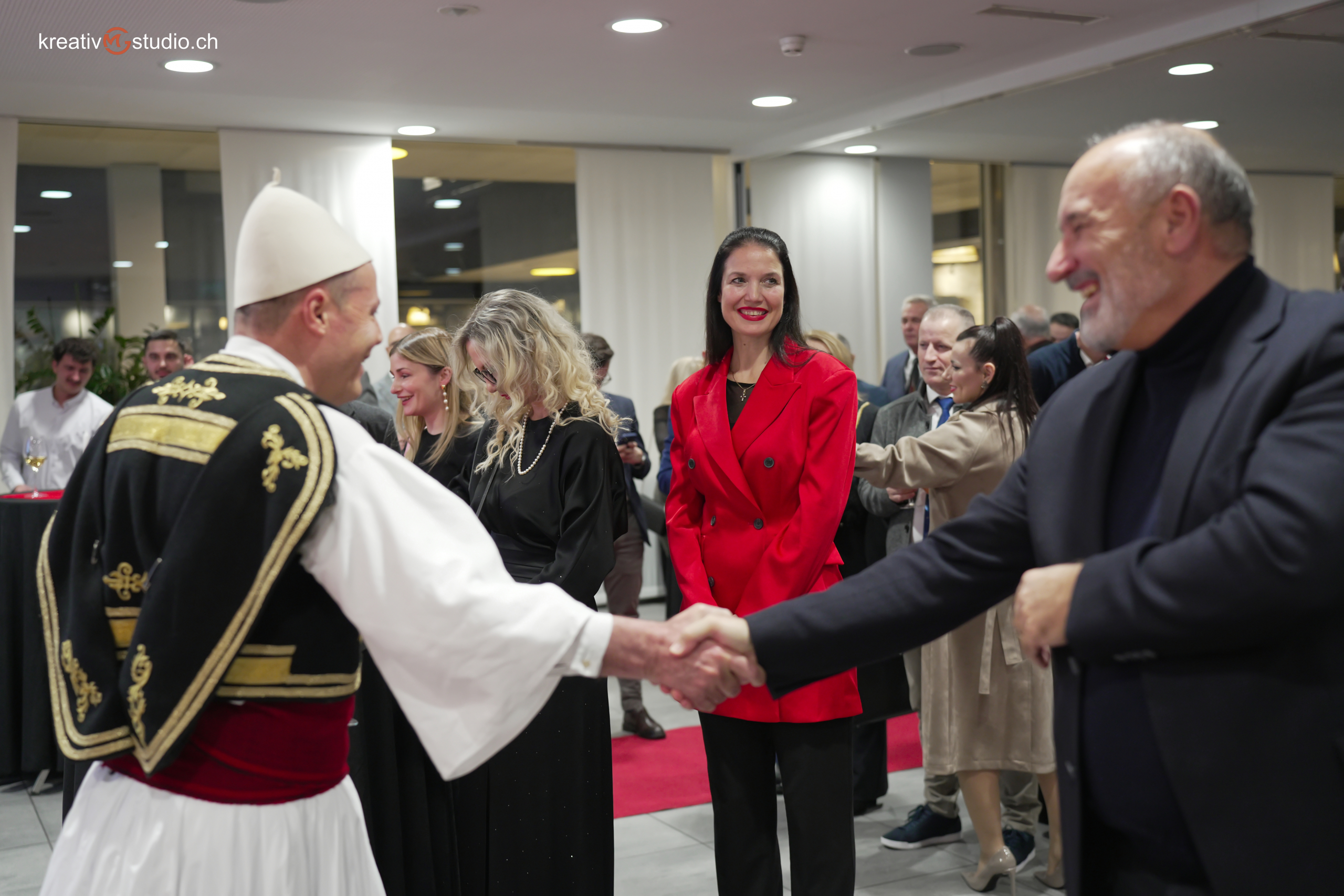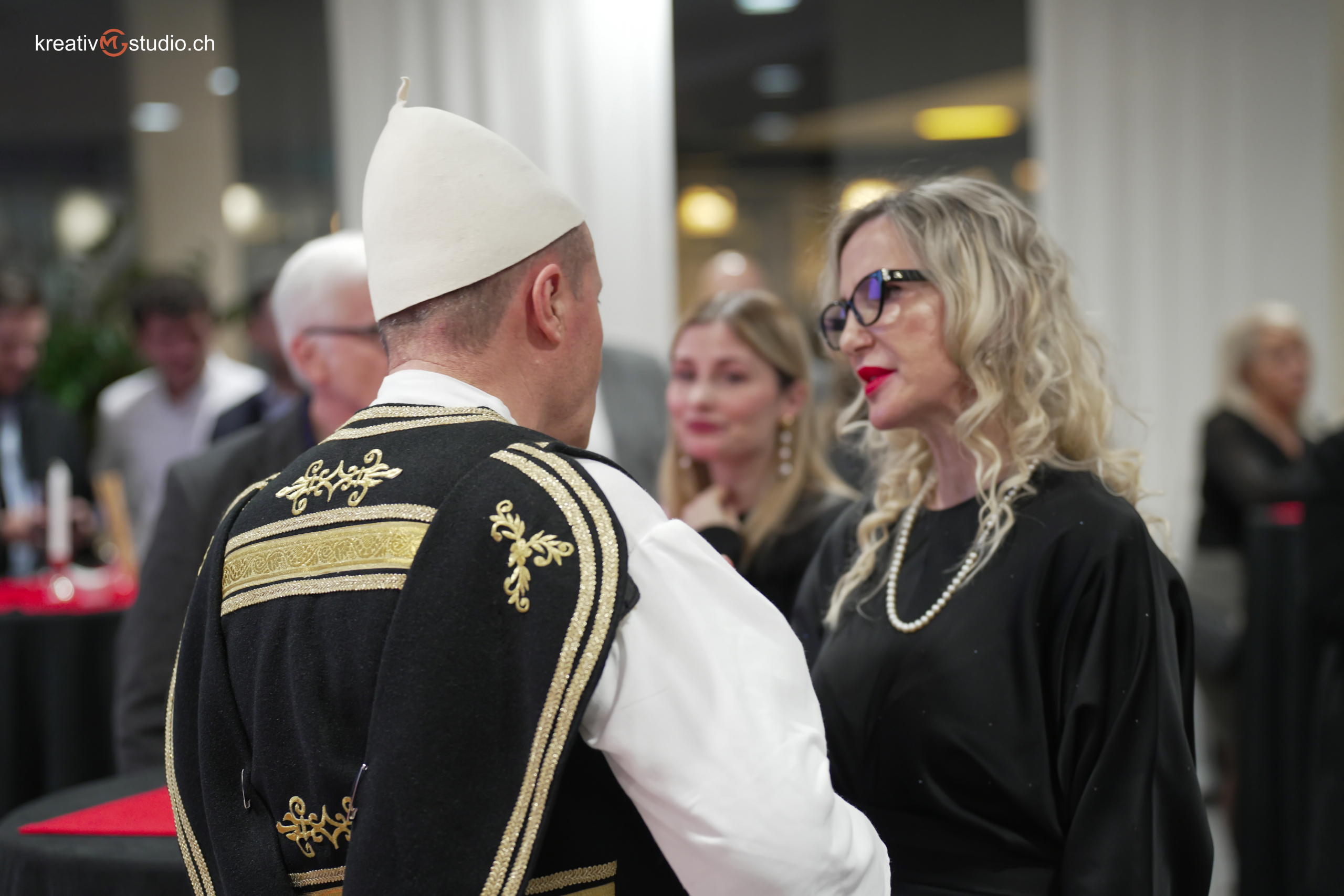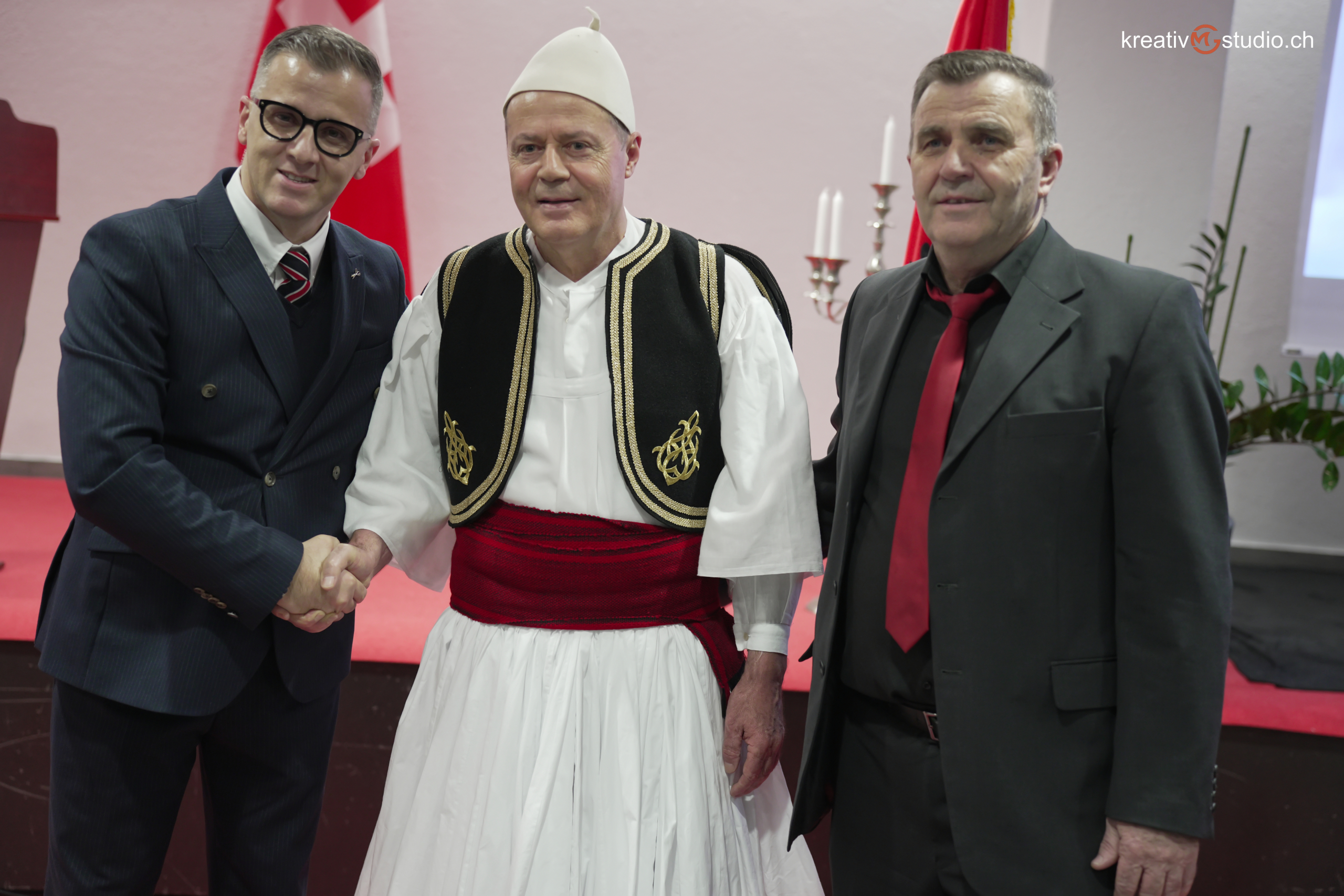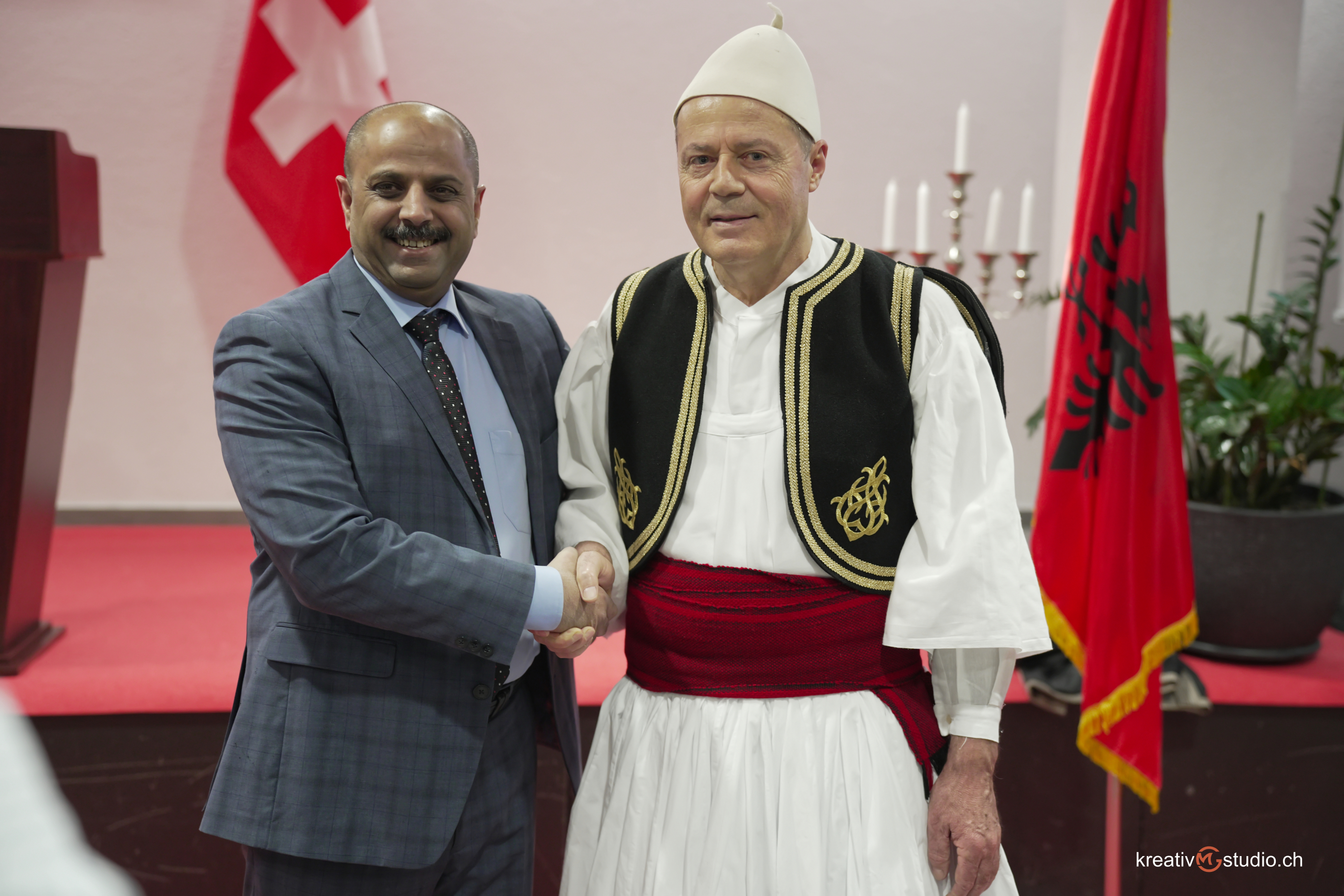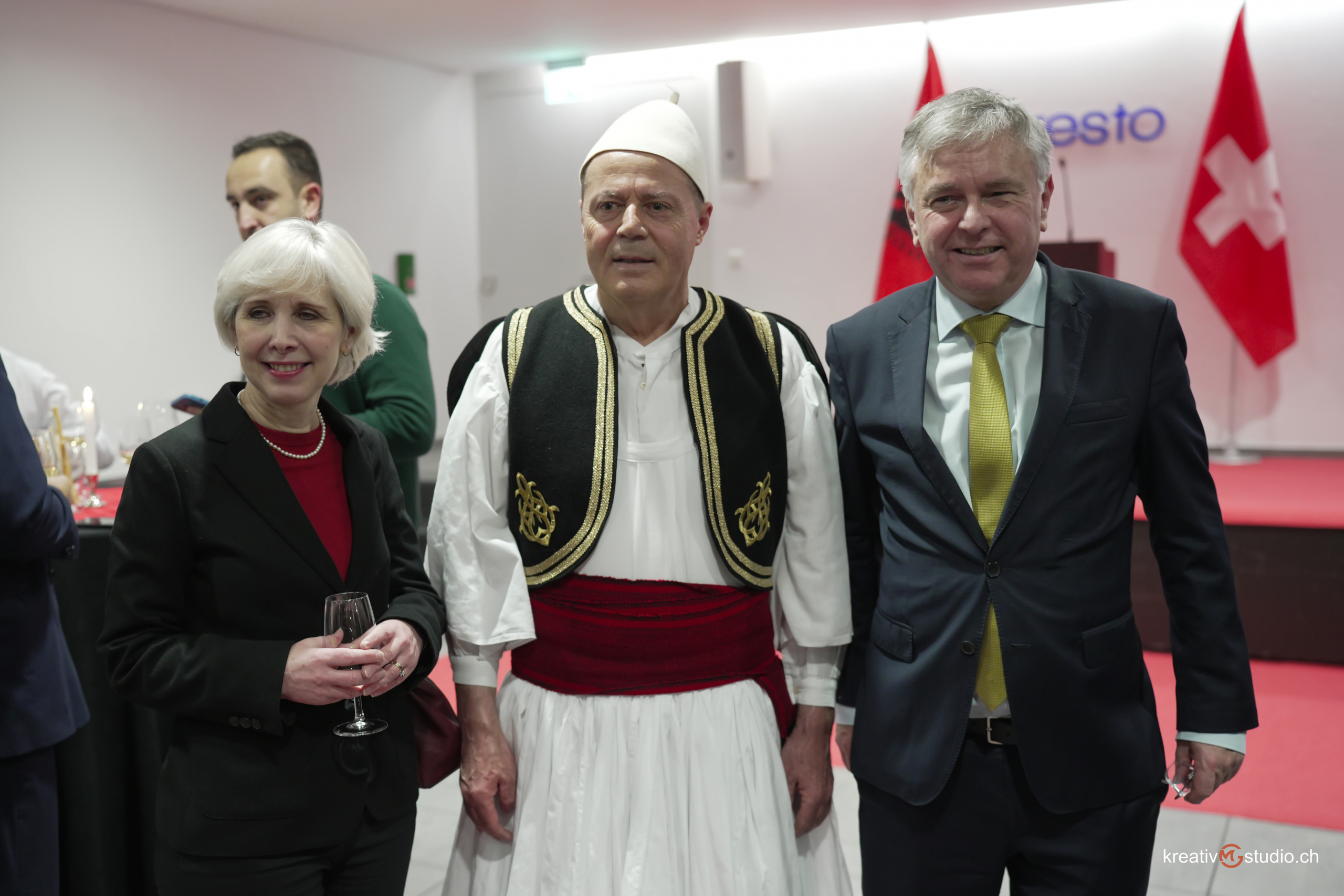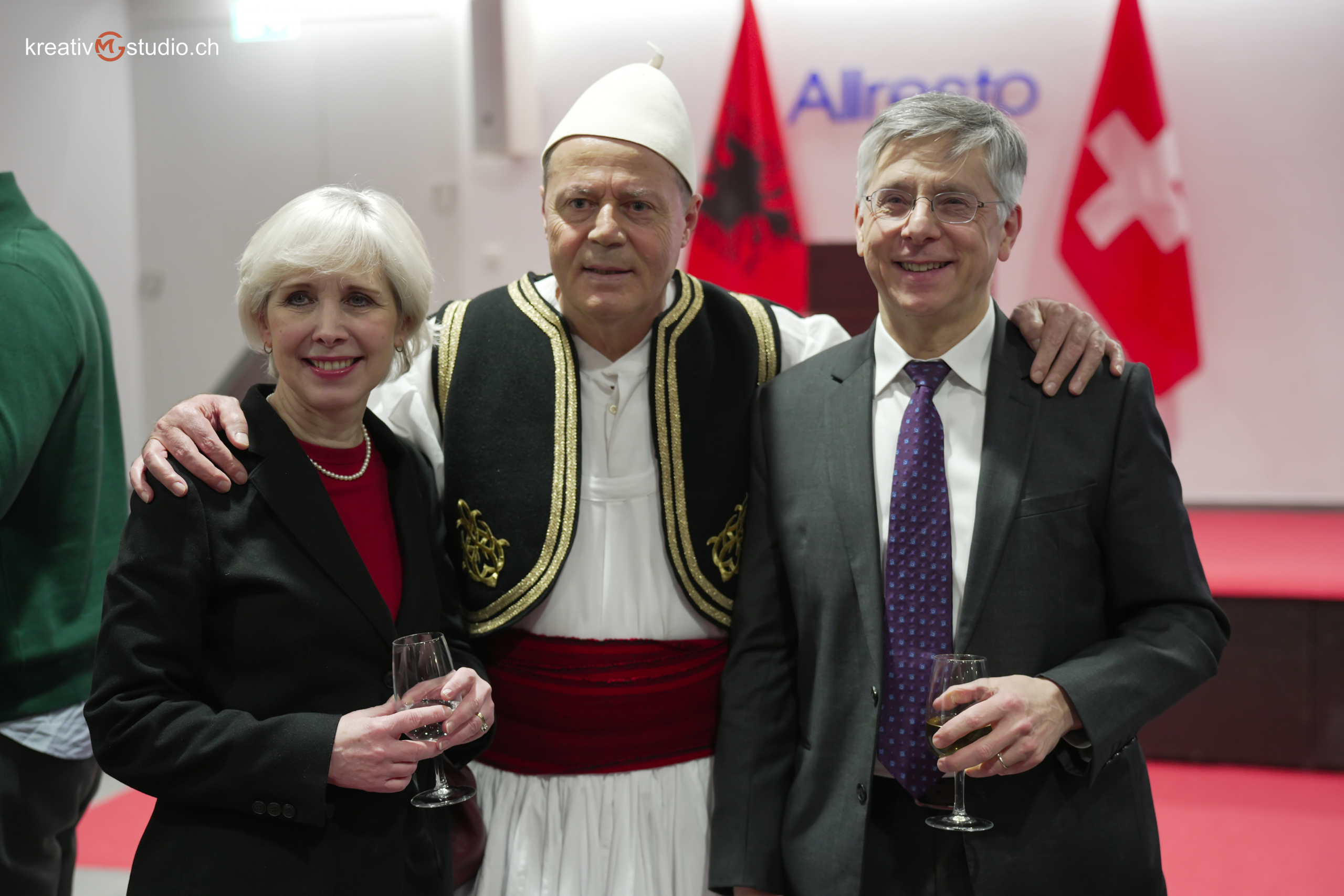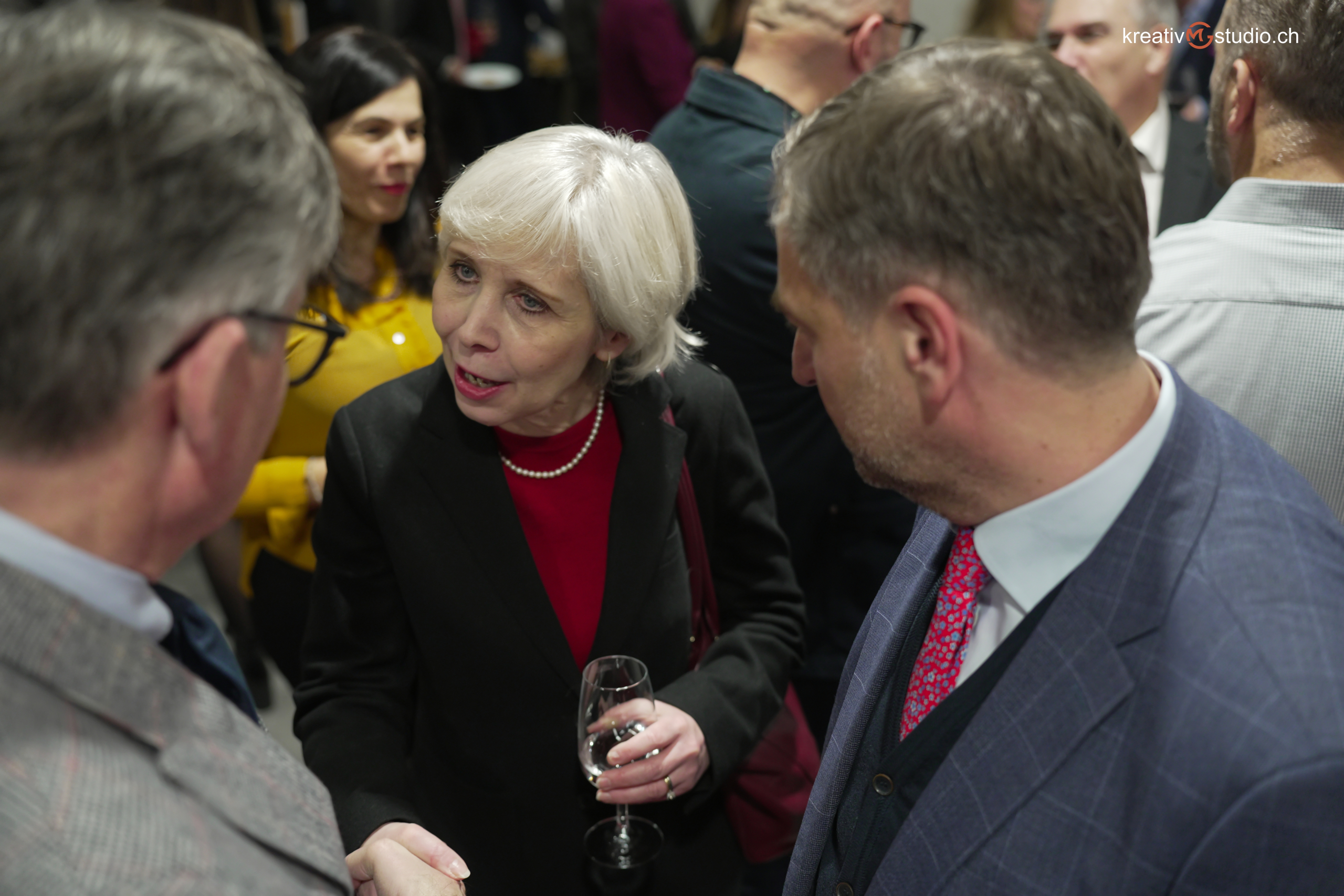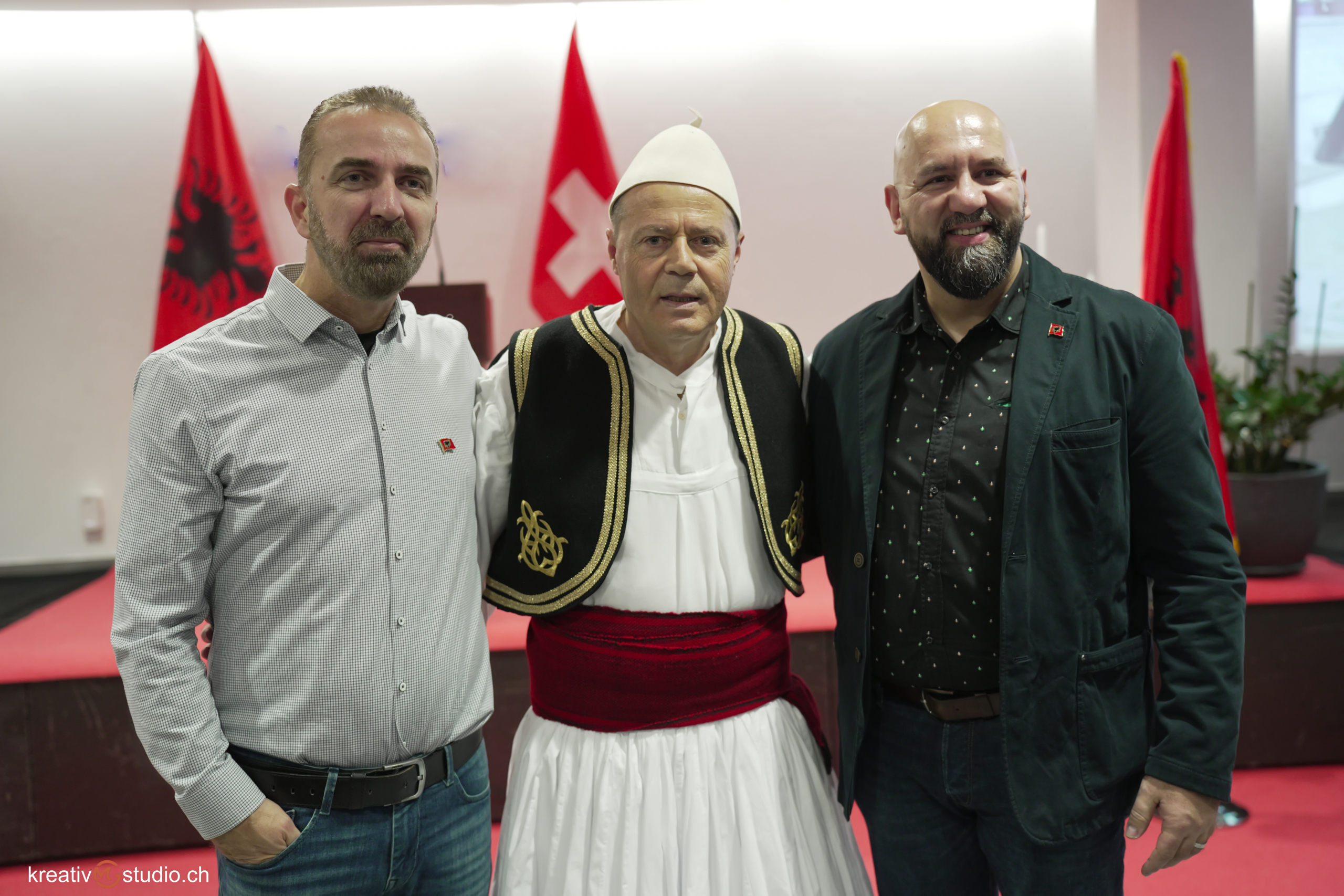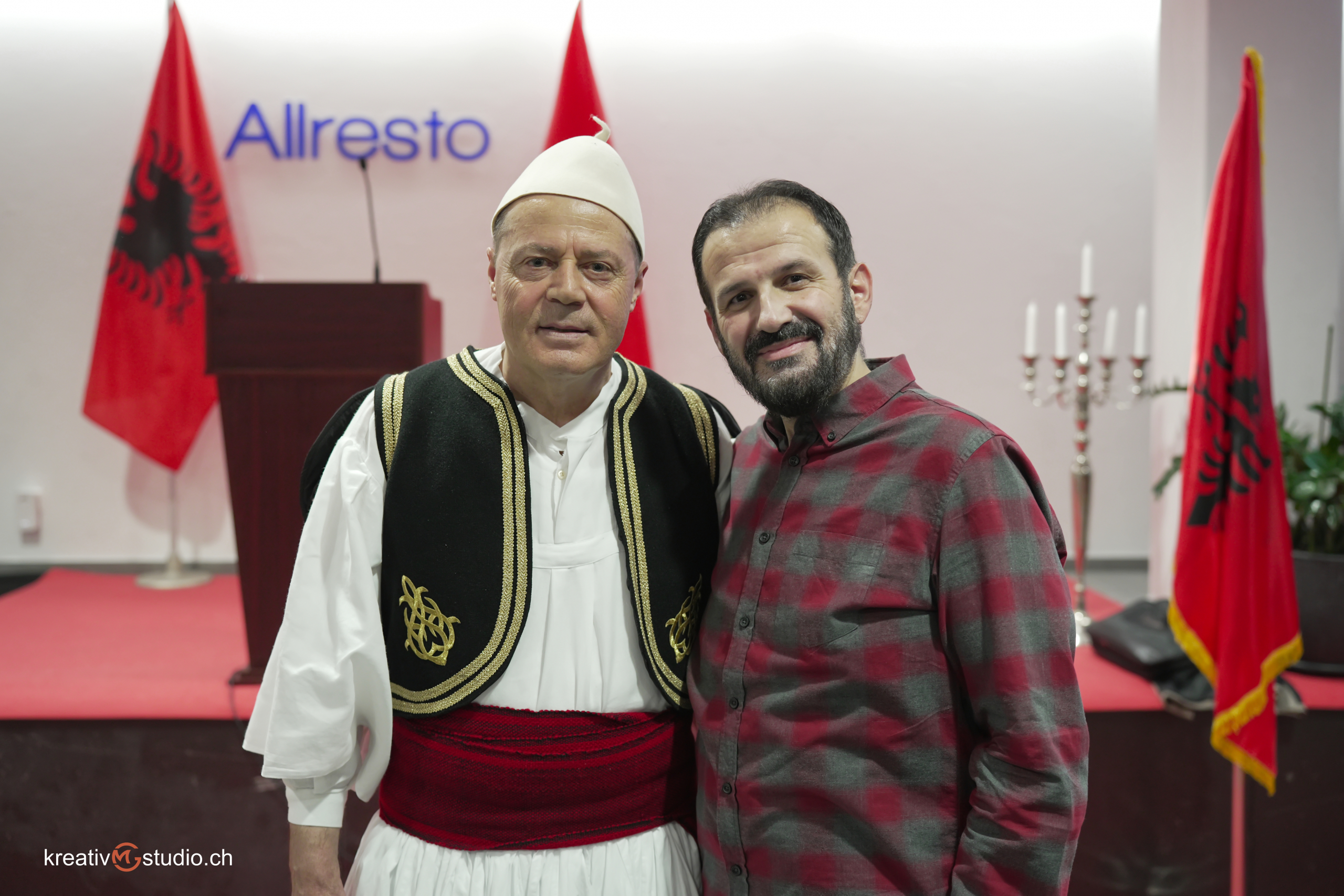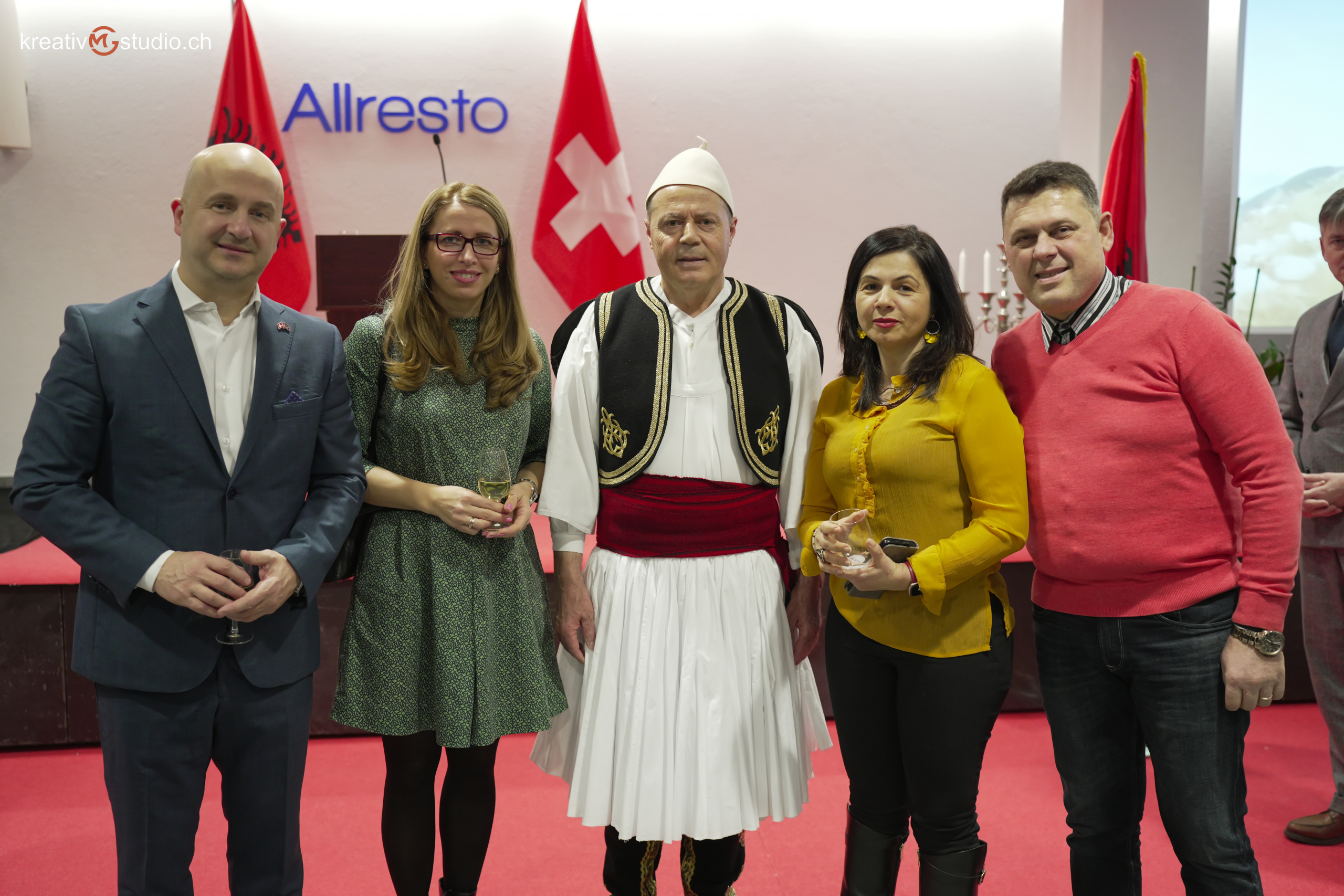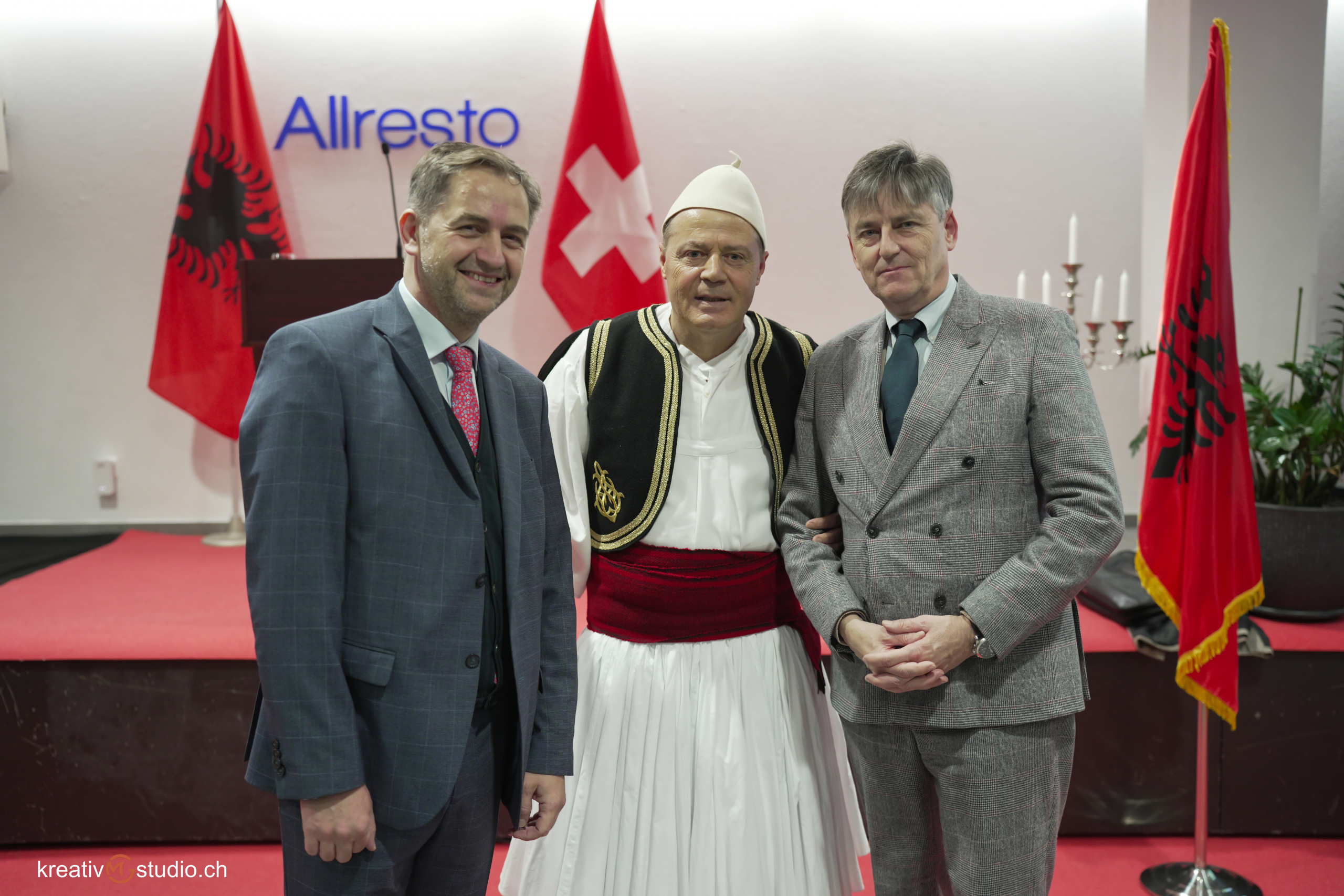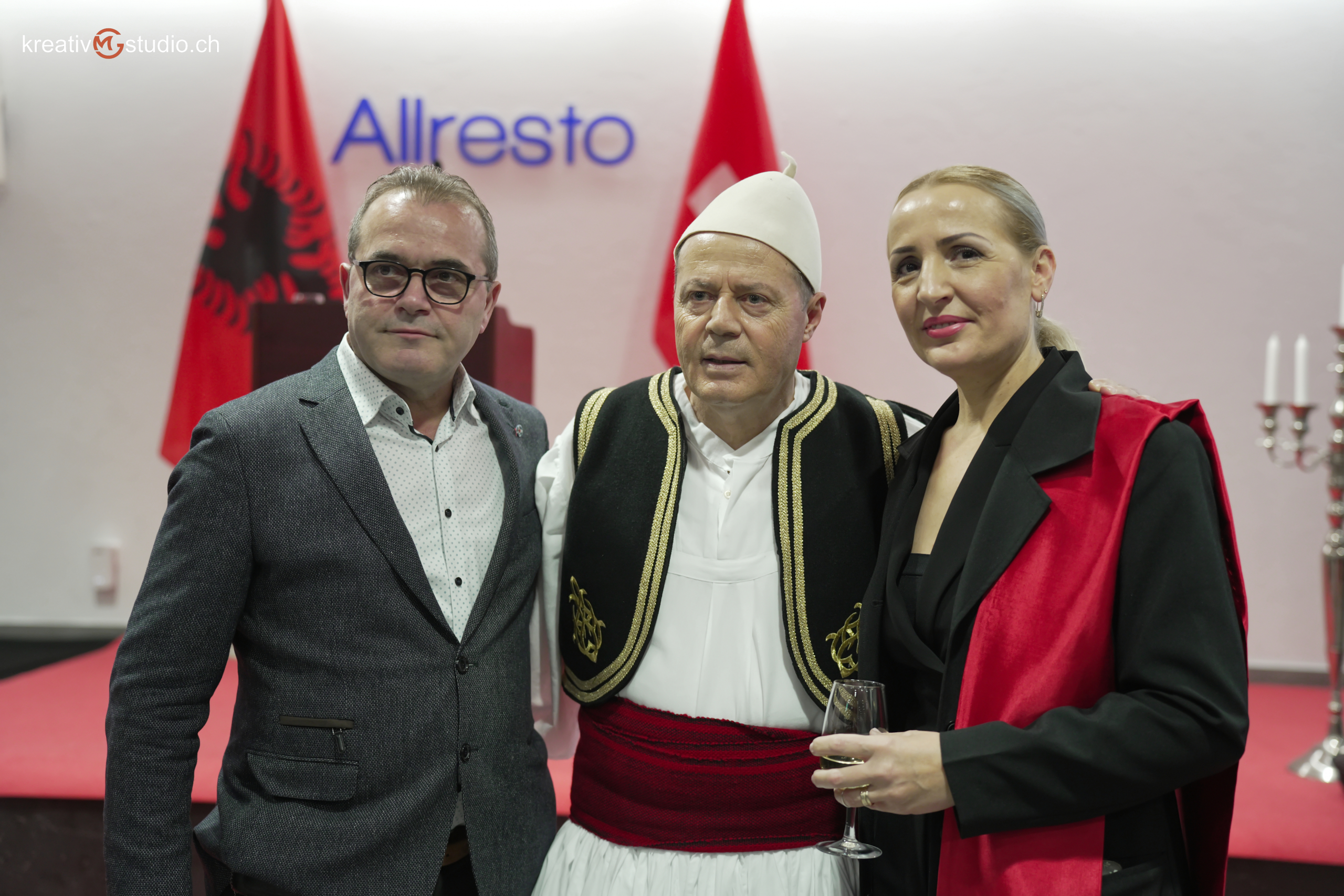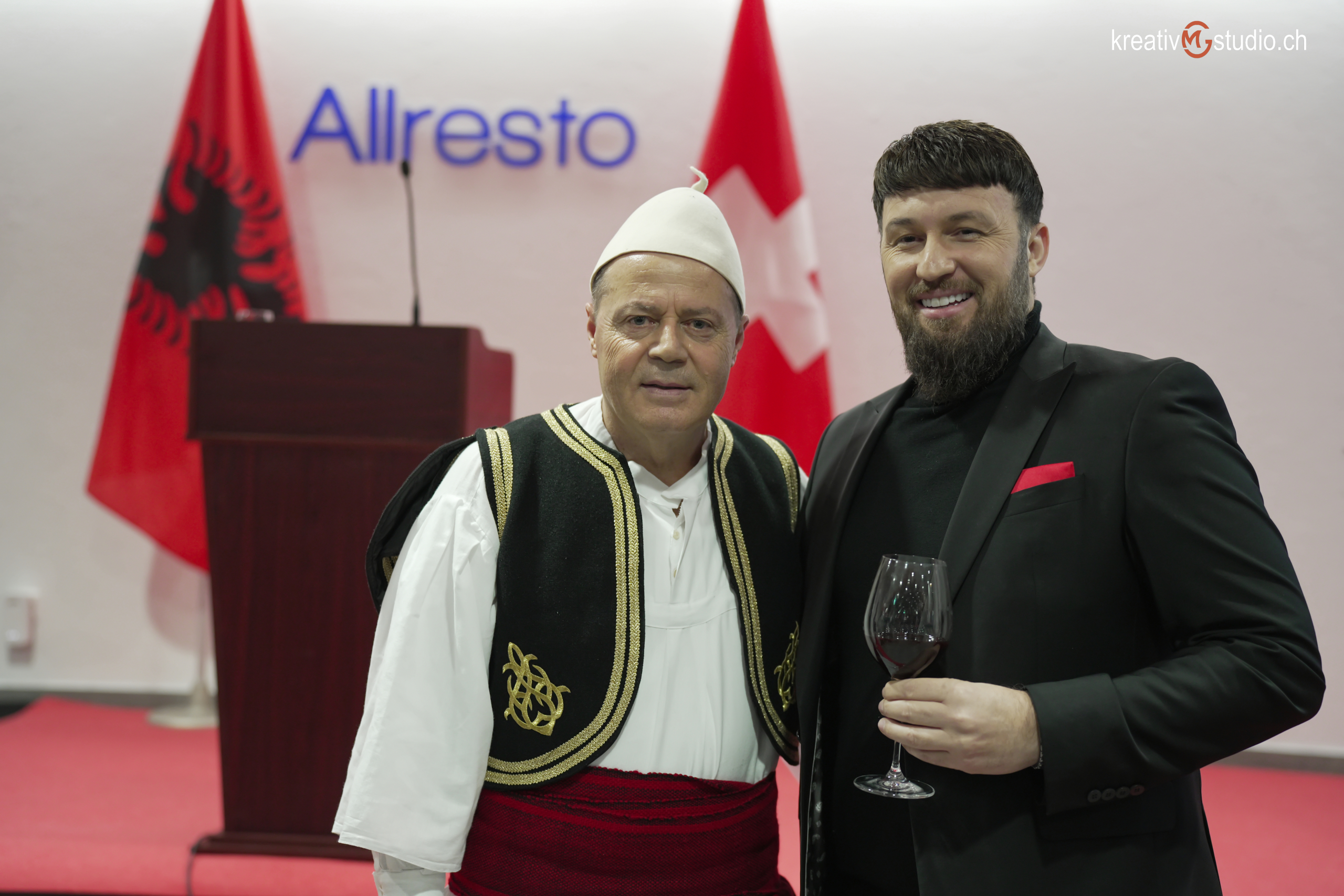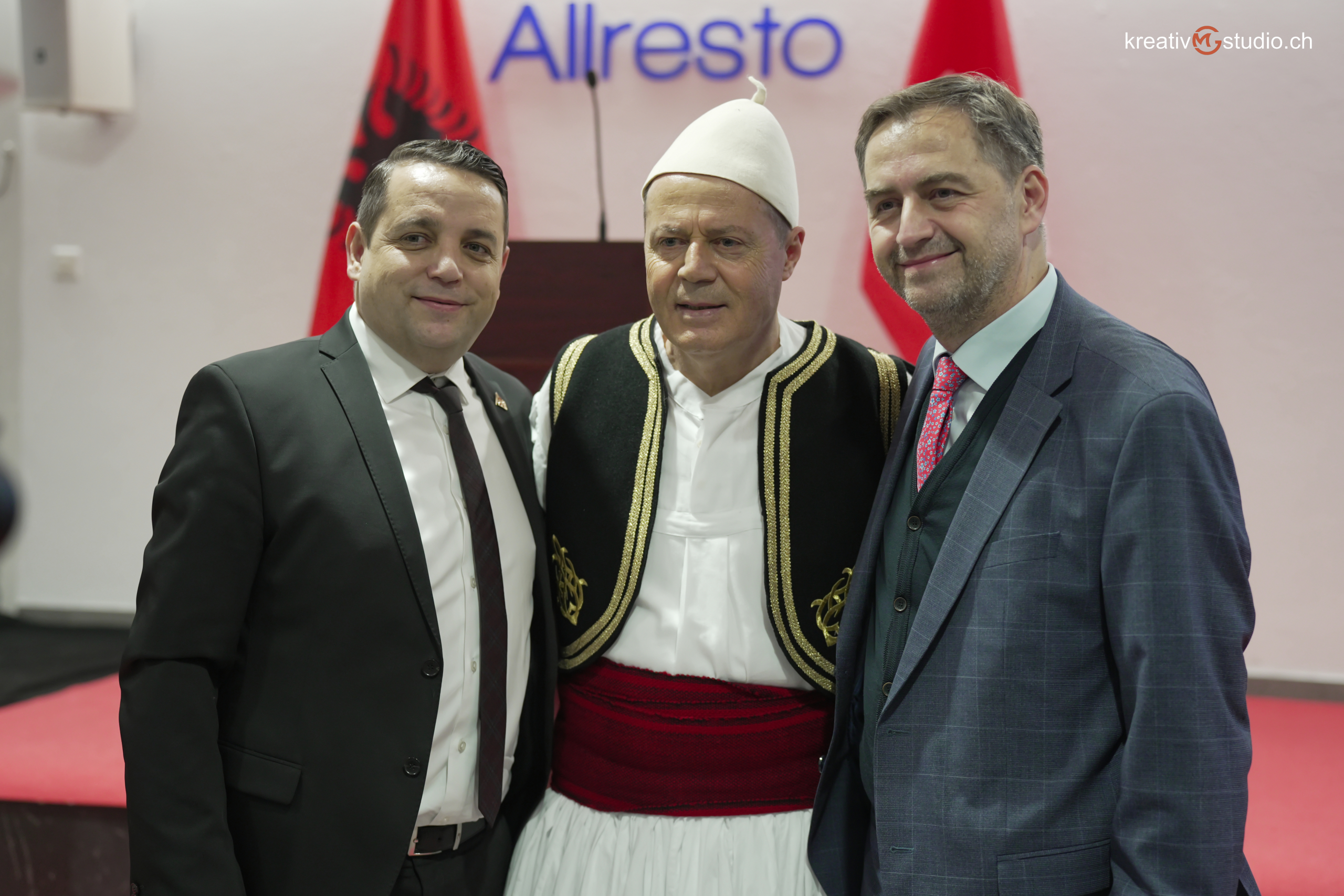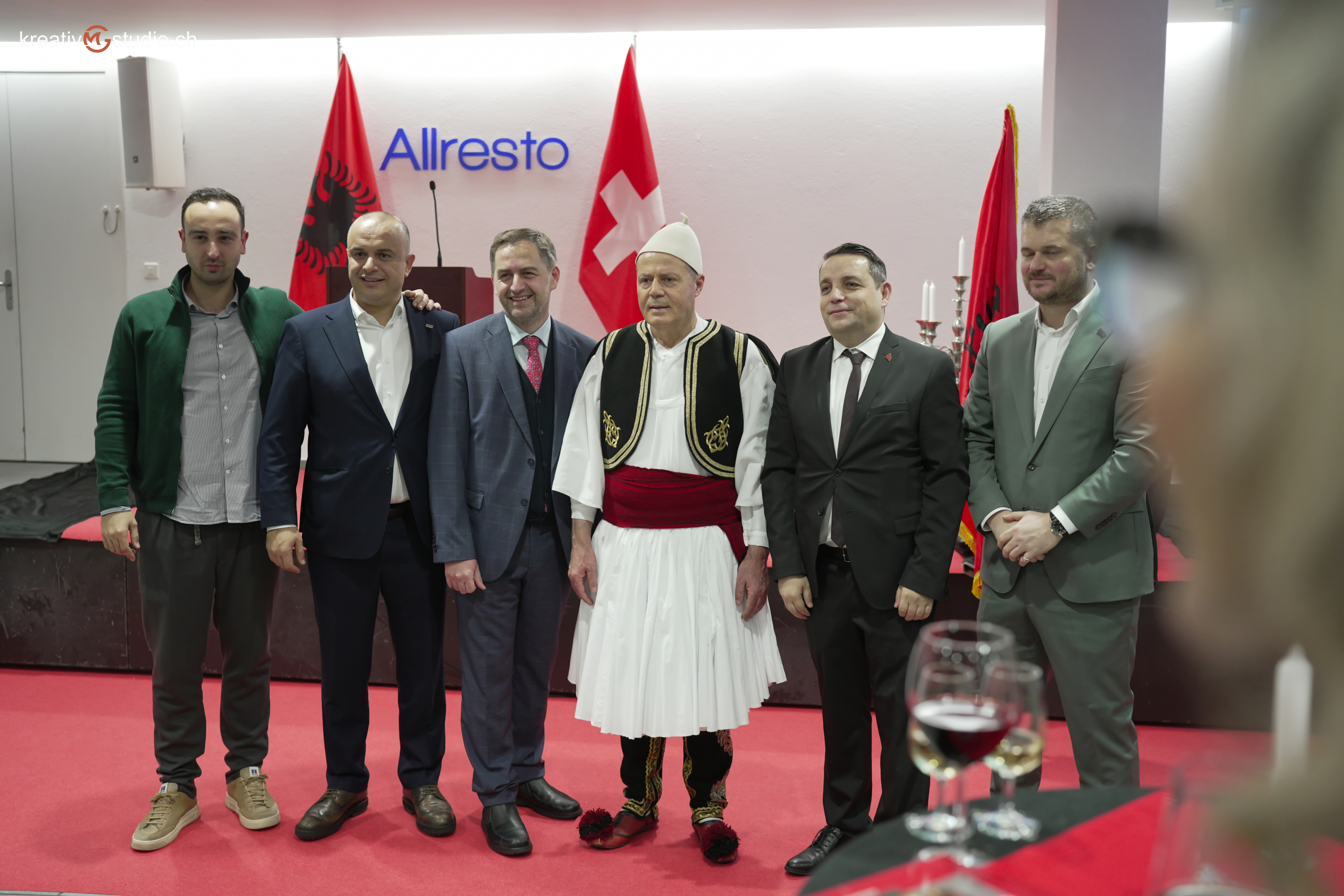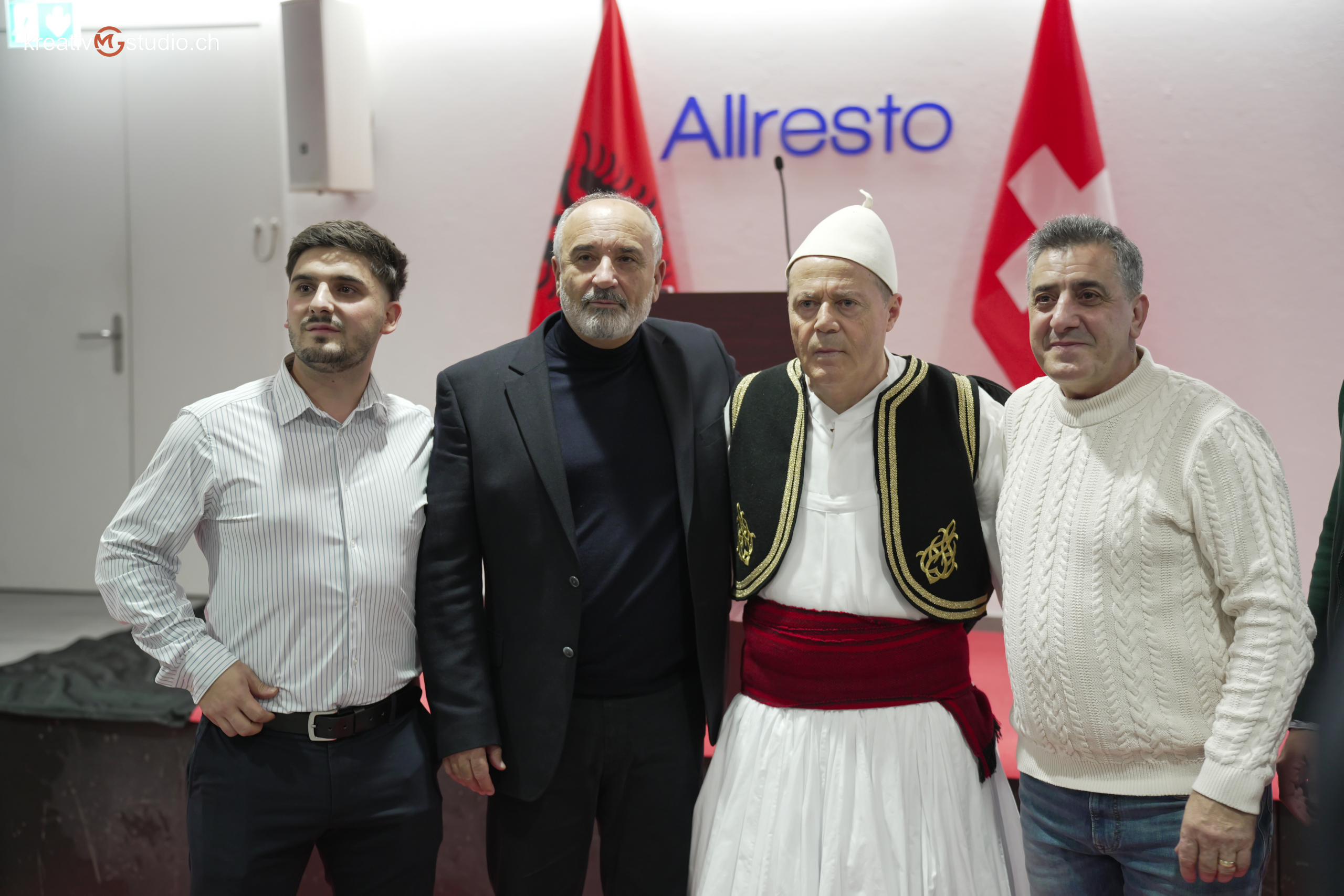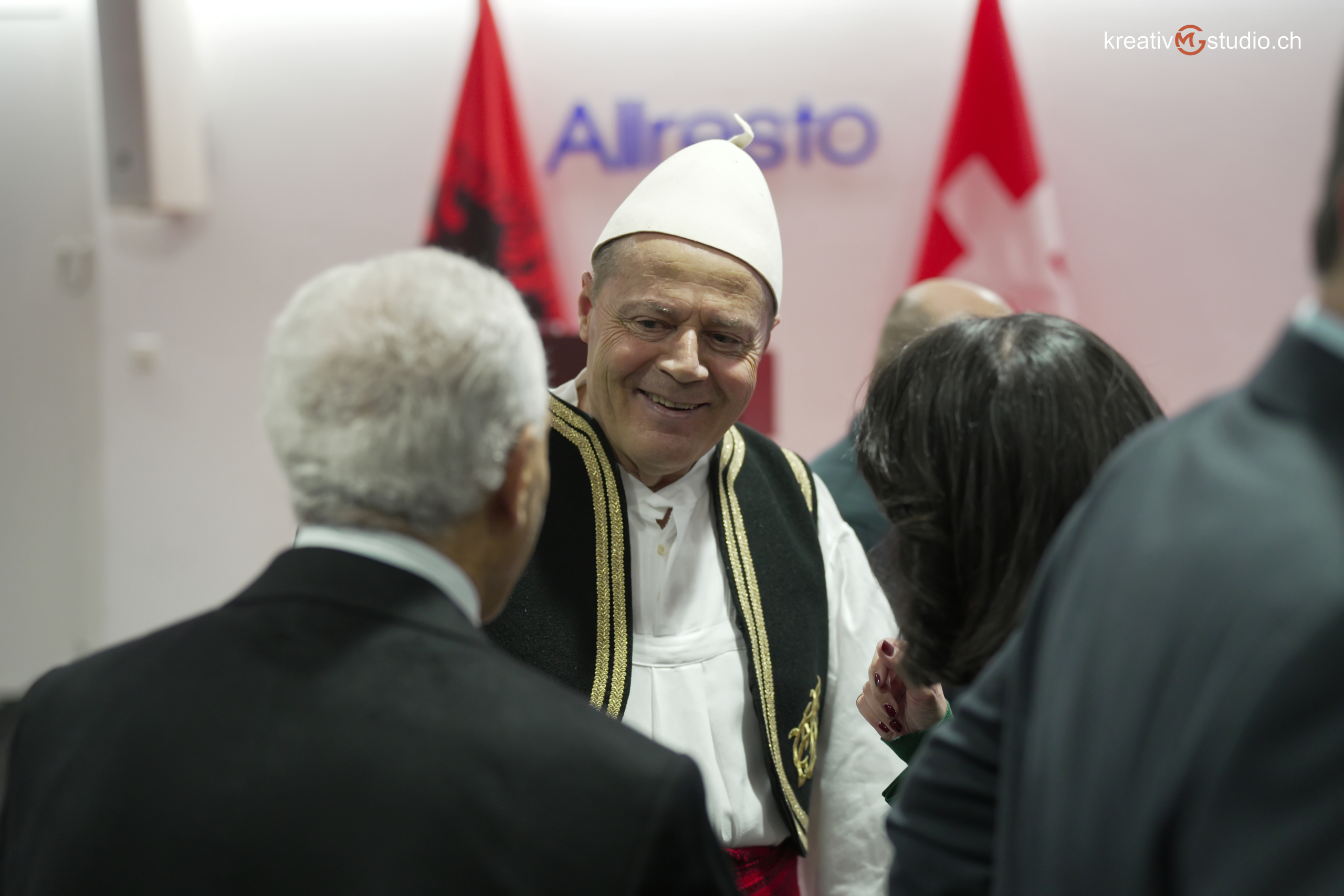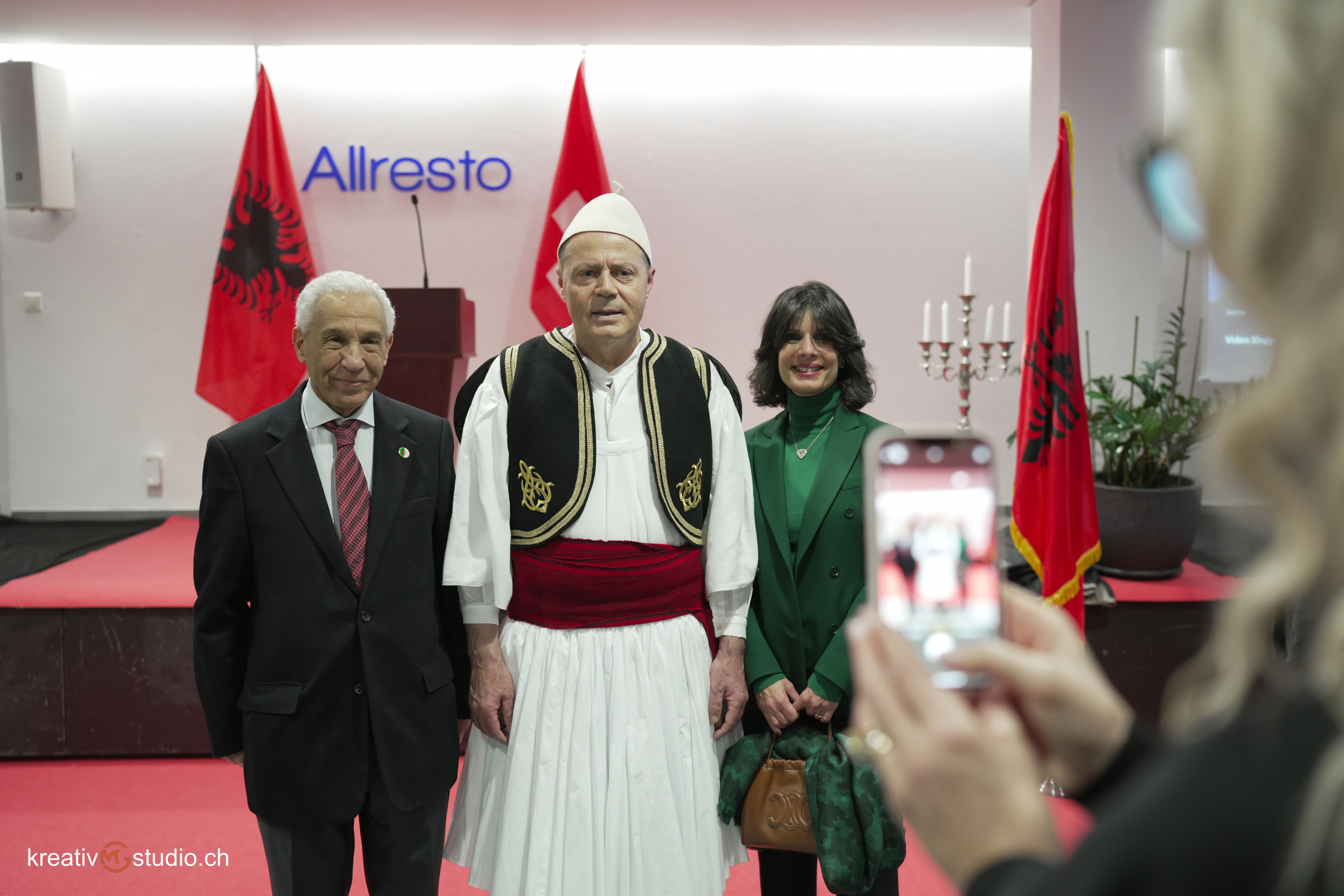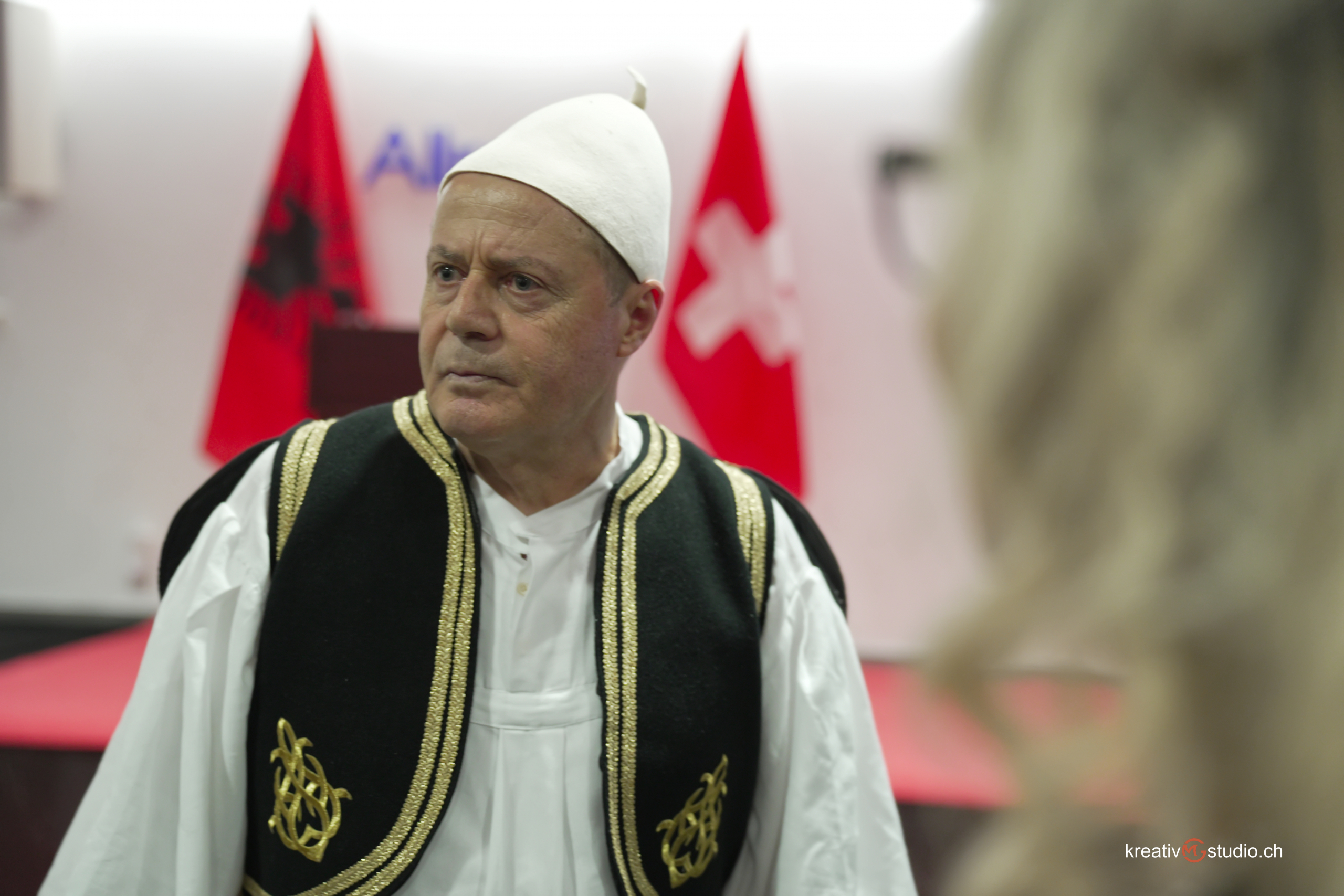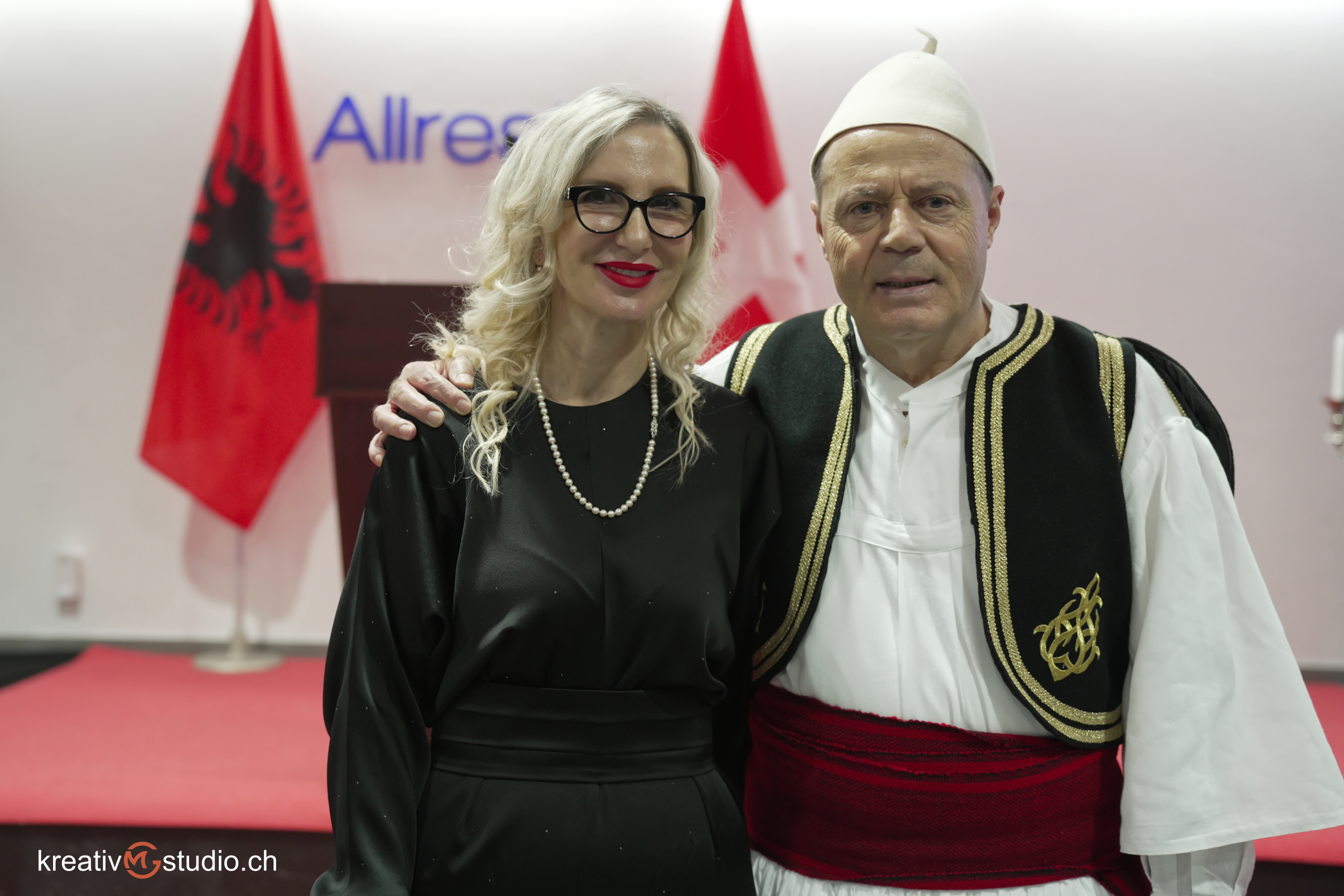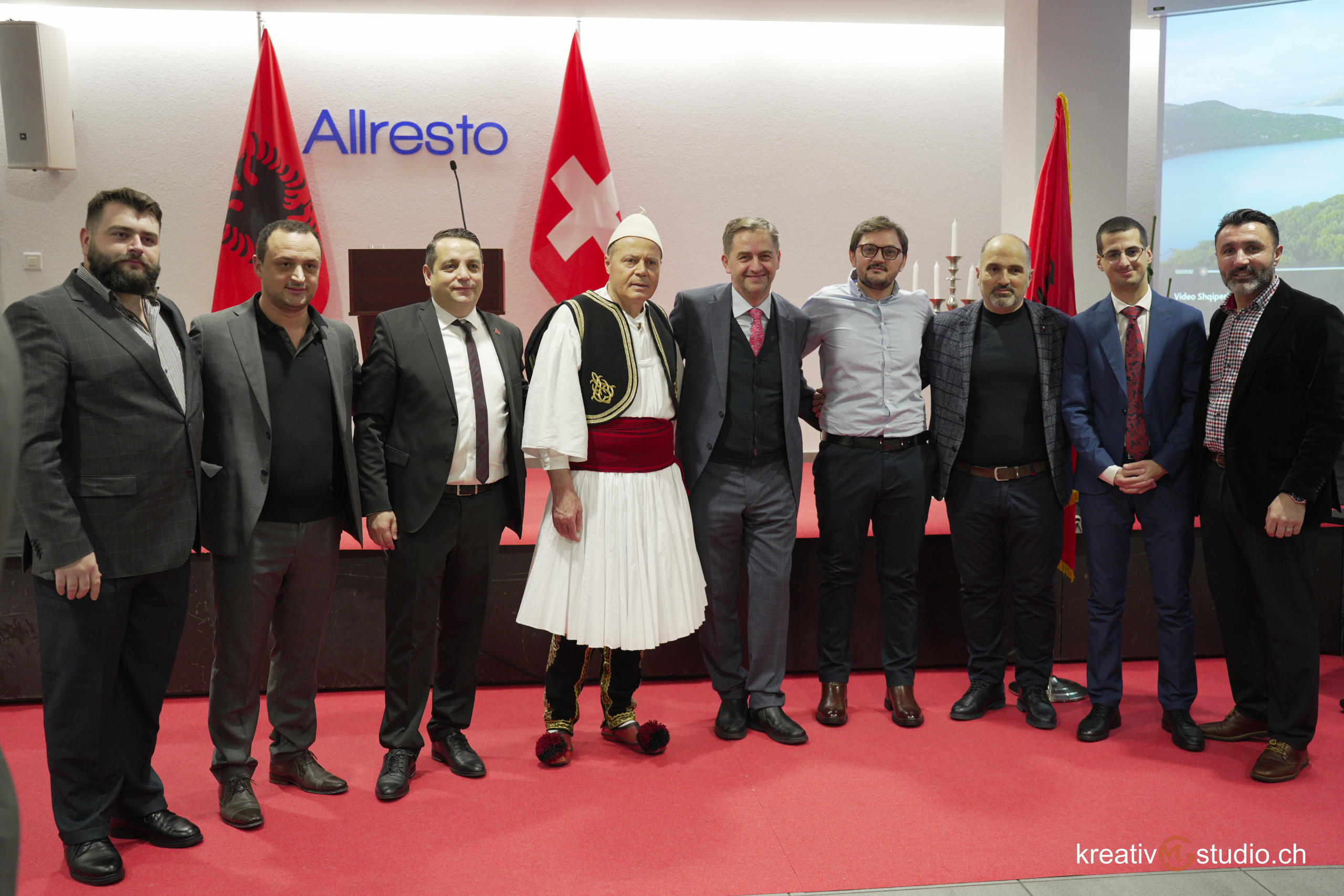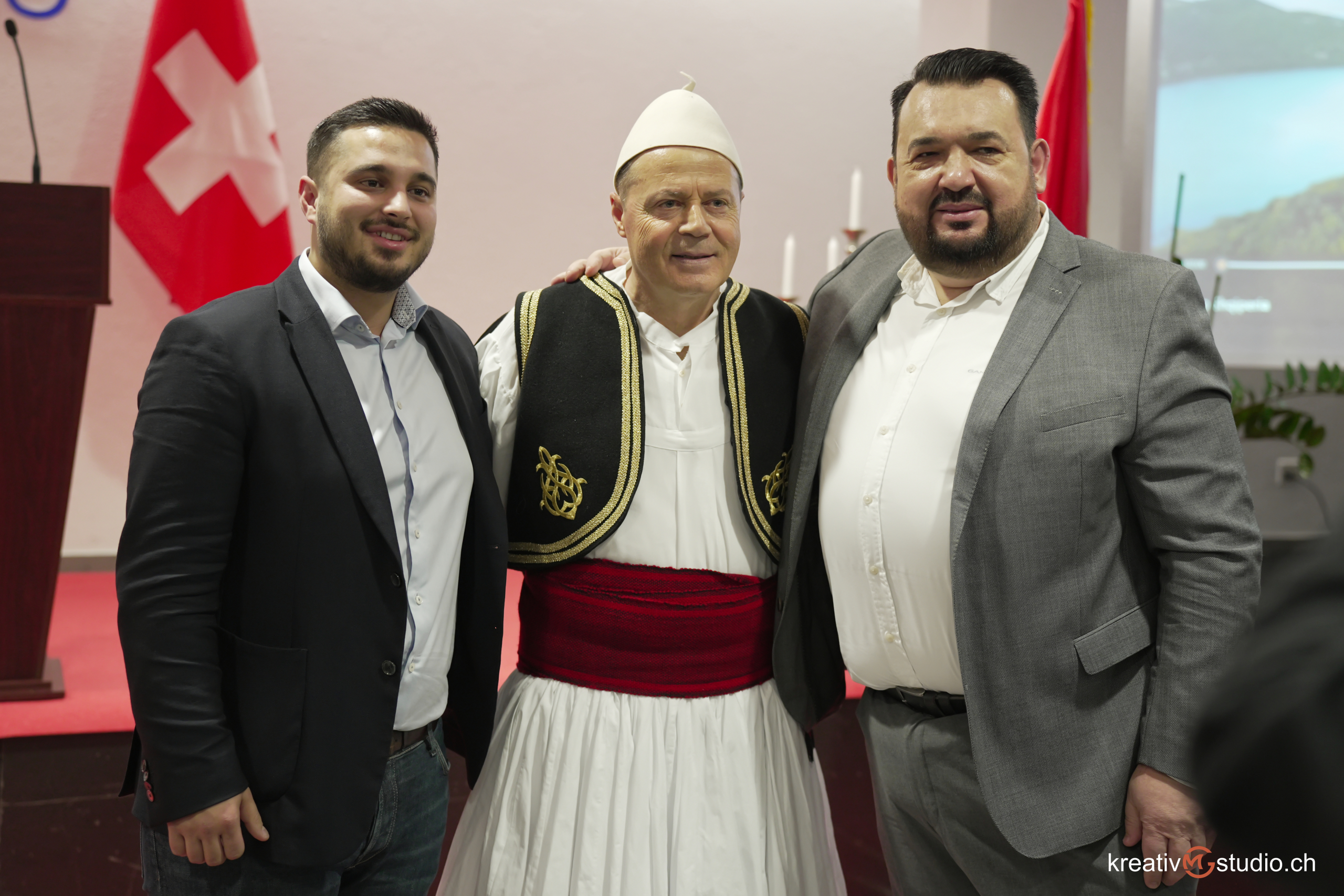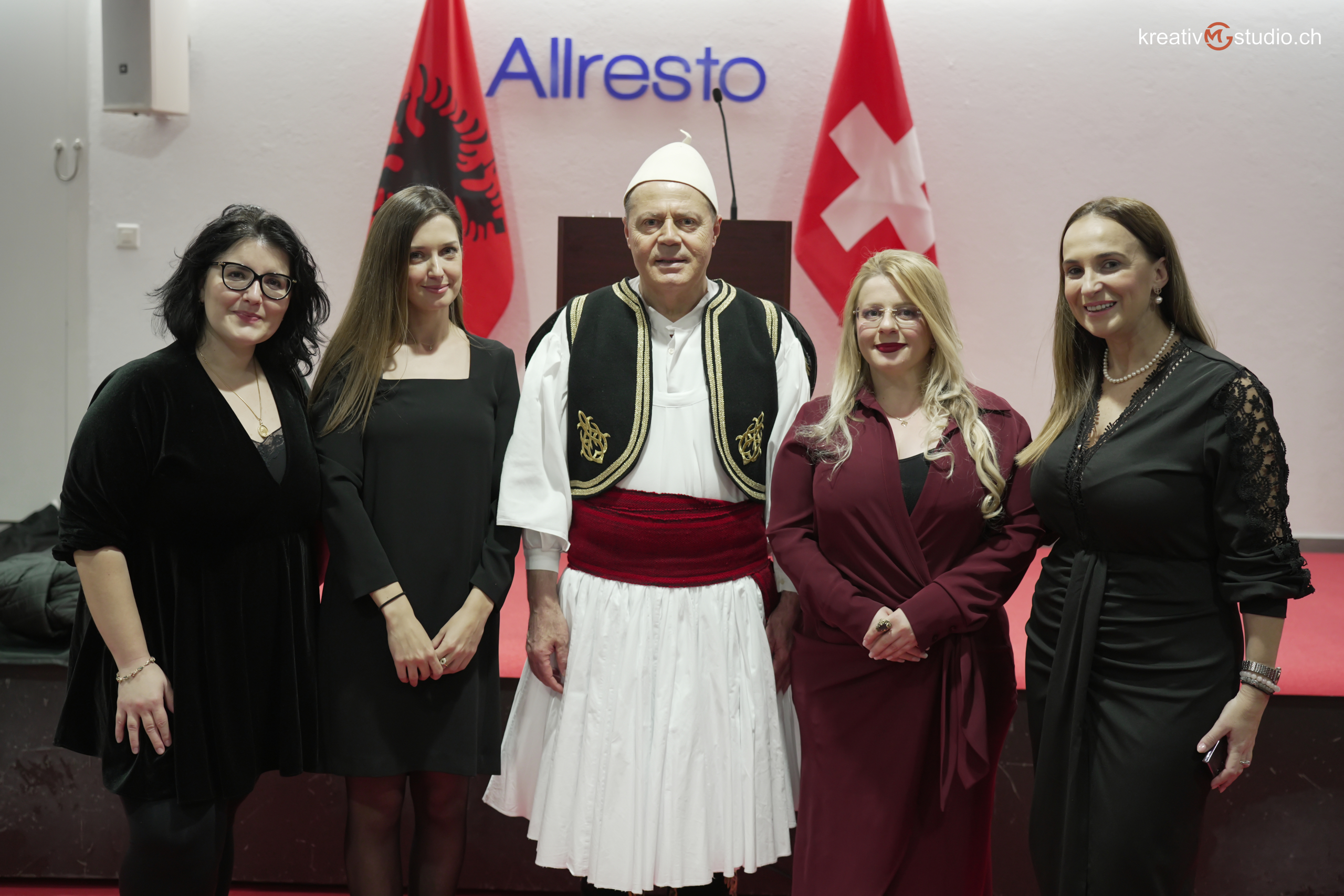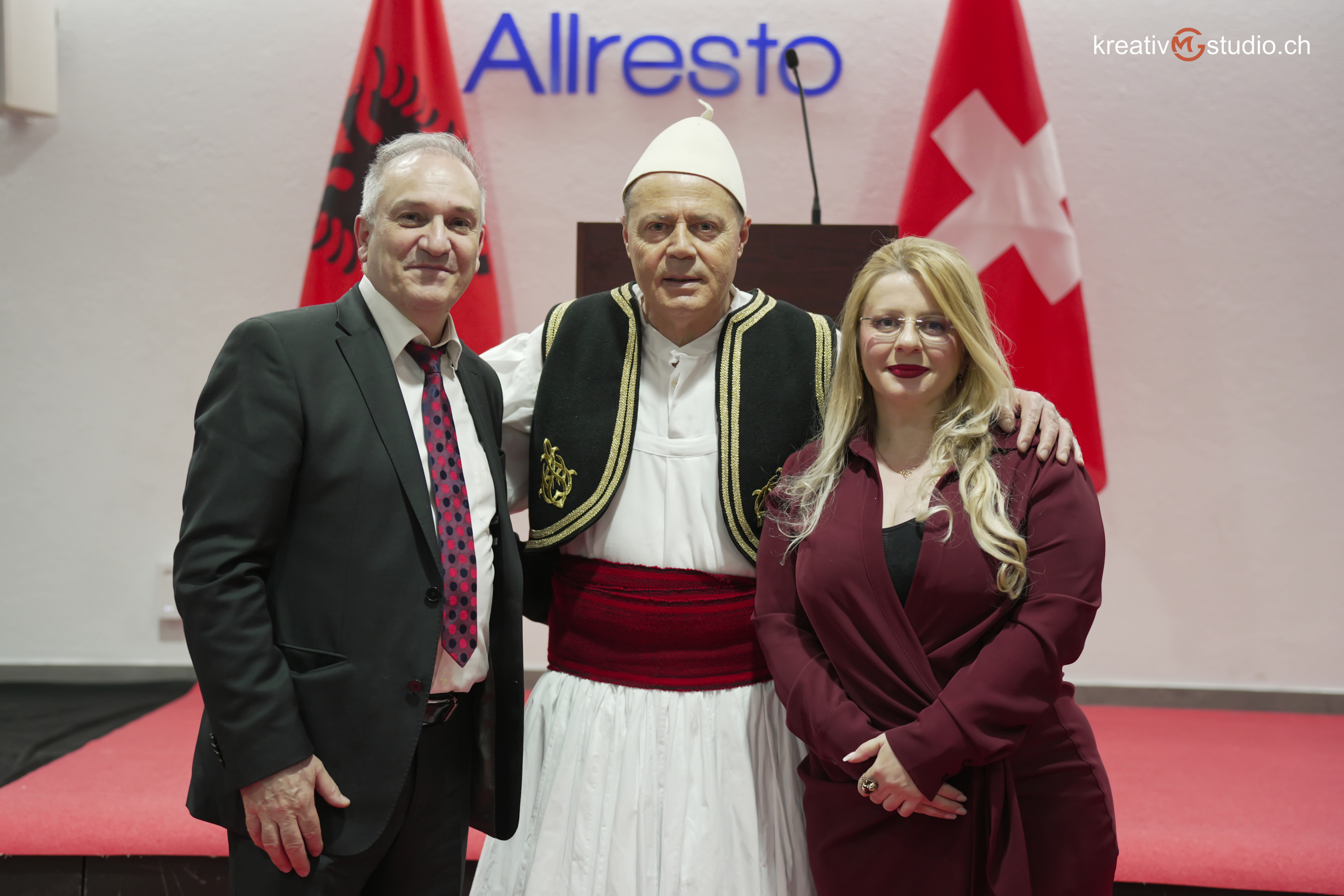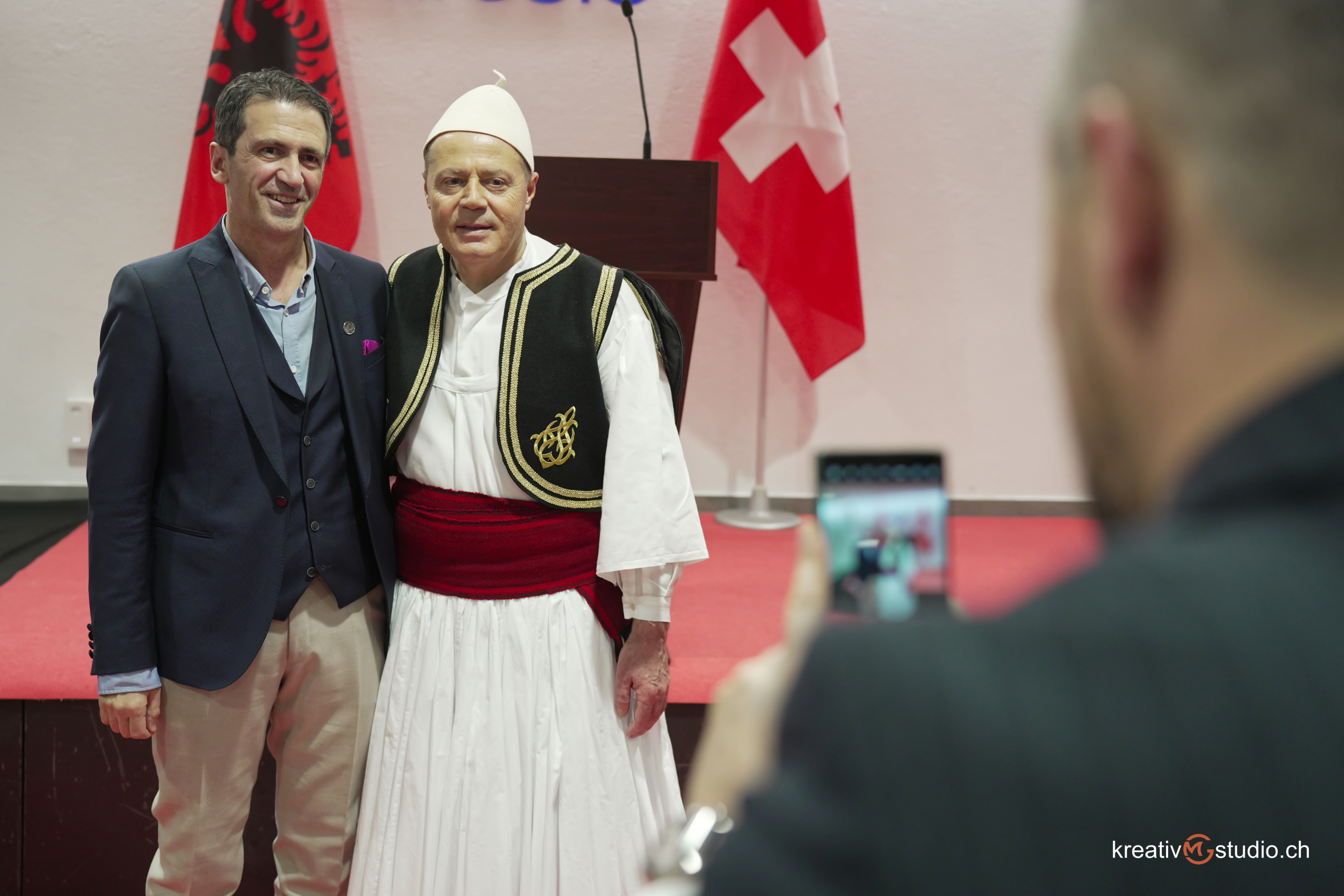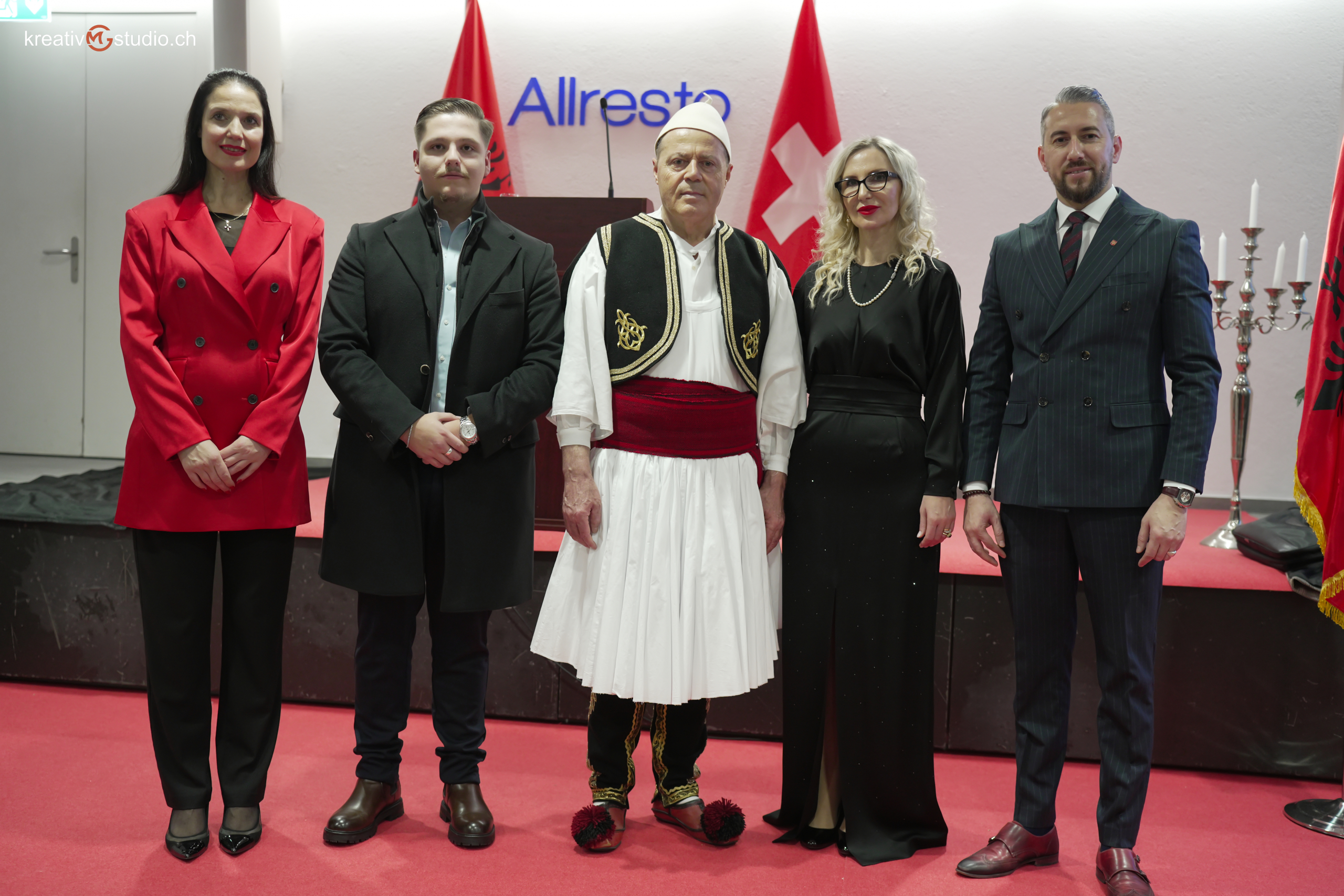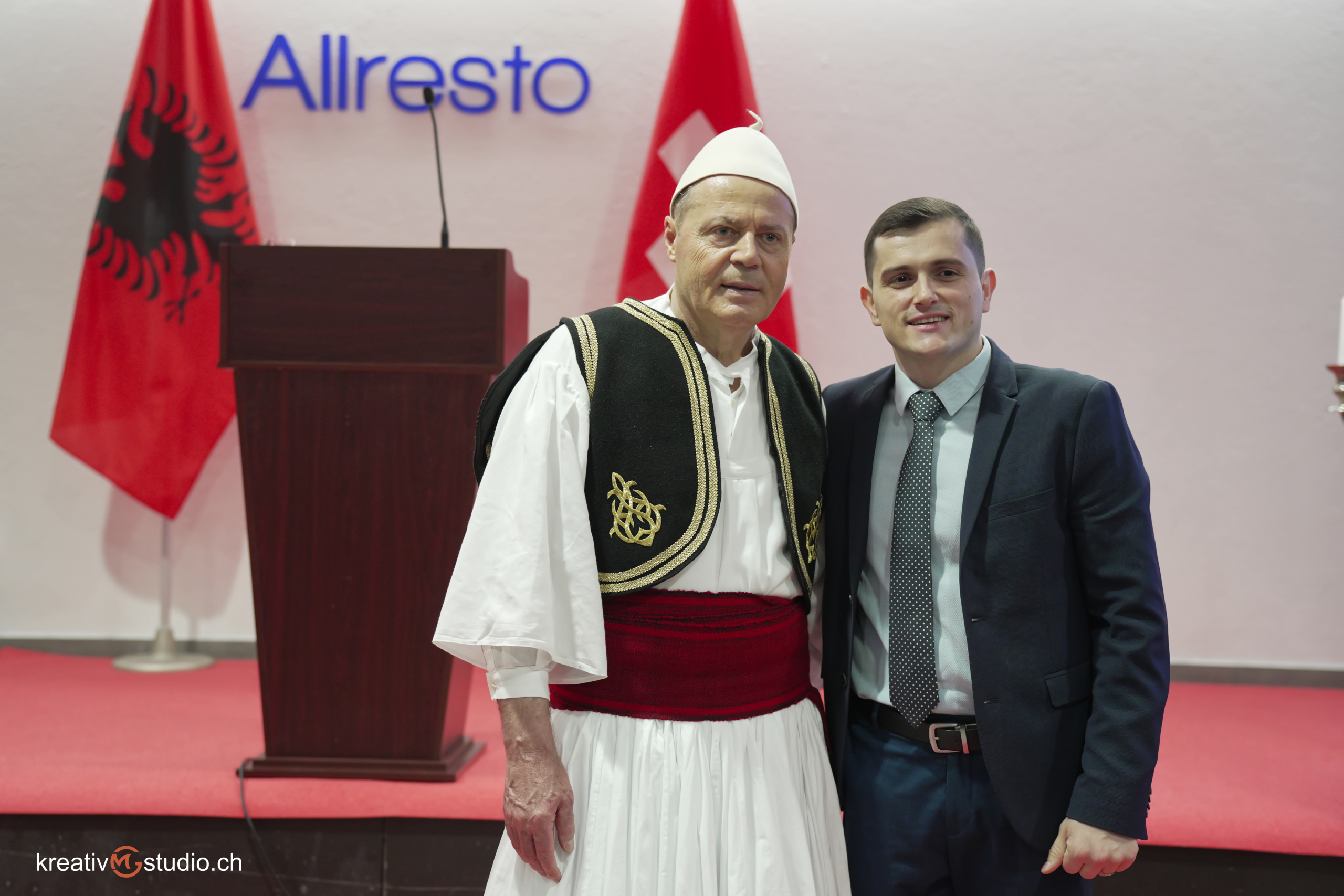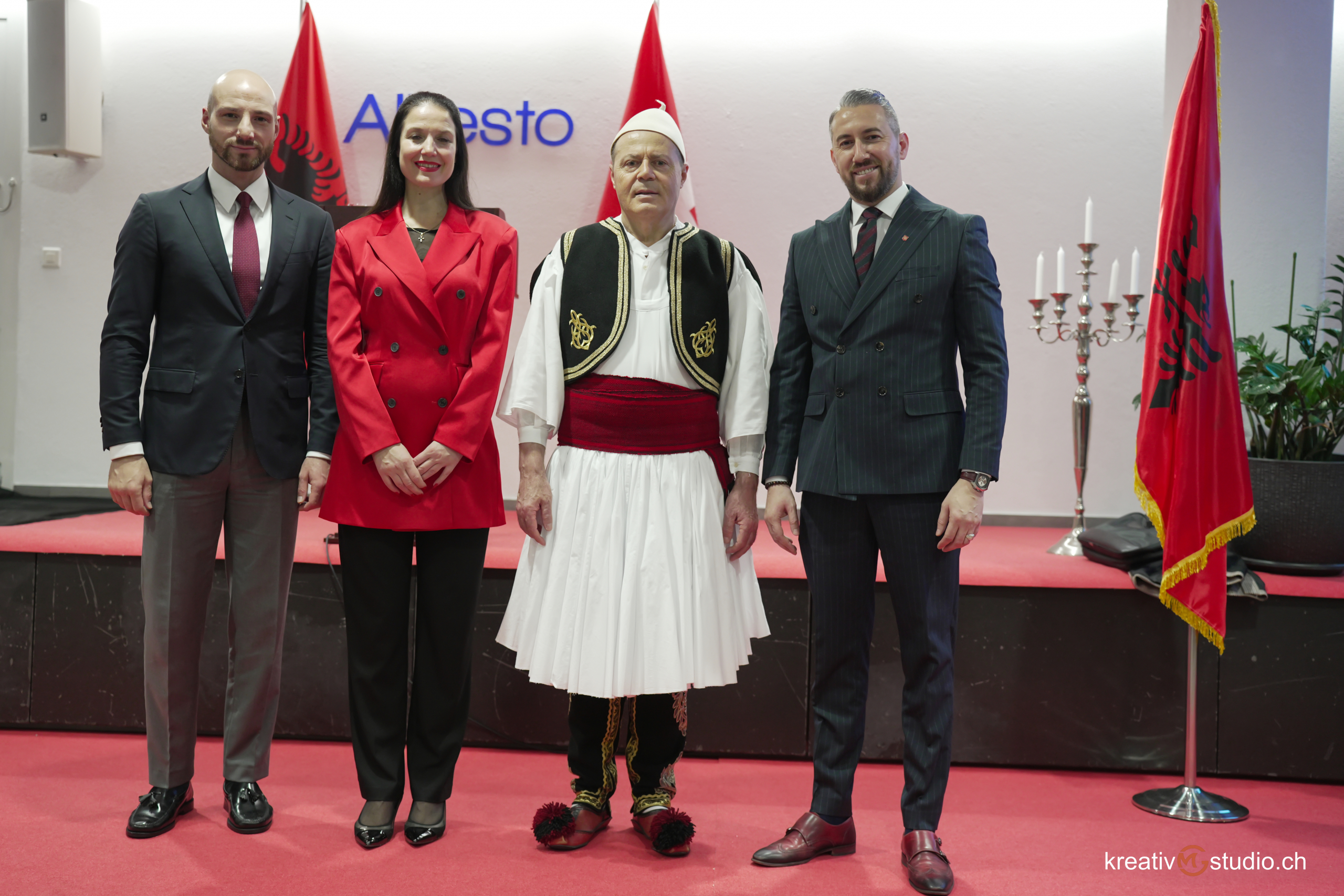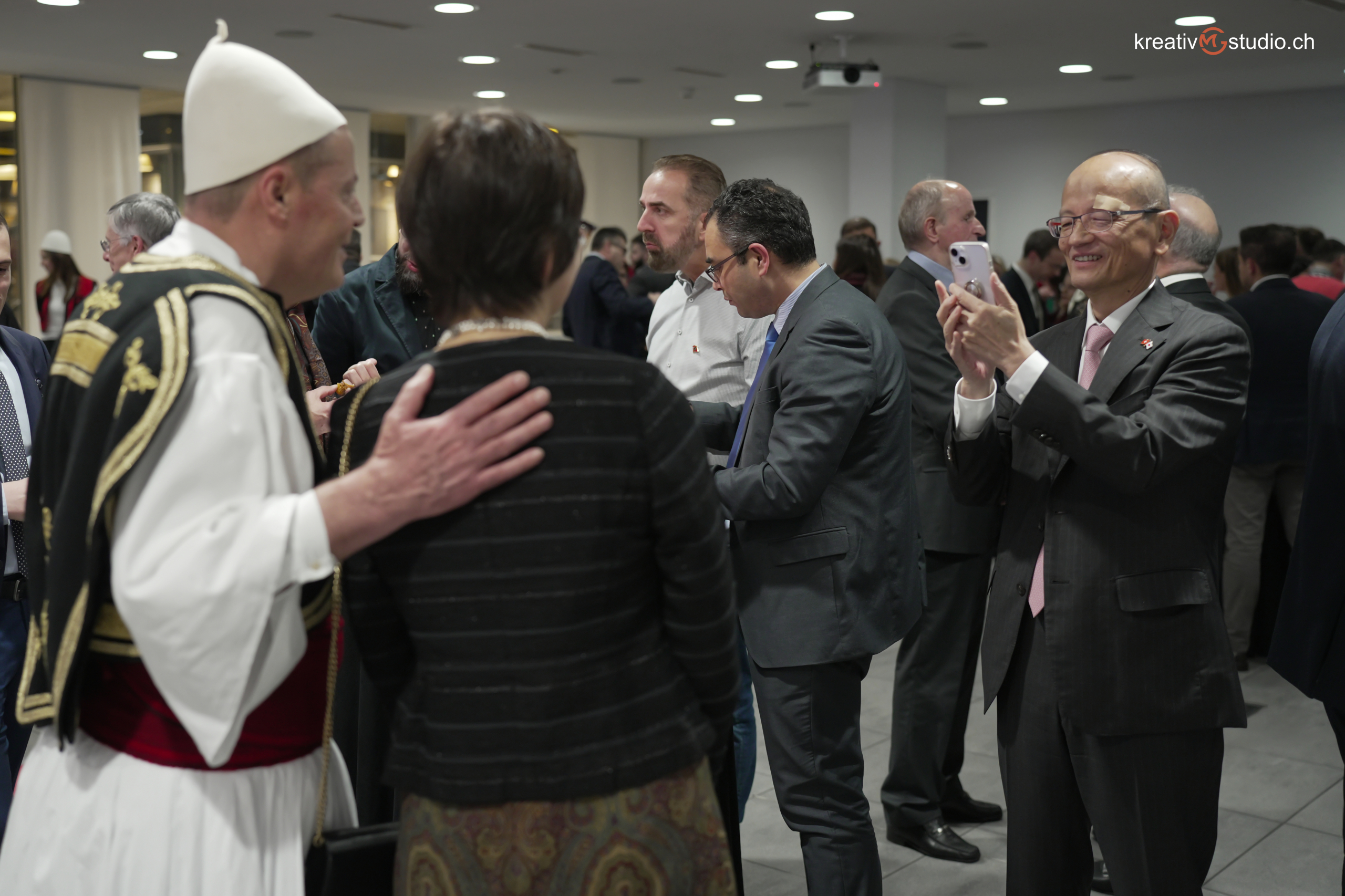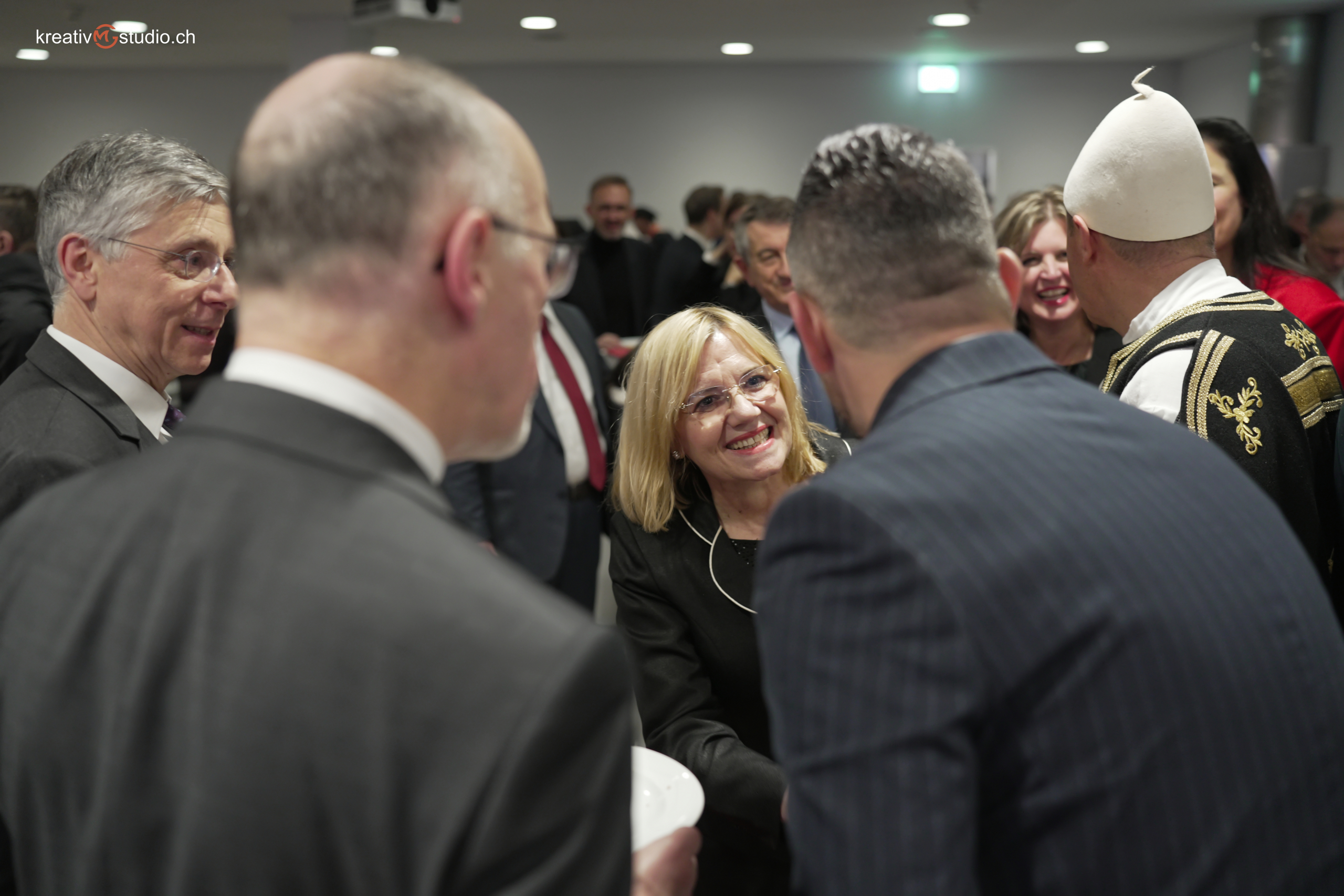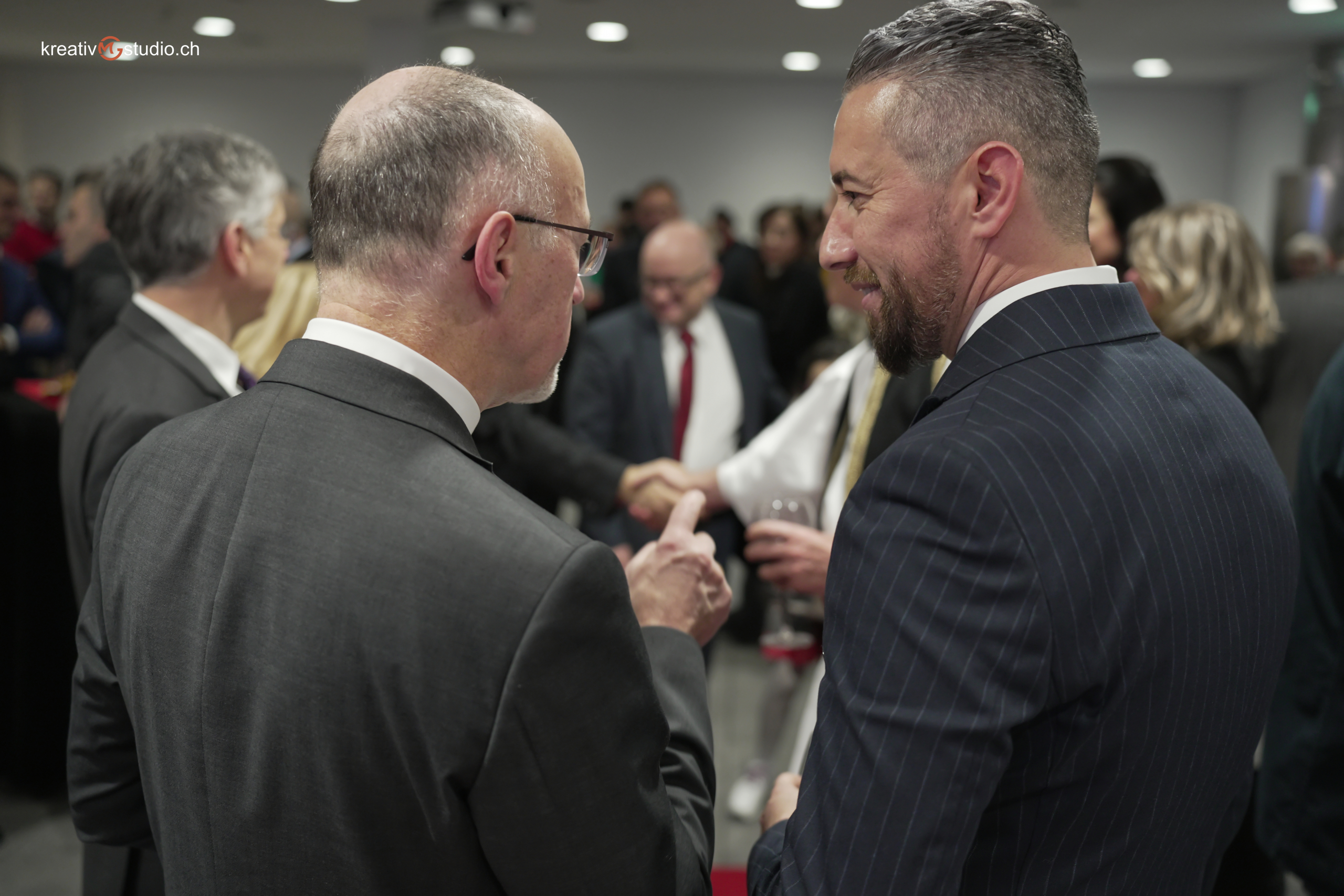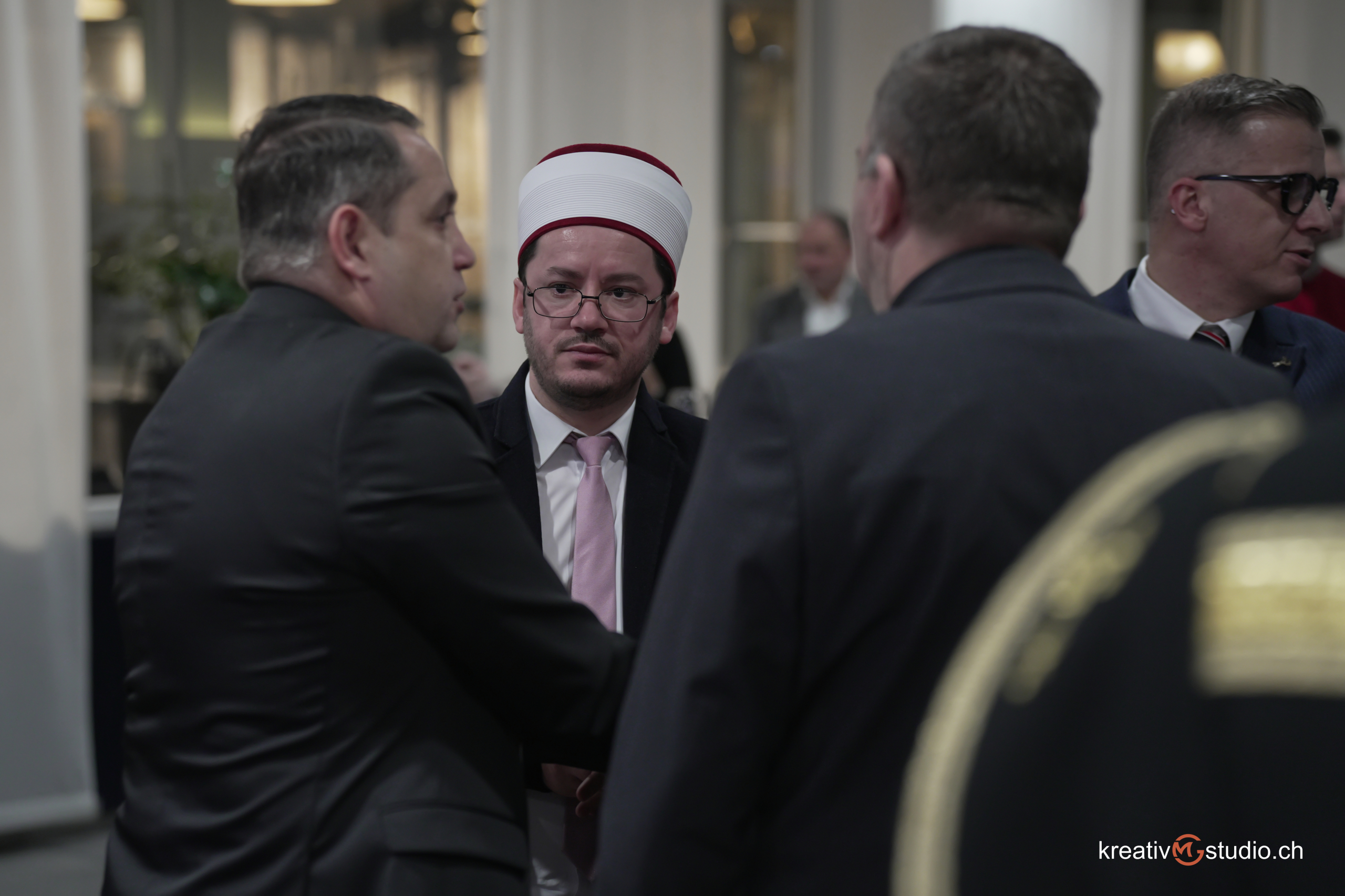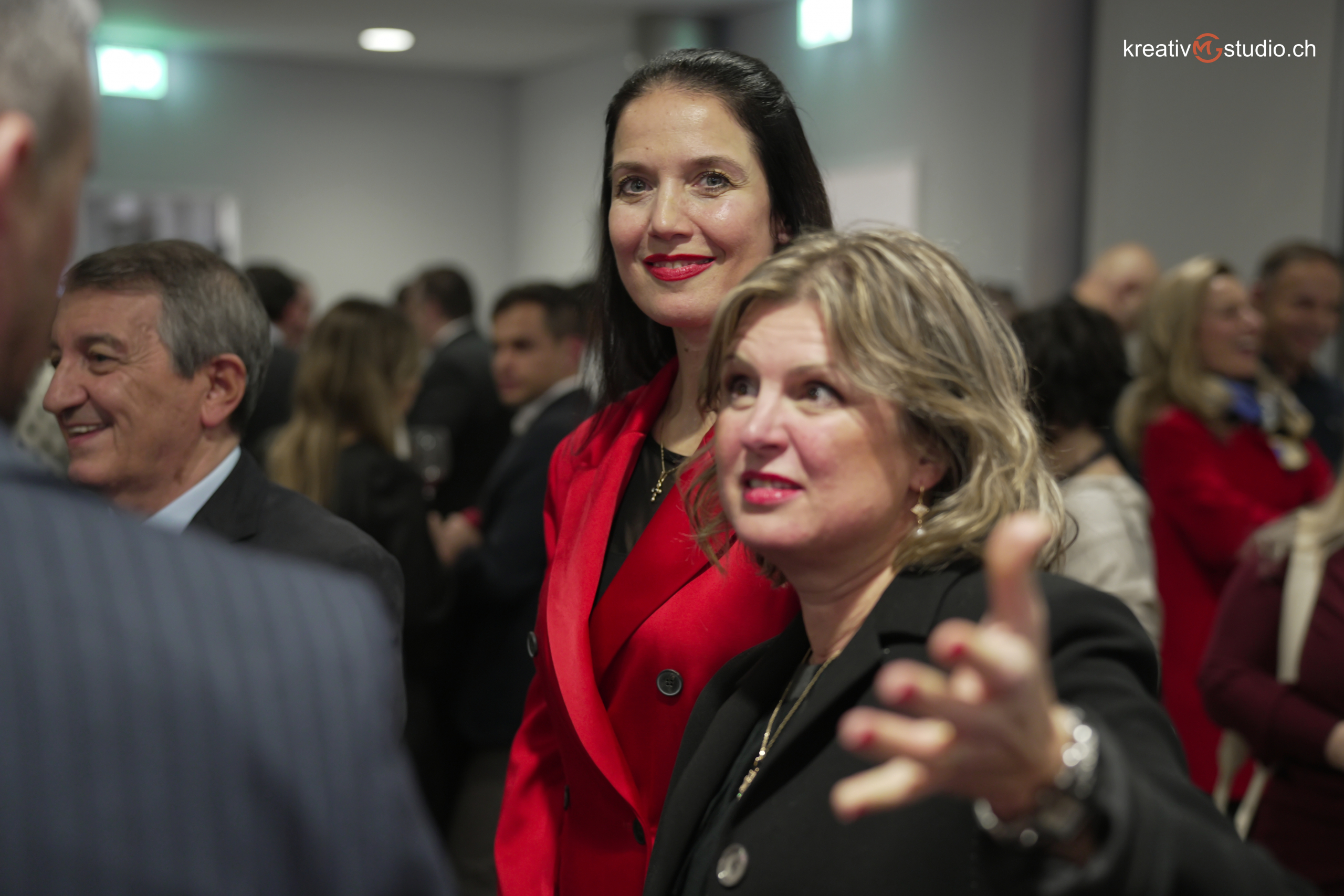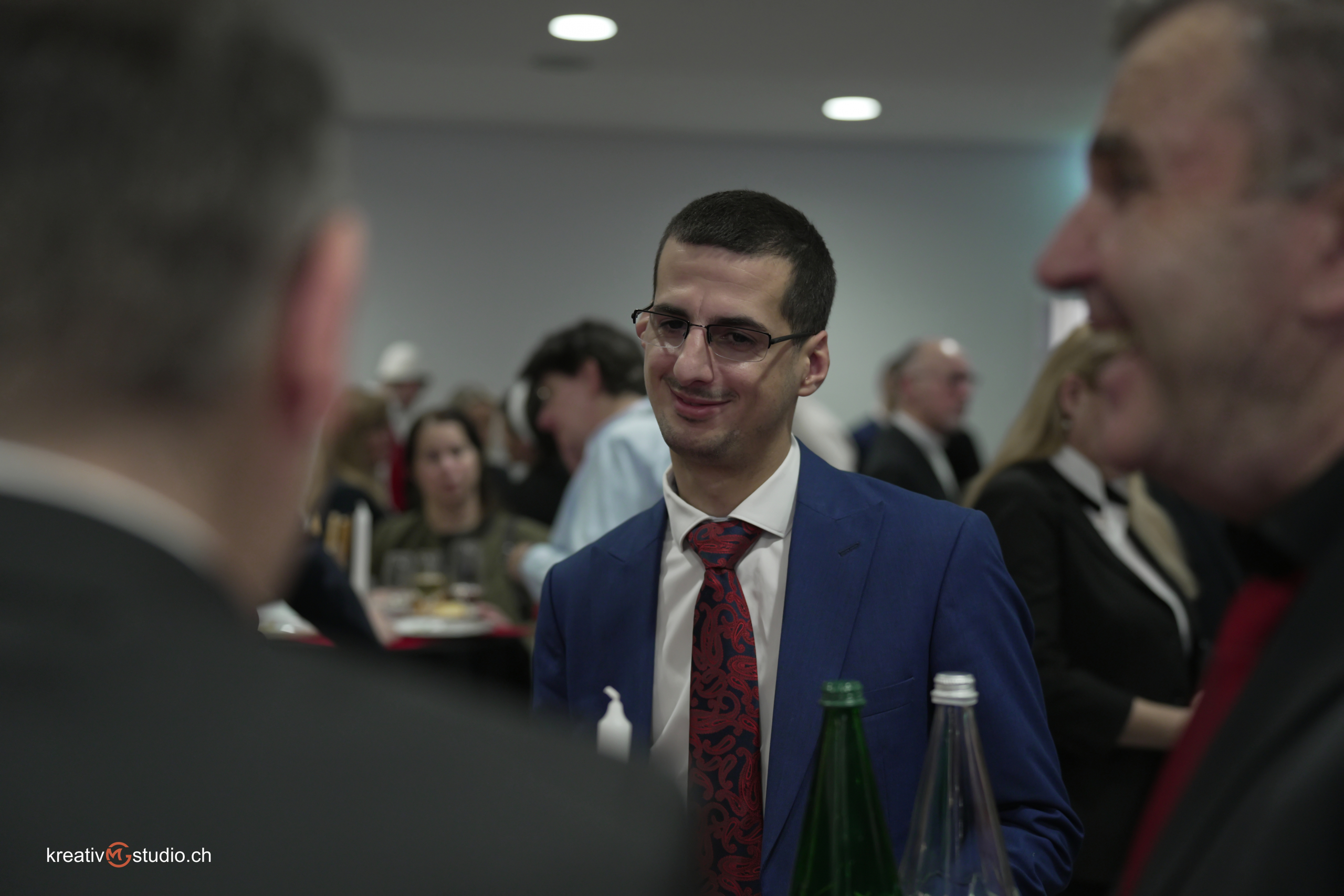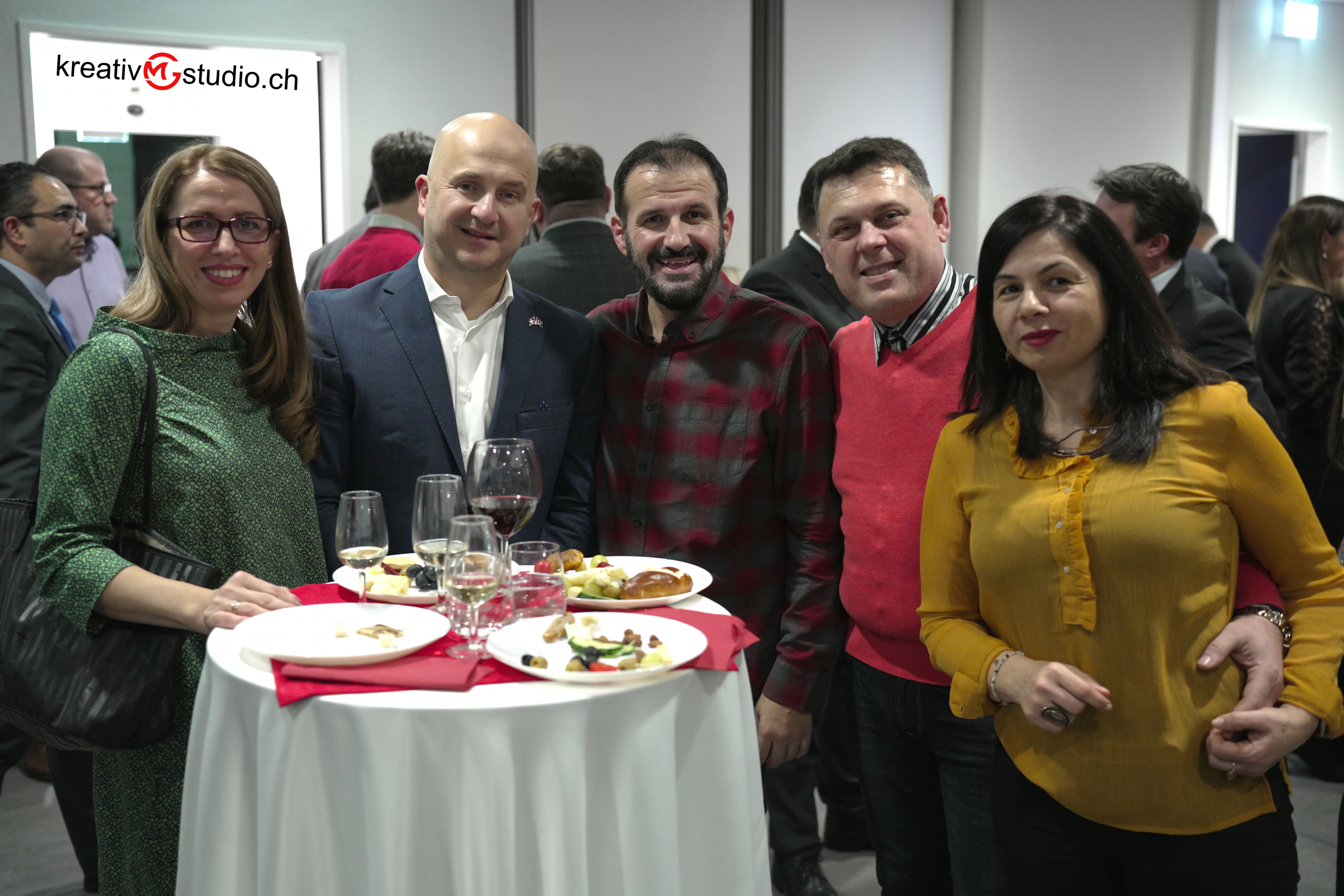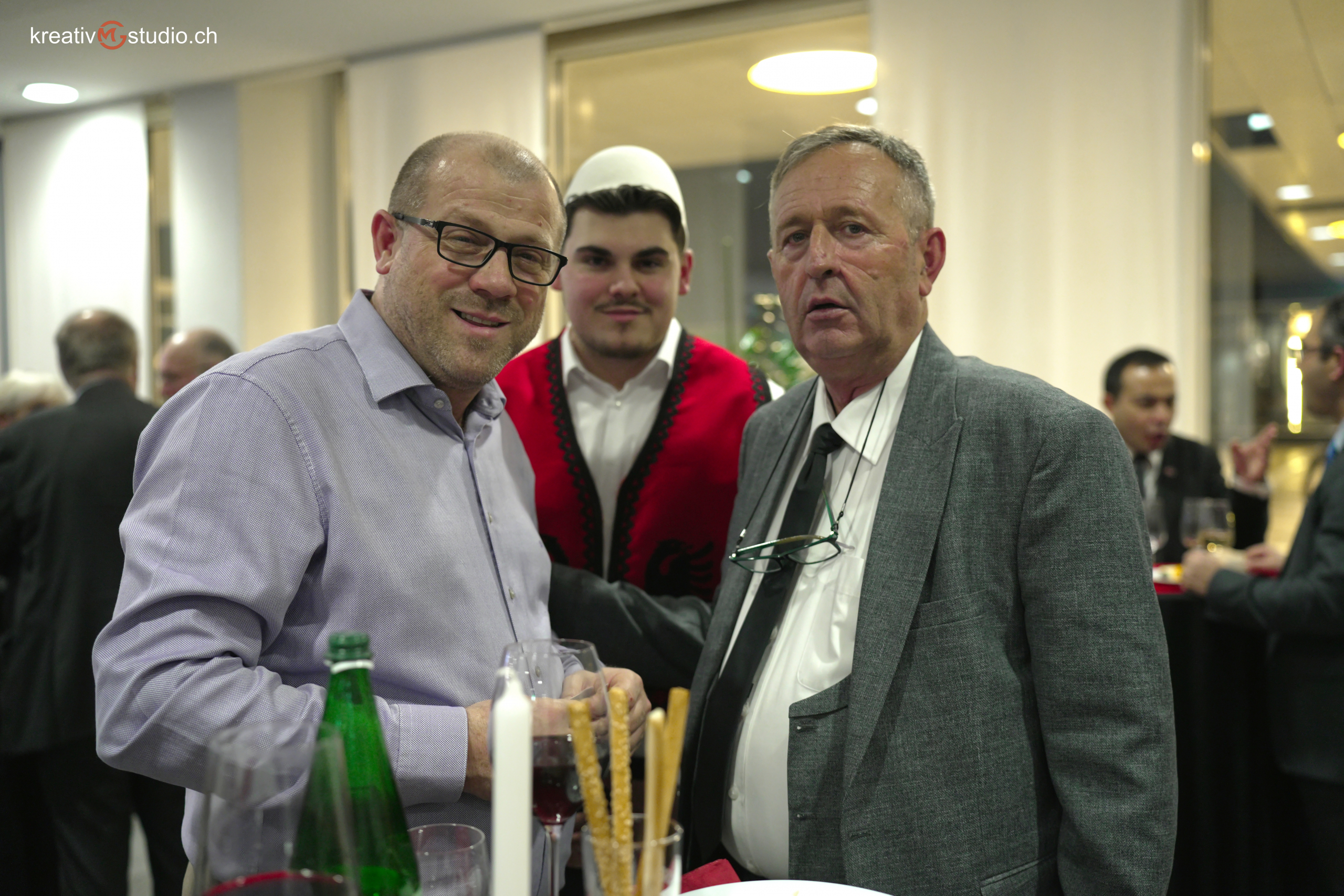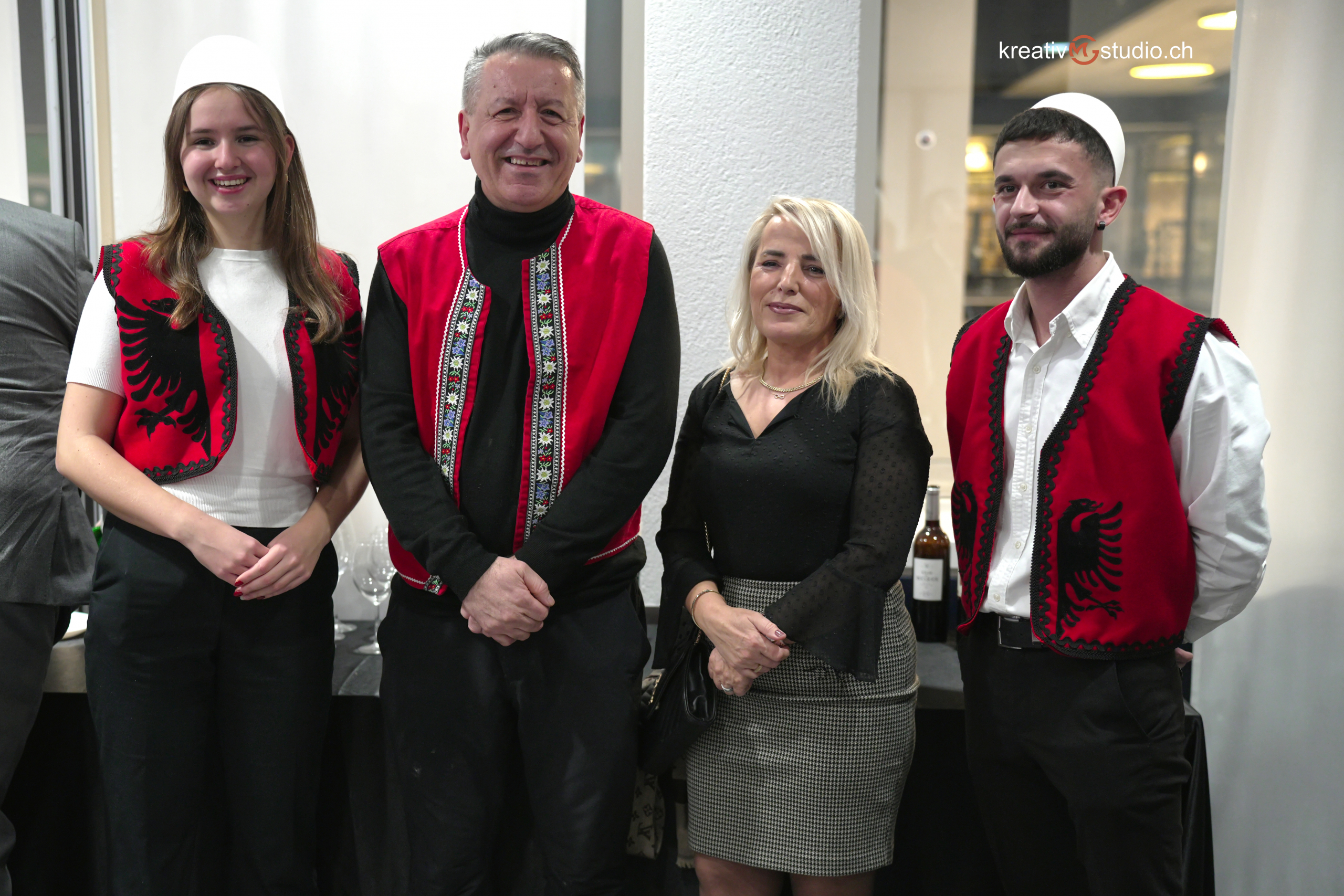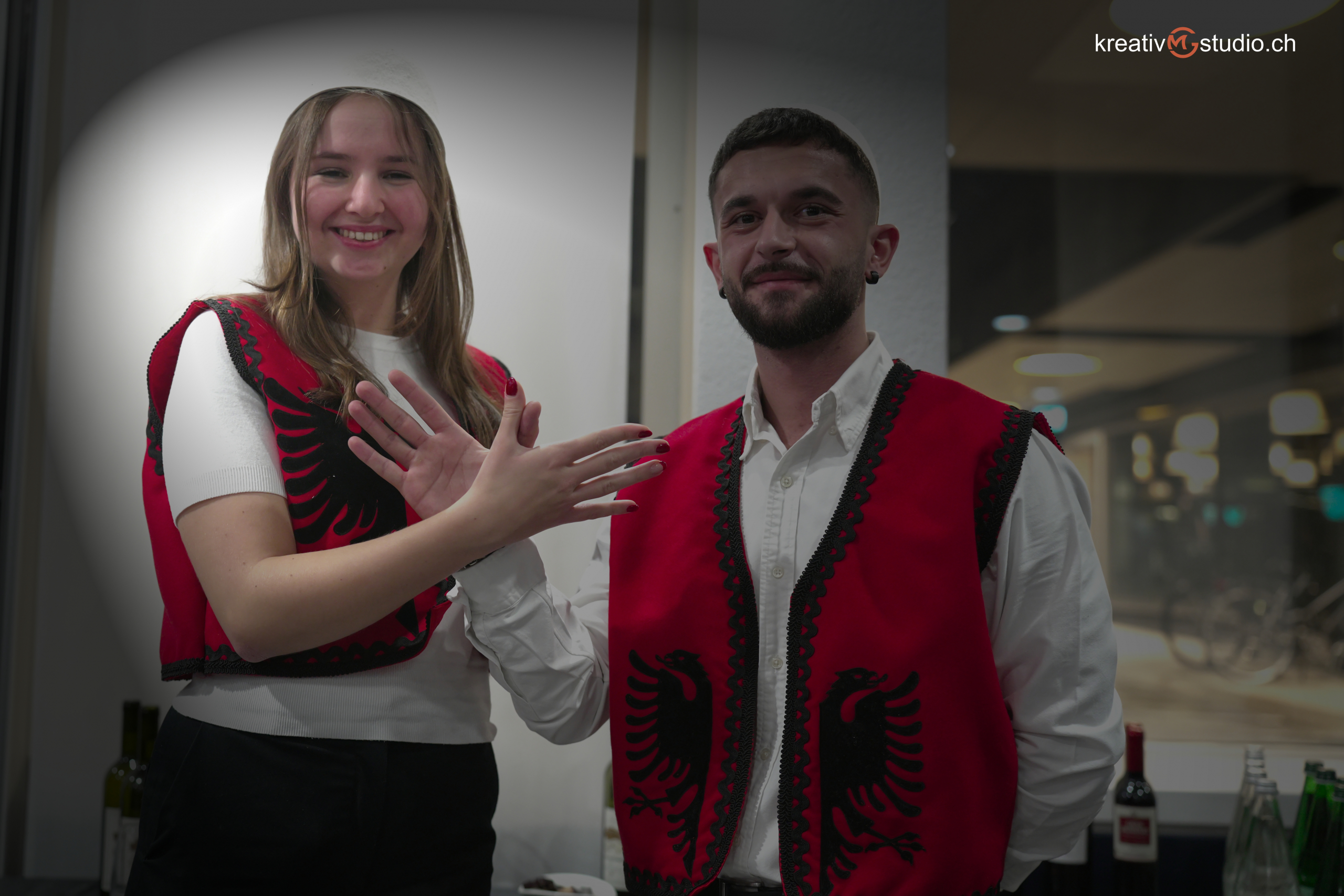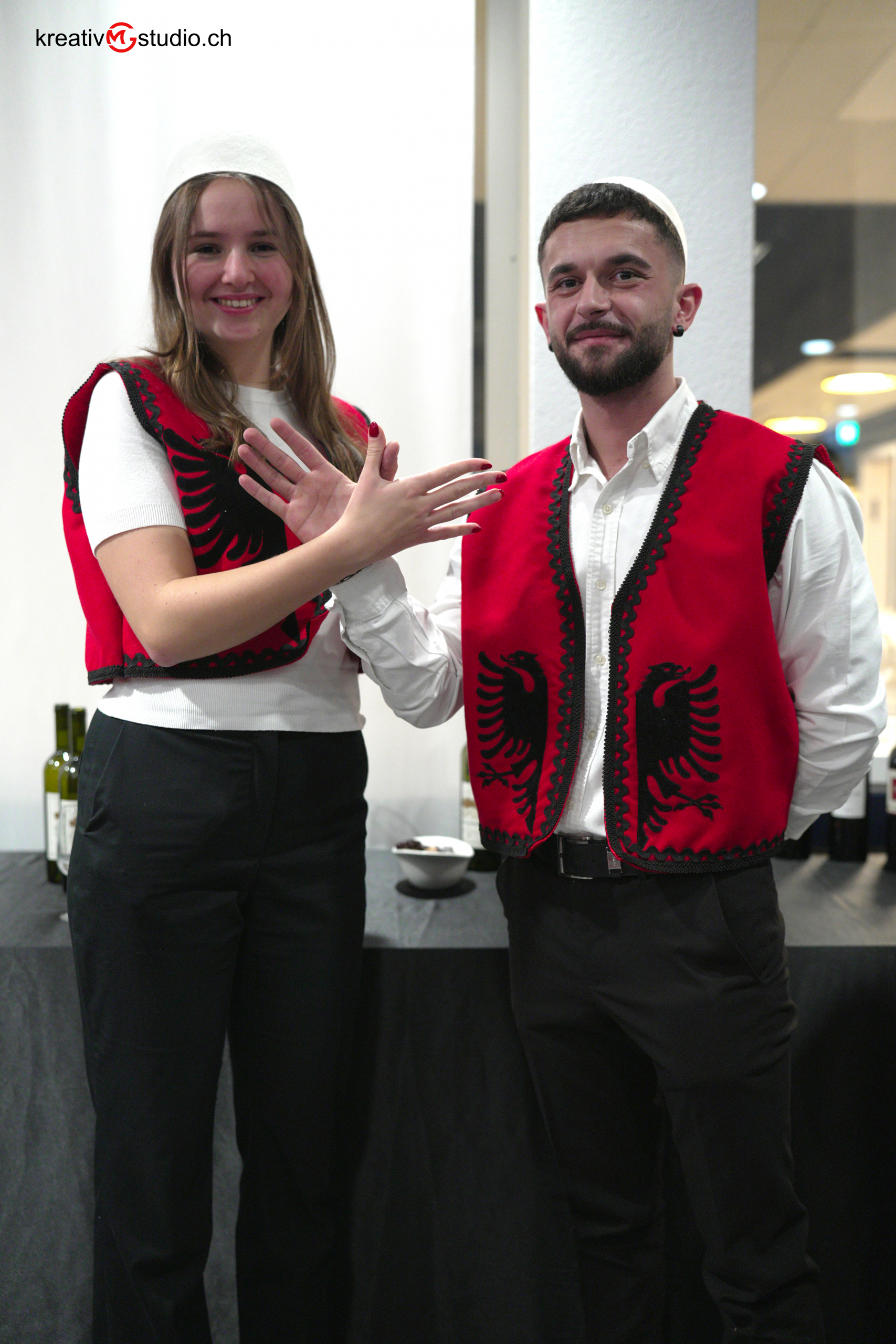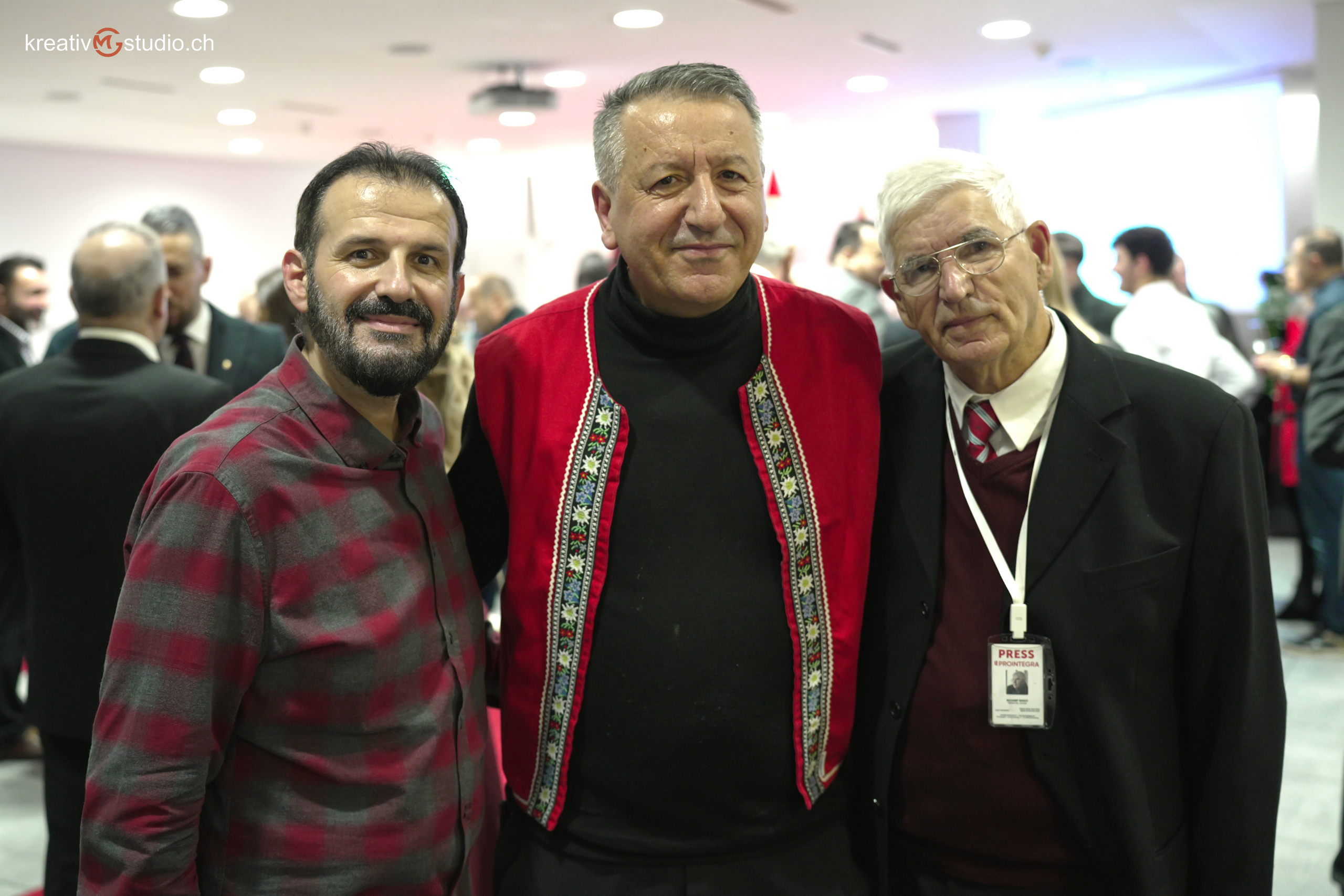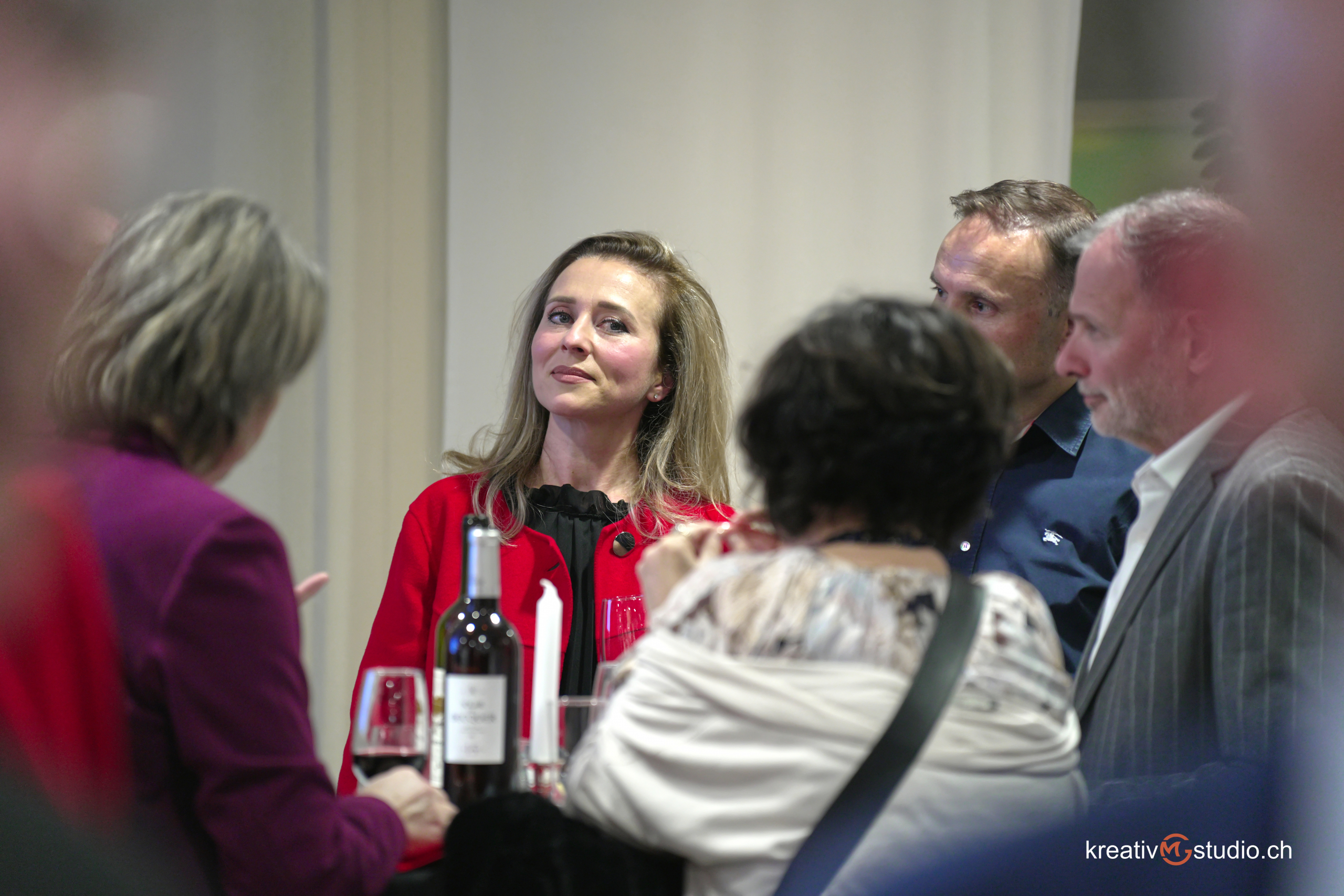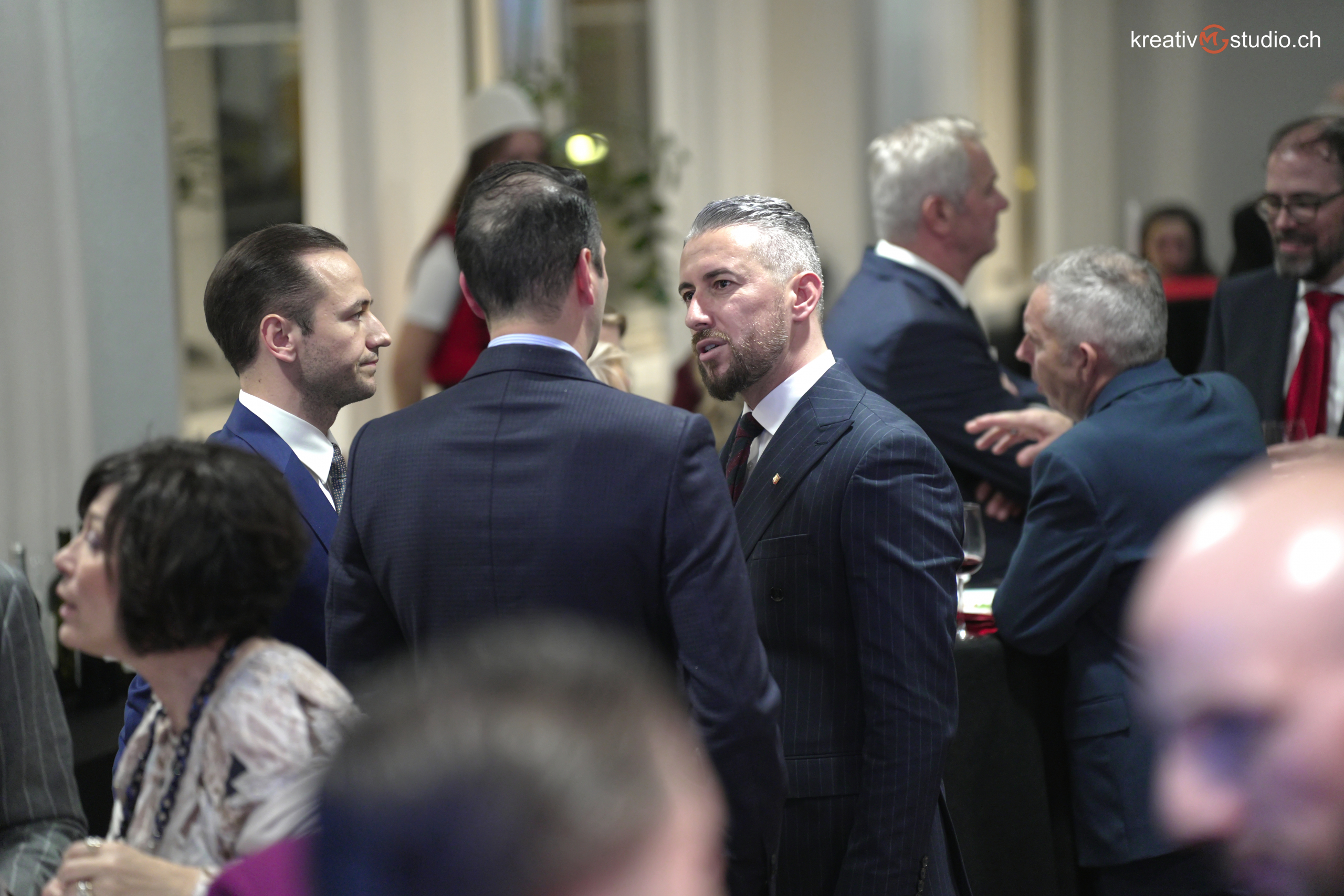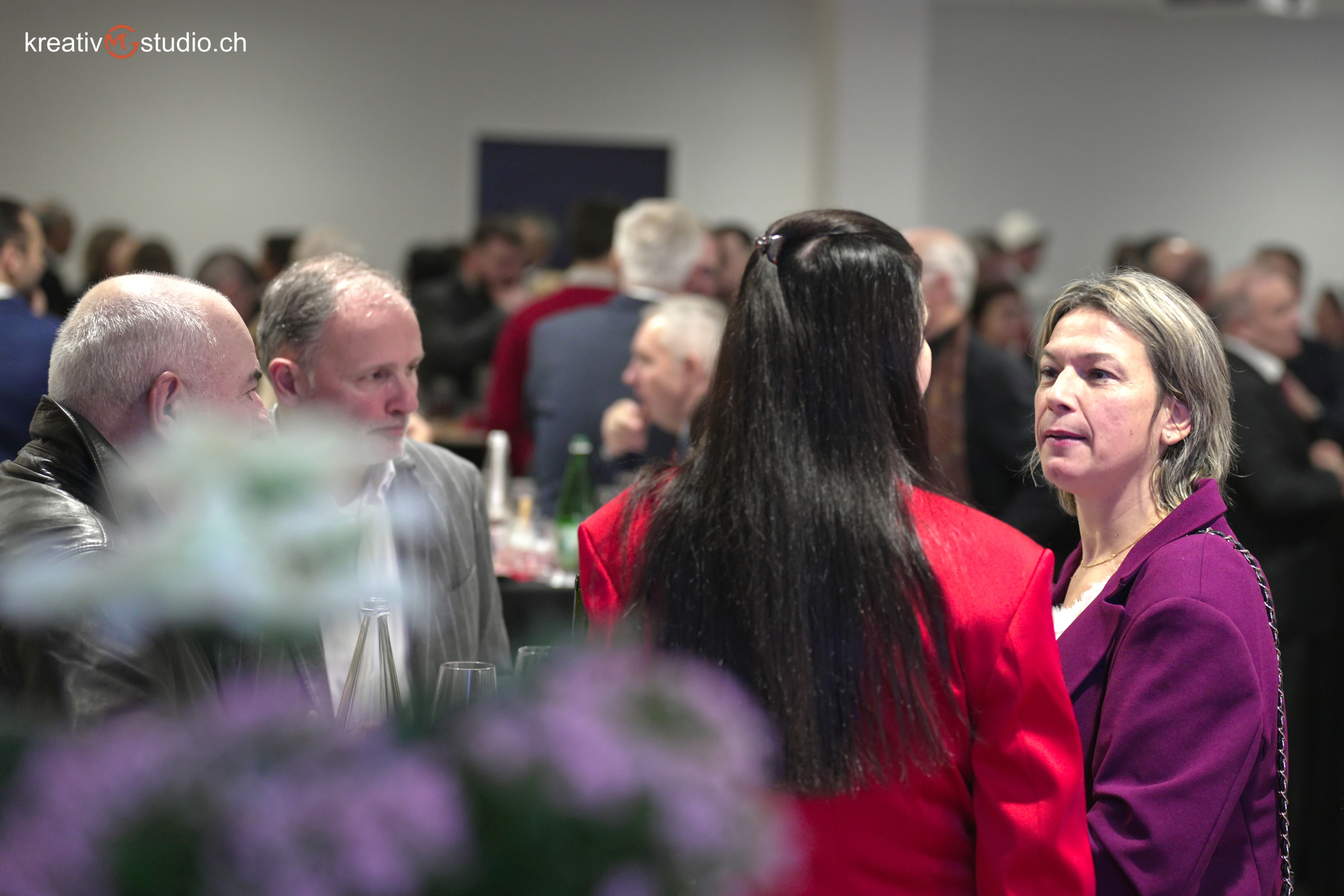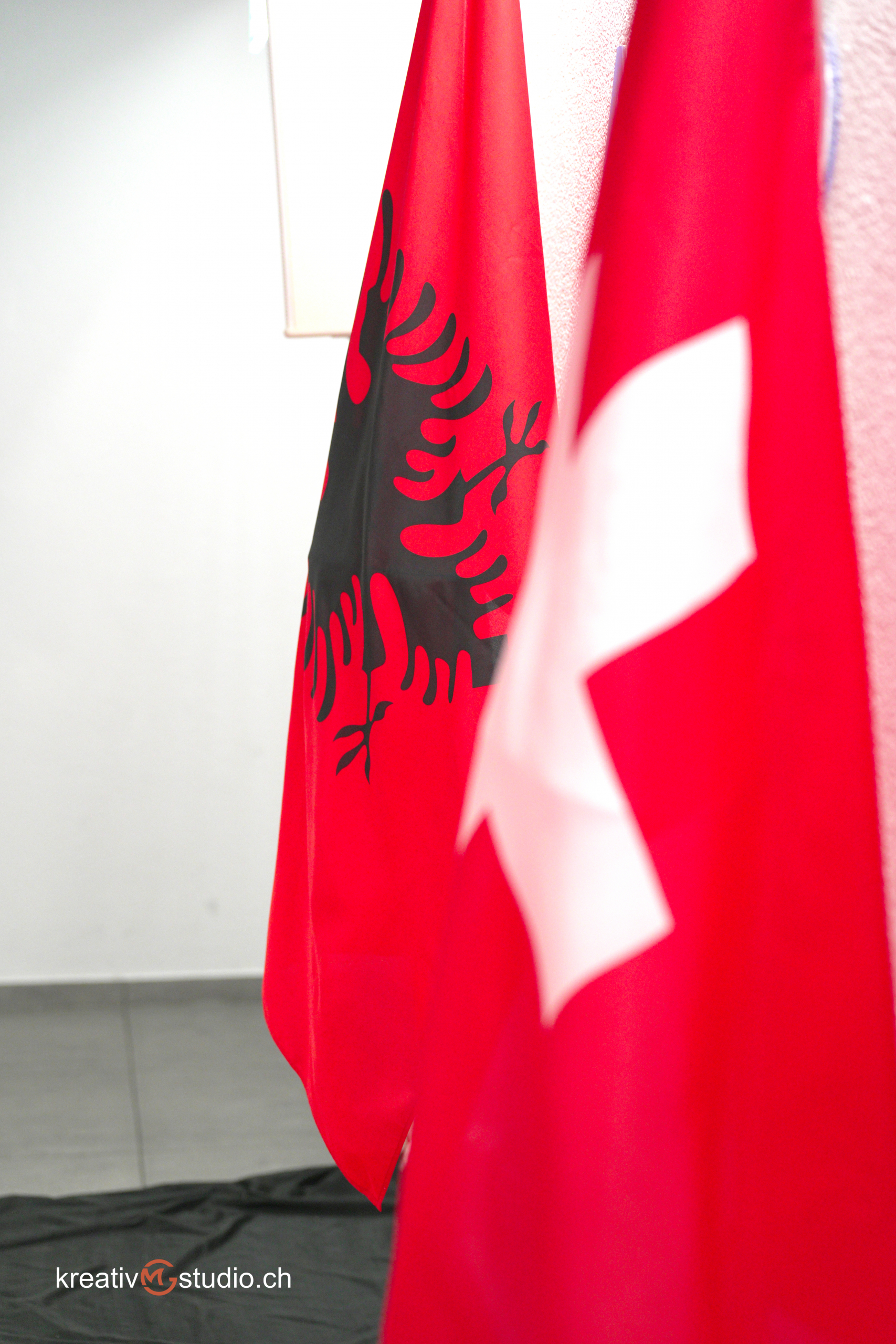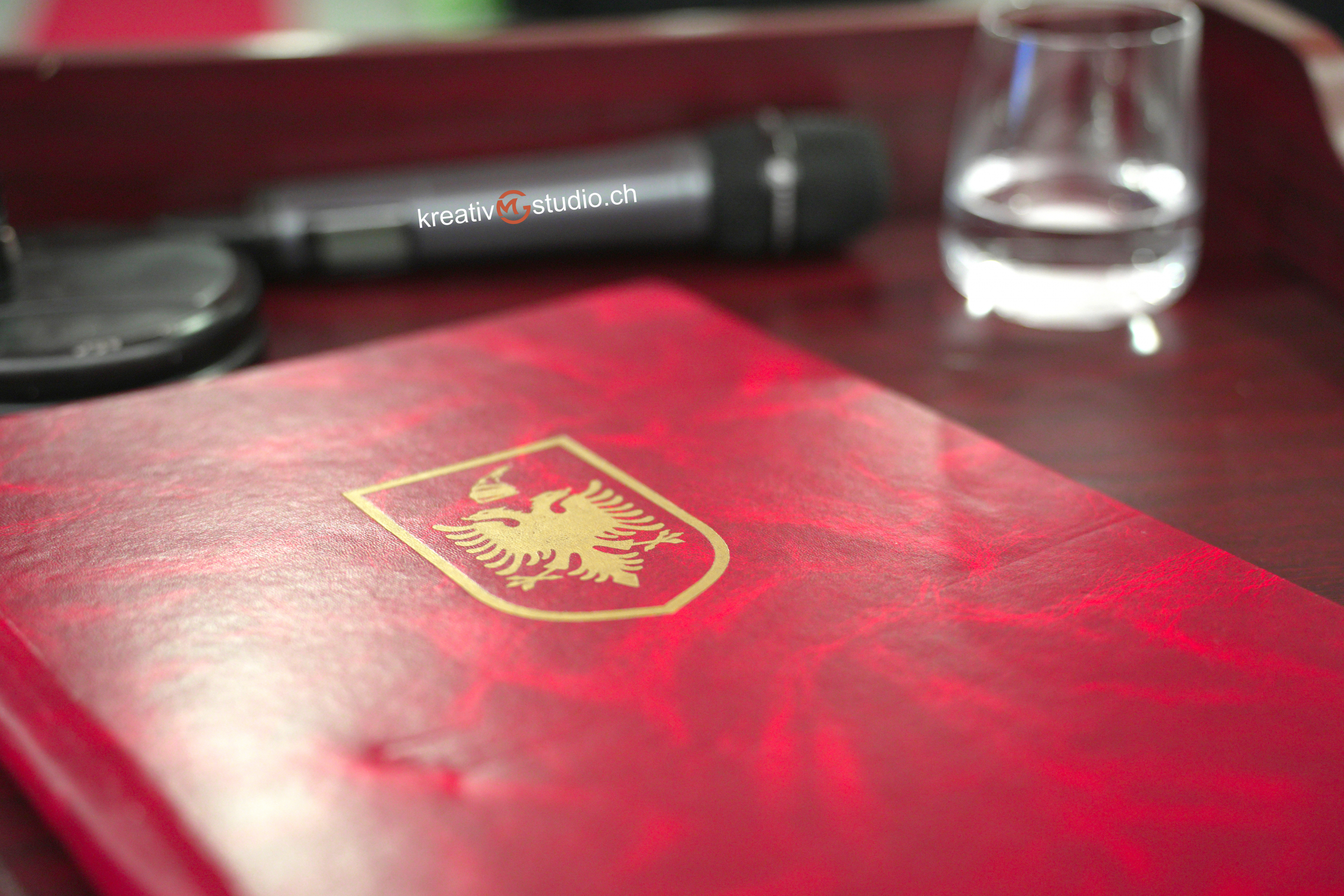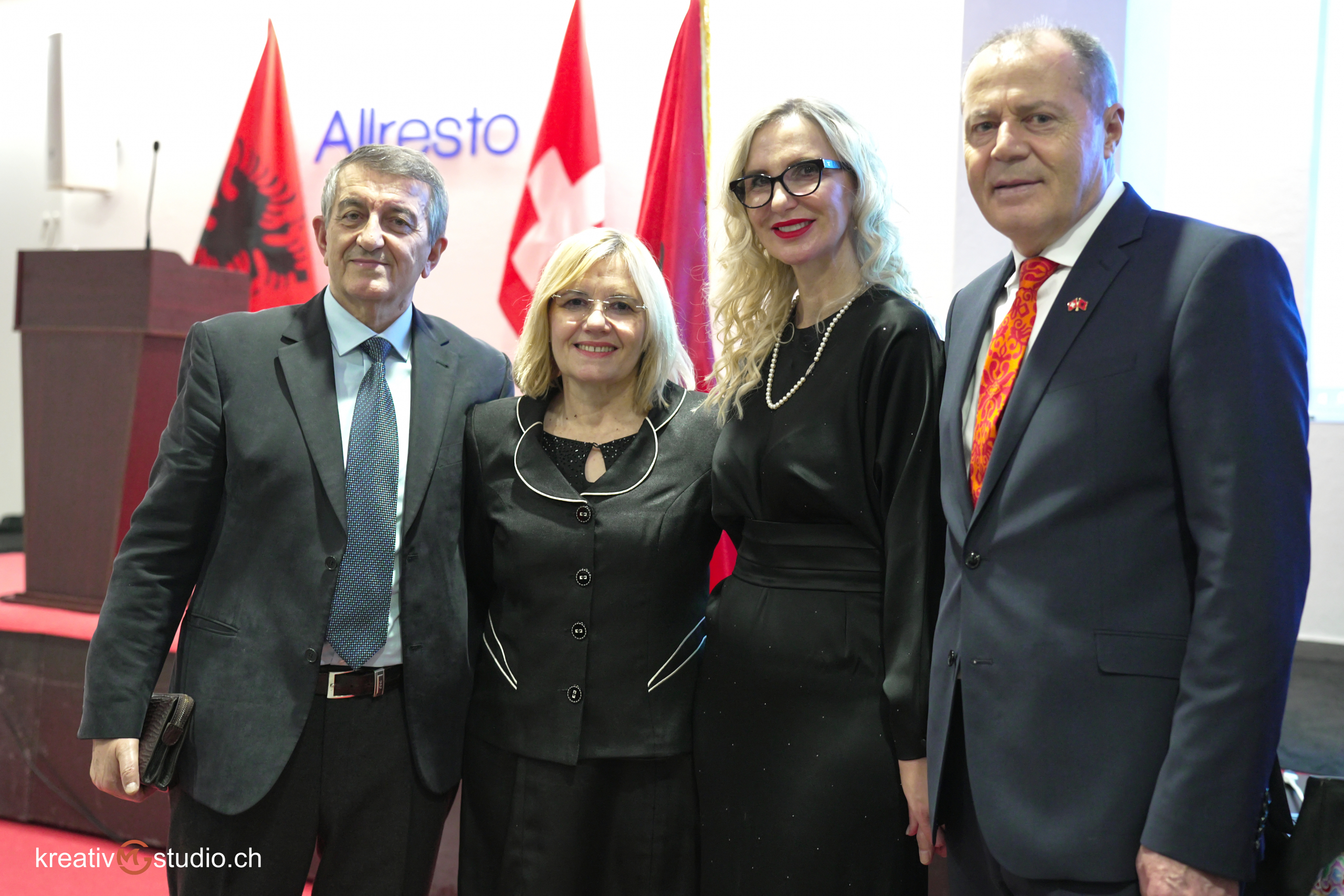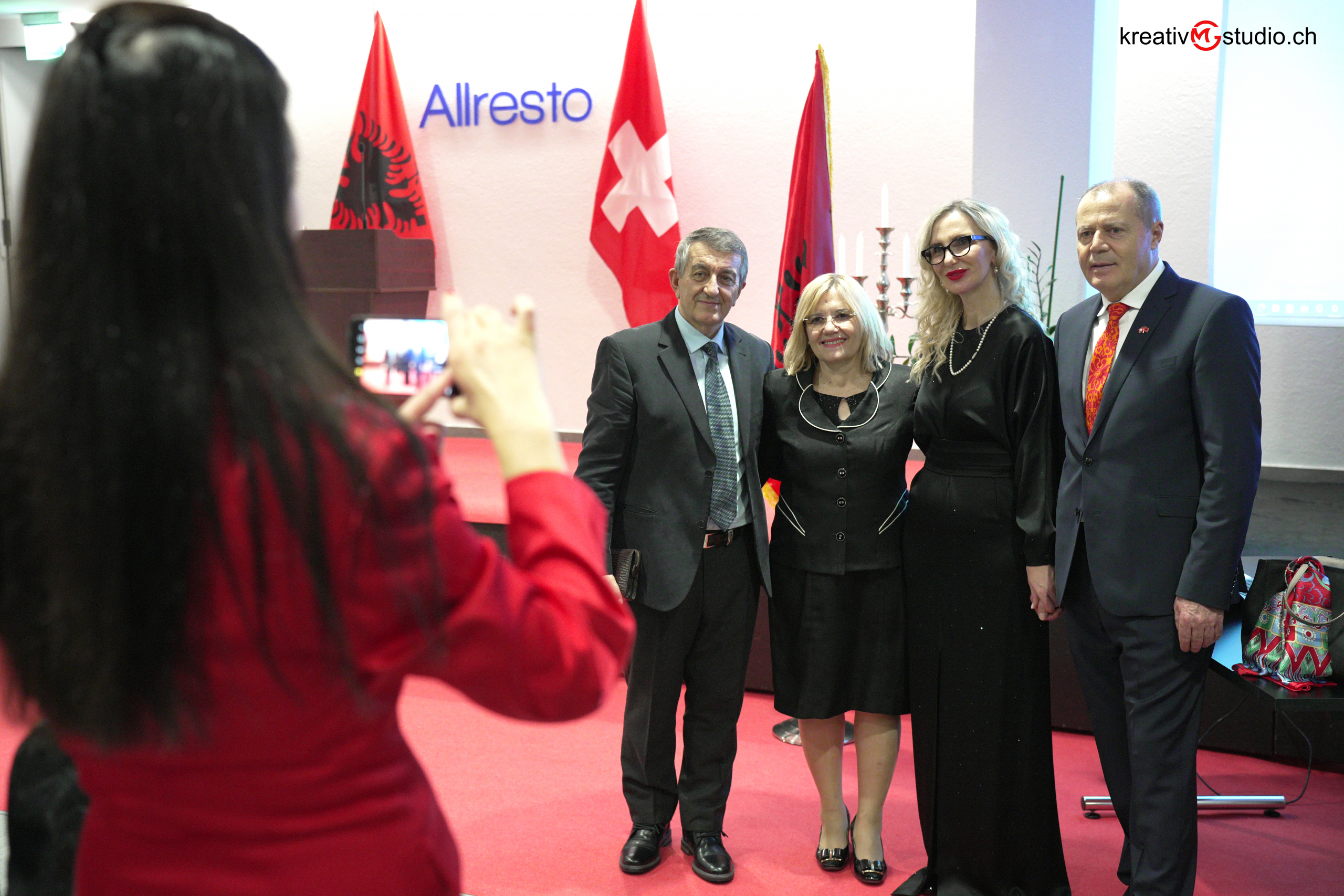The Embassy of the Republic of Slovenia in Switzerland organized on Friday (01.12.2023) a reception in Bern on the occasion of the 111th anniversary of the Declaration of Independence of Albania.
This special event brought together Ambassadors and representatives of embassies accredited in Switzerland, representatives from Swiss institutions, representatives of associations and the Albanian community in Switzerland, as well as various personalities. The ambassador of RSH in Bern, Mr. Mustafa Nano, in his welcoming speech, appeared in front of the participants wearing the national dress of the south of Albania.
Ambassador’s speech:
Dear friends,
ladies and gentlemen,
You probably expect me to say a word in the well-known diplomatic style, that is, to tell you that things in Albania are going very well, that Albania is playing a very positive and constructive role in the Balkans, that our relations with Switzerland are excellent, etc., etc. But in reality my speech will be somewhat different, and the way I am dressed is a clear signal of this. I want to tell you a few words about the Albanian national dress, convinced that this is a good way to honor the day we are celebrating, the day of independence of Albania.
What I’m wearing tonight is from the south, where I come from, but it could have been from any other Albanian tribe. Believe me, when I decided to dress up in a national costume, I didn’t know which one to choose first. Albanian costumes are of different types, and one is more beautiful than the other. Traditional Albanian costumes are so rich and prosperous that it comes naturally to think that Albanians have been competing all the time with each other to create the most beautiful costume. You also come to think that the entire Albanian world has been a gigantic atelier for centuries that preceded the ateliers of modern times, Dolce & Gabbana, Versace, Cristian Dior, etc., etc. Am I exaggerating? I don’t think I’m exaggerating. There you have it before your eyes. Then, I also have “historical evidence”, which gives me the right to my claim.
When the Europeans turned their eyes to the Balkans and began to set foot in those parts (at the beginning of the 19th century, attracted by the Greek revolution), they came into contact with the Albanians, too. And they noticed two things at most.
First – and at this point, let me make a brief parenthesis – they found Albania similar to Switzerland. Today we may be surprised by this parallel, but in that world there were many Europeans who had the drive to describe Albania as a Switzerland of the Balkans or as a Switzerland of the future. There were also Swiss who found this comparison appropriate. Eugene Pittard, the honorary consul of Albania in Geneva in the 1920s, visited Albania several times, and he reduced the similarity not only to the mountains and the highlanders, but also to the customs, mindsets and lifestyle. I know, this comparison is somewhat incomprehensible to us today. It’s hard to find someone today who makes Albania one with Switzerland. Leave the others, but the Albanians themselves have done little, or nothing at all, to justify and make sense of the pairing of Switzerland and Albania two centuries earlier. And with that, I’m closing the bracket.
Secondly – and with this I am returning to the discussion that is close to my heart – the travelers, writers, anthropologists and diplomats of Western Europe were amazed and open-mouthed, literally open-mouthed, in front of the beauty and variety of traditional Albanian costumes. Lord Byron, the great English romantic poet, considered the costume of the southern Albanians, exactly what I am wearing tonight, with the dress that reminded him of the Scottish kilt, as “the most magnificent costume in the world” (“the most magnificent costume in the world”).
Alexandre Dumas, the French author of the novel The Count of Monte Cristo, but also a famous dandy of his time, had the same opinion on Albanian costumes. In one of the many Parisian balls, in which he was almost never absent, he went dressed as an Albanian. He was a Don Juan, and all he wanted to achieve at such balls was to catch the eye of the beautiful women who were attending the same ball organized in the famous salon of Madame Lafond. He didn’t forgive himself for going out with a woman he cared about. And for this he invented all kinds of tricks. Because he was not a handsome man. Physical appearance was not his strong weapon. And he knew, he was aware of it. And so, at this ball he pretended to work one of his tricks: he decided to go dressed in Albanian clothes. And everything went according to plan. The dress did its job like no other. One of the girls at the ball, a very beautiful actress, did not leave him the whole evening.
A great Albanian named Faik Konica must have remembered the action of Alexandre Dumas. In 1913, in the USA, he went to a ball organized by the Austro-Hungarian embassy dressed in the ethnic costume of southern Albania. But for Konica, things did not go the way they did for Dumas. No woman was attracted to him that evening (Please, I don’t want any misunderstanding to arise; I myself am not dressed in Albanian to win over any woman; my plan is different; I am constantly trying to win their hearts compatriots, who recognize all kinds of credentials, but not patriotic ones; with this show, I might make them change their minds about me). So no woman visited Konica that evening. It “was” a man, however. A scruffy looking man. It was the Greek ambassador, who stood out in the Konica show as a cultural appropriation. “The clothes you are wearing, sir, are not Albanian; they are Greek”, he said. But Konica returned to him, as he knew. And they were consumed with words. They sharpened the axes well. As the Balkans have done and as they do today all day. You know, we fight for no reason at all, not over the authorship of a costume like the one you’re seeing. And at this point is the place for another parenthesis, with which I want to close my speech. In the Balkans, we have made a habit of fighting over nothing. We do this with great zeal. Even in the XXI century. The word comes, we Albanians quarrel with the Macedonians over Mother Teresa’s nationality. We think she is Albanian, because she has declared herself Albanian, while our neighbors think she is Macedonian, because she was born in Skopje. We are also concerned about the ethnic passport of Alexander the Great. It may seem unbelievable to you, but that’s how it is. We Albanians think that Alexander the Great is ours, and as proof we have the fact that his mother was Epirote. While the North Macedonians hold the opinion that the legendary hero is theirs. Why? Because this is what the name itself says: Alexander the Great of… Macedonia. The North Macedonians, on the other hand, have problems with the Bulgarians, who claim the copyright on the Slavic language spoken in North Macedonia. While we Albanians are still following the big fight, in which academic circles are also involved, over the paternity of the Balkan oral tradition. Etc, etc.
And here I am closing this second parenthesis. Here I am ending my speech. Adding a toast to you for honoring us with your presence at our party, a toast to Switzerland, this wonderful country, the most beautiful country in the world (after Albania, of course), and a toast to the independence day of my country
Cheers!





